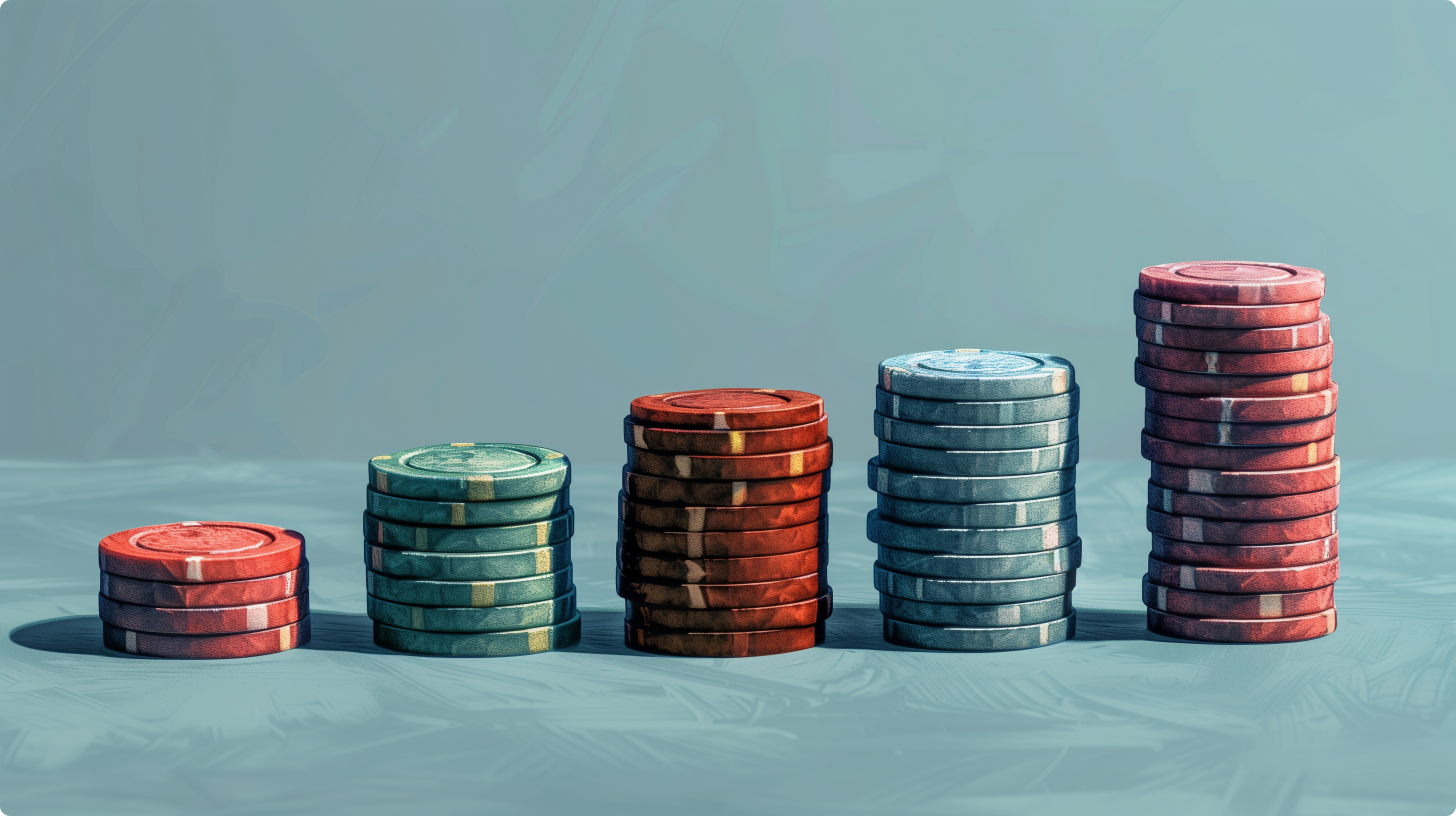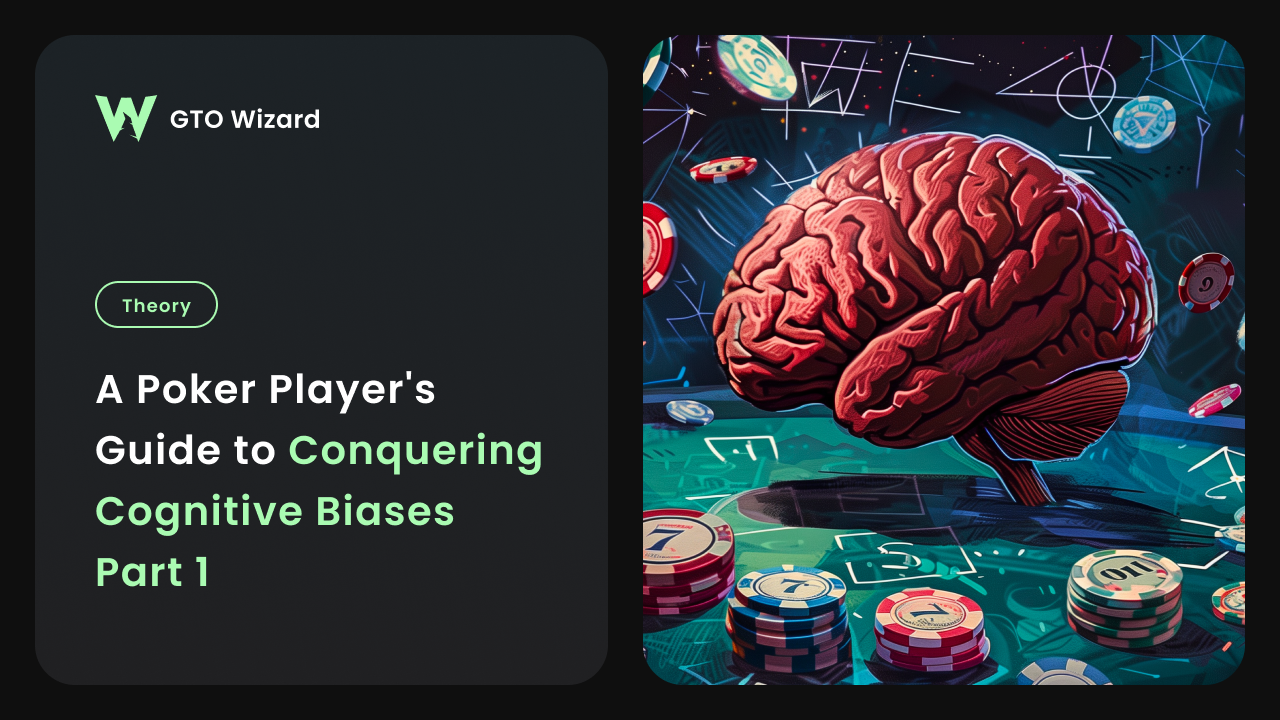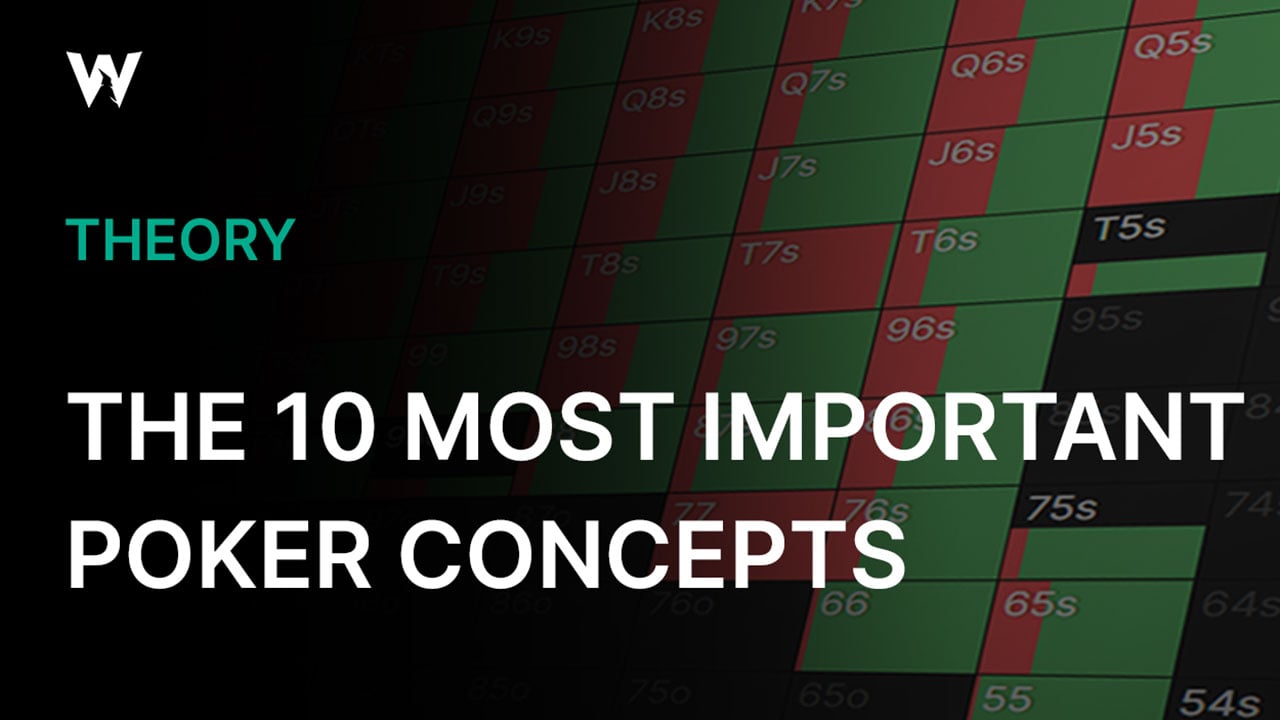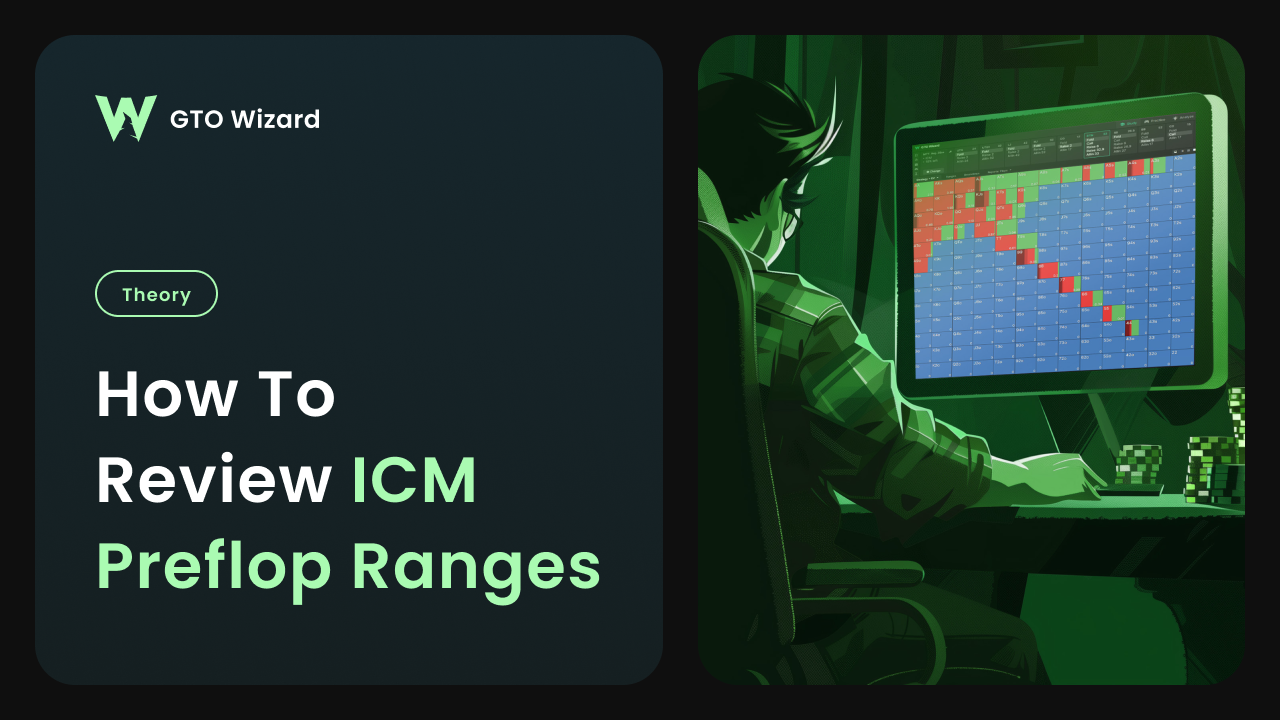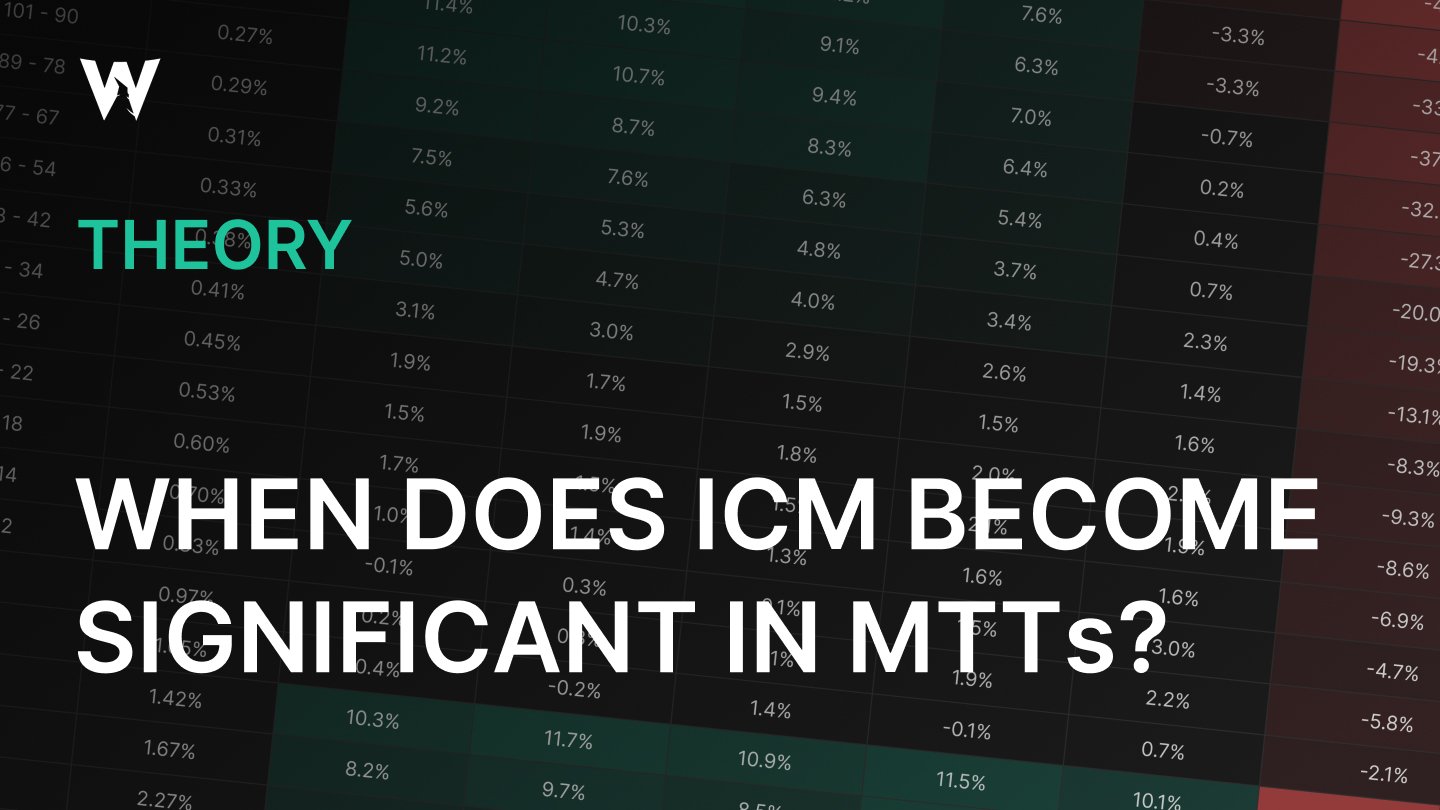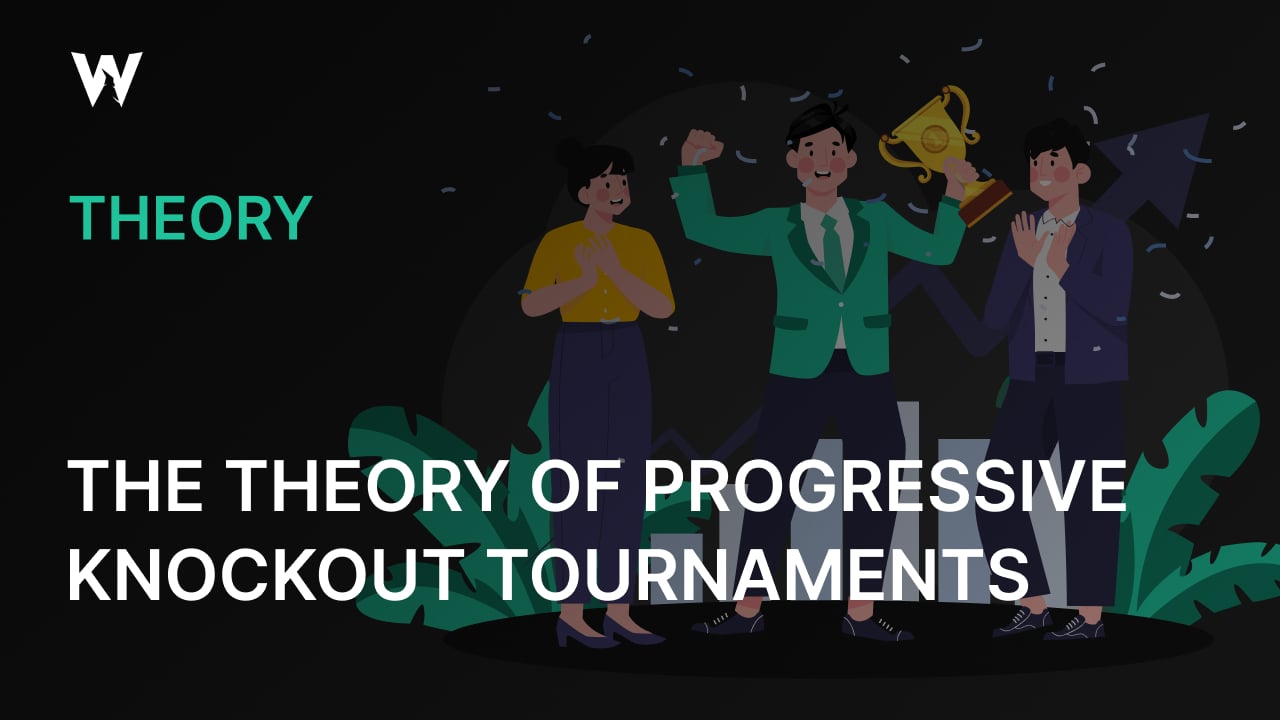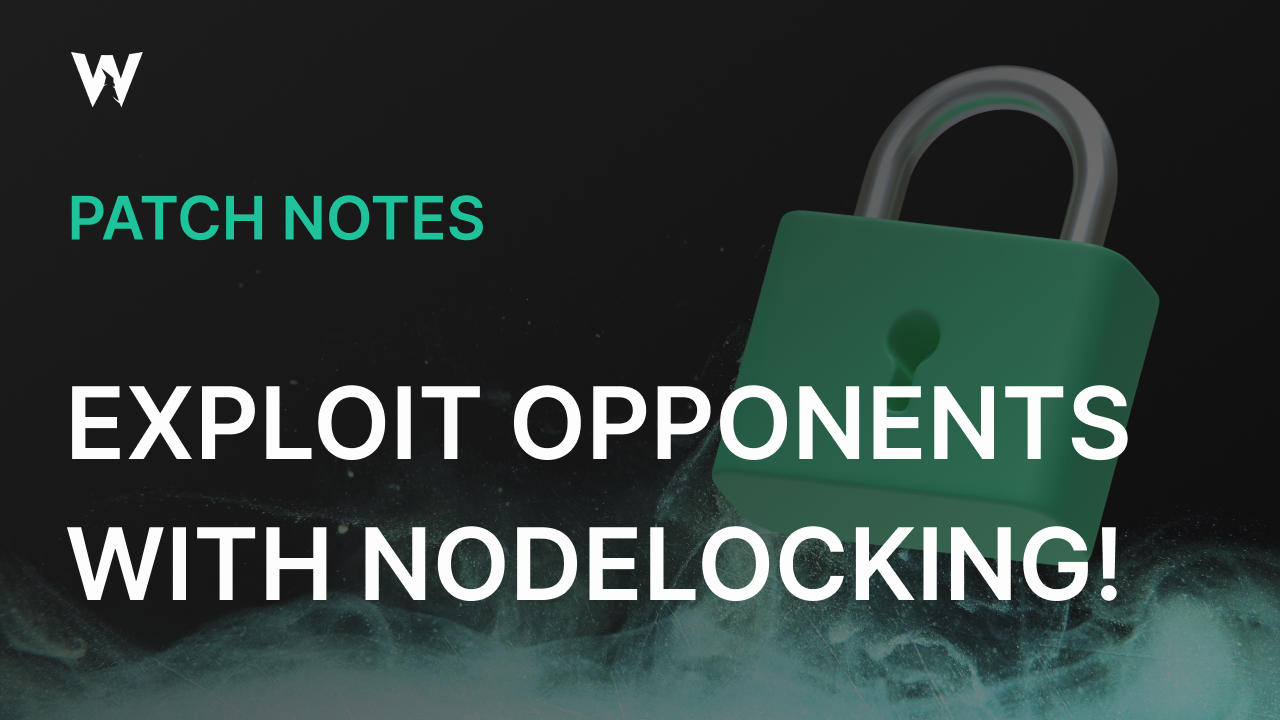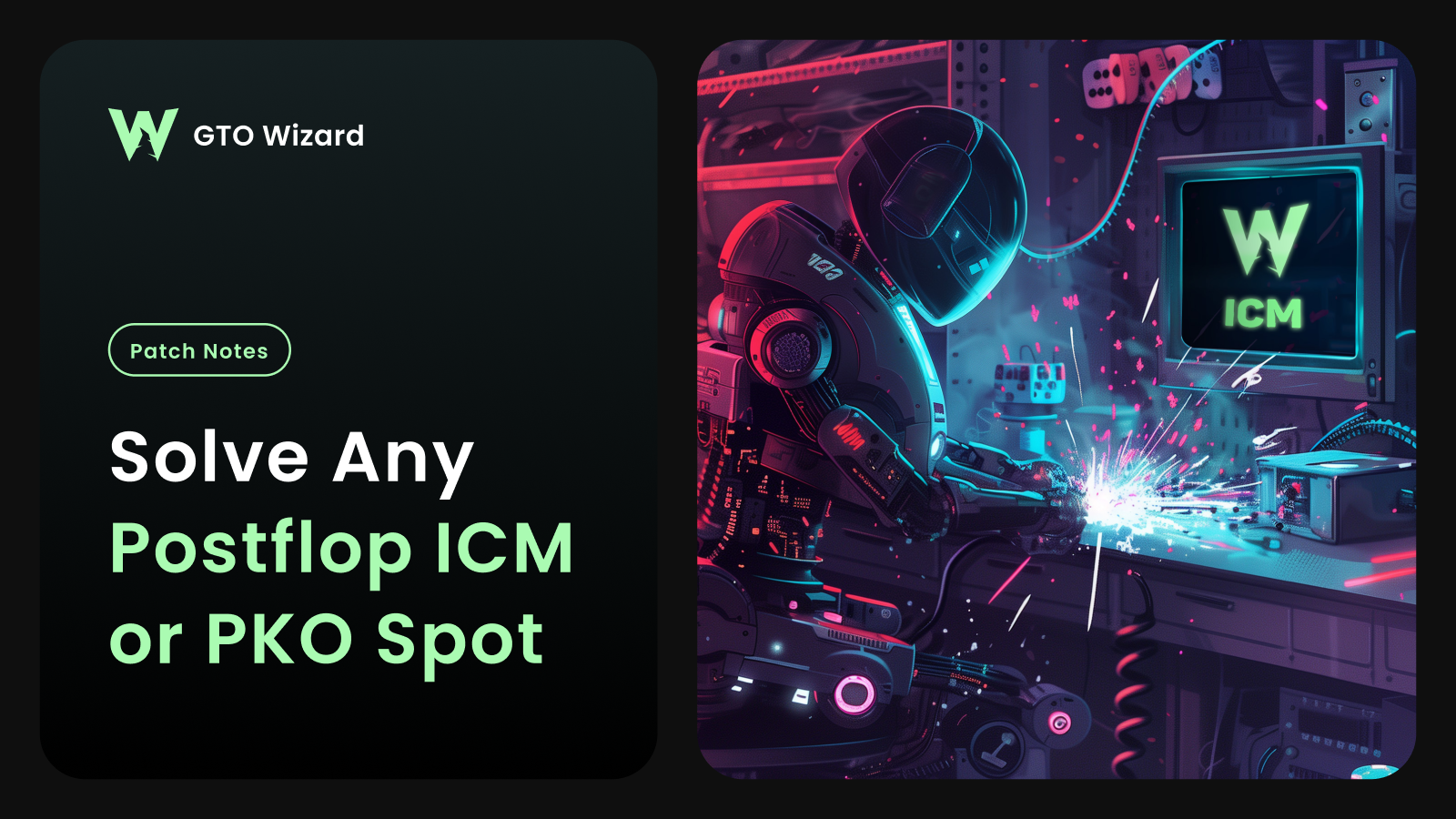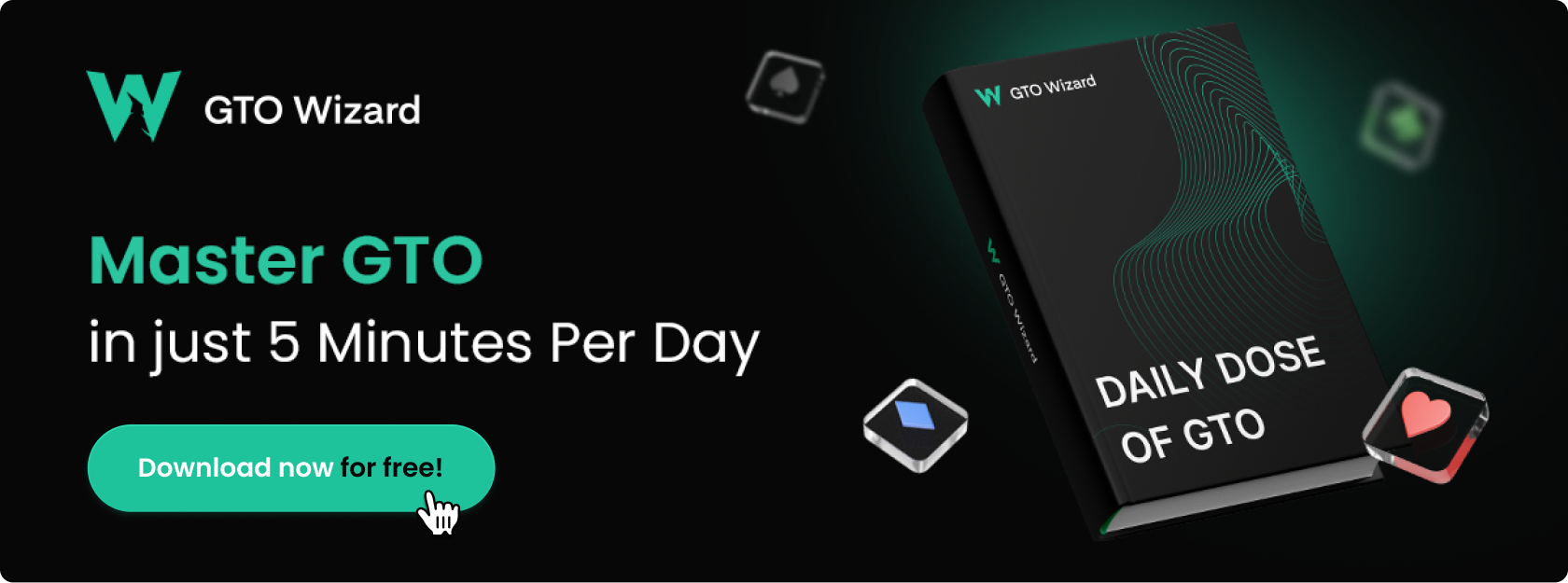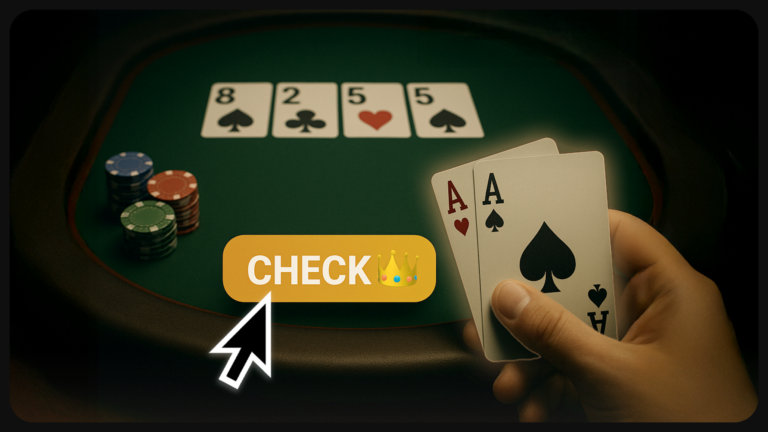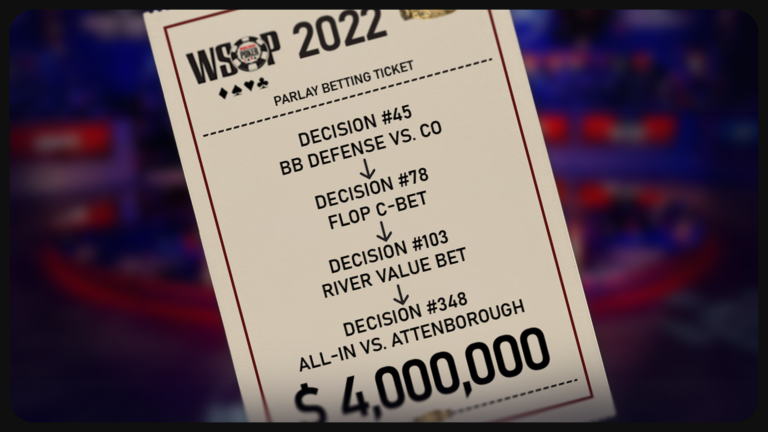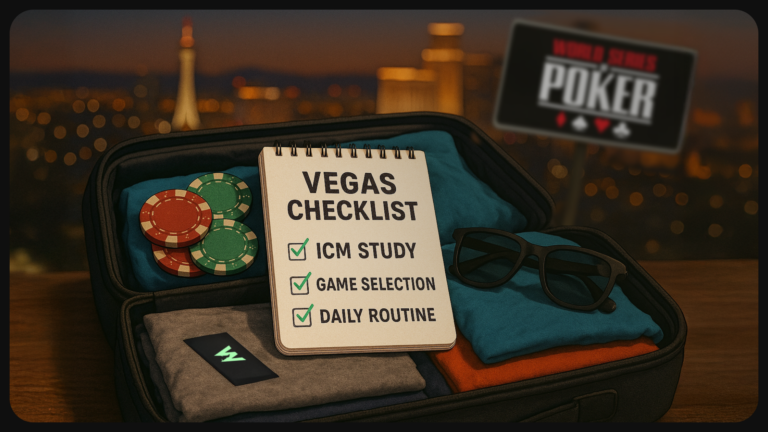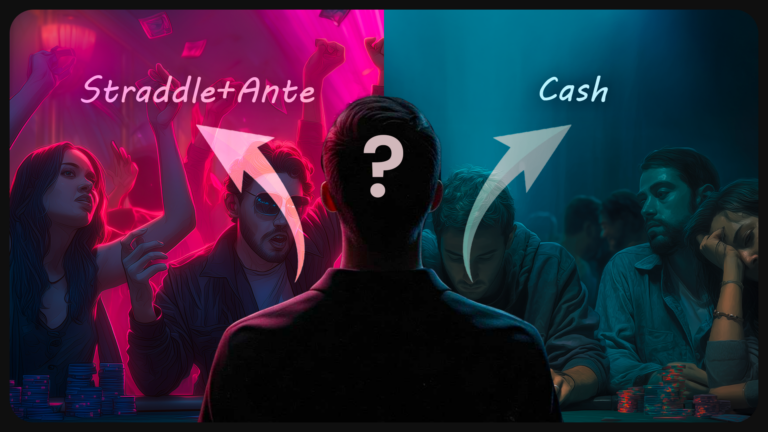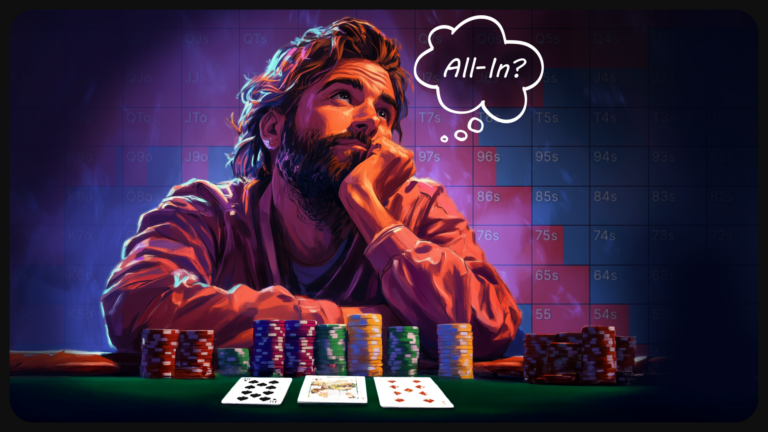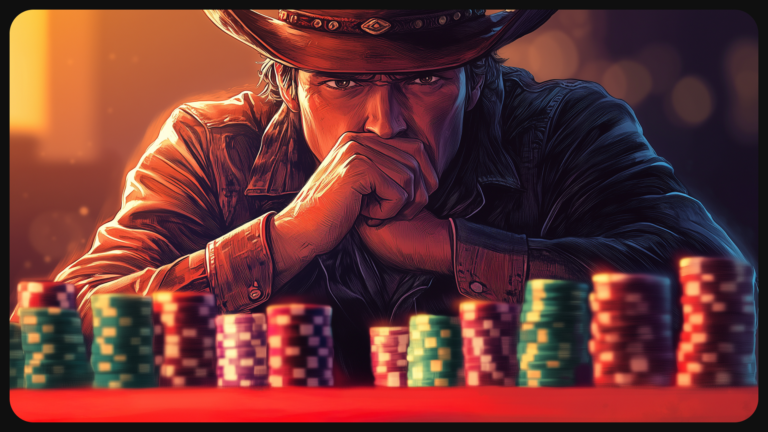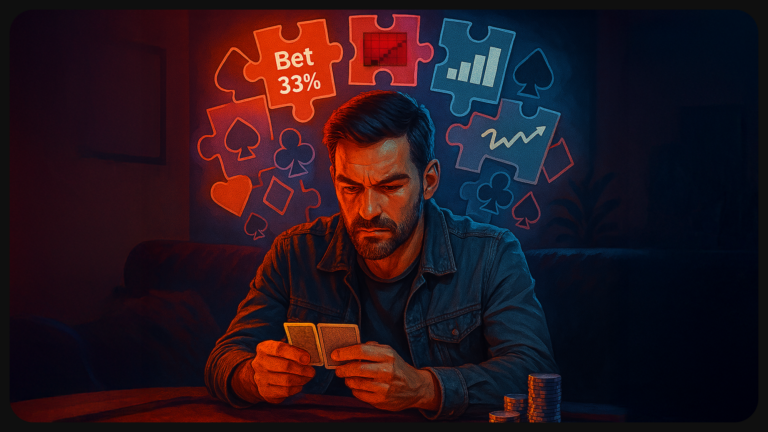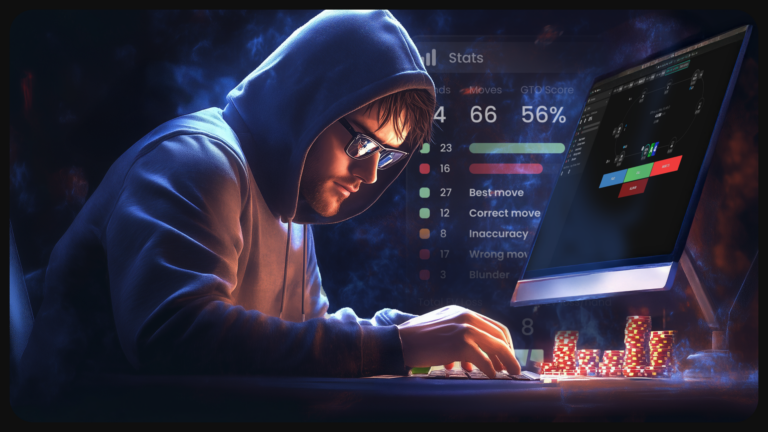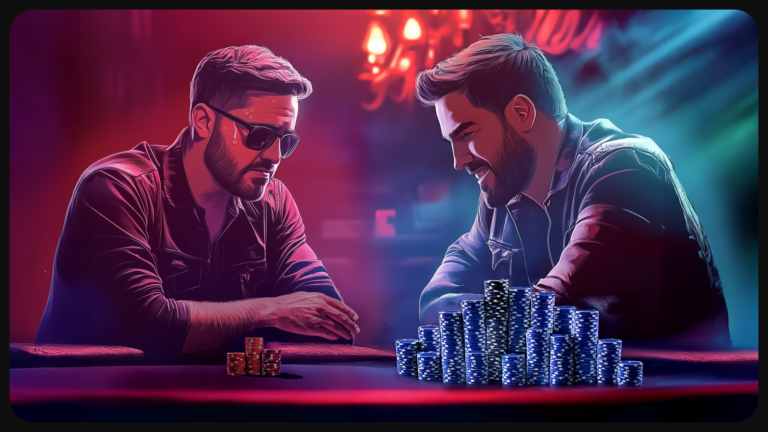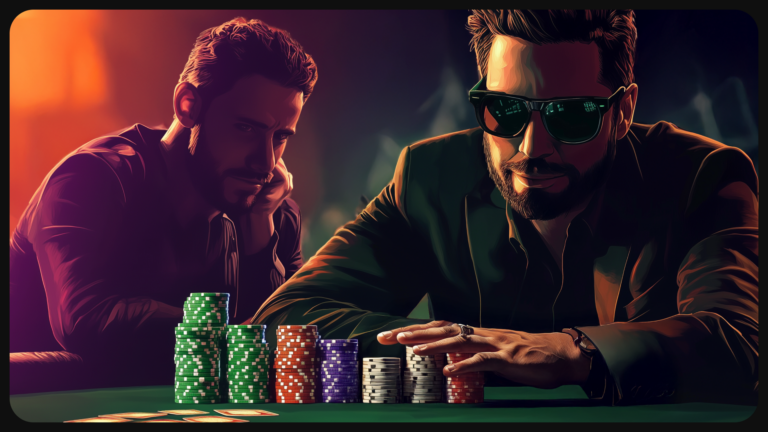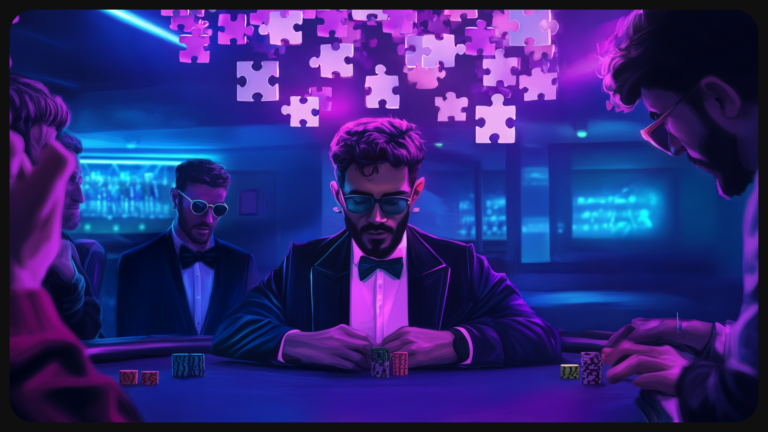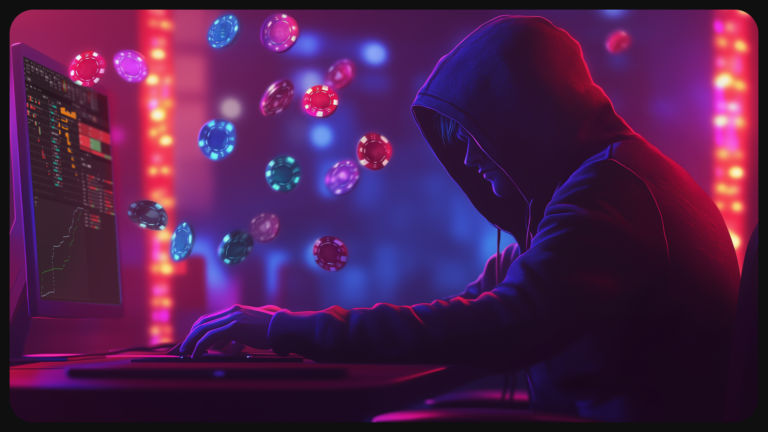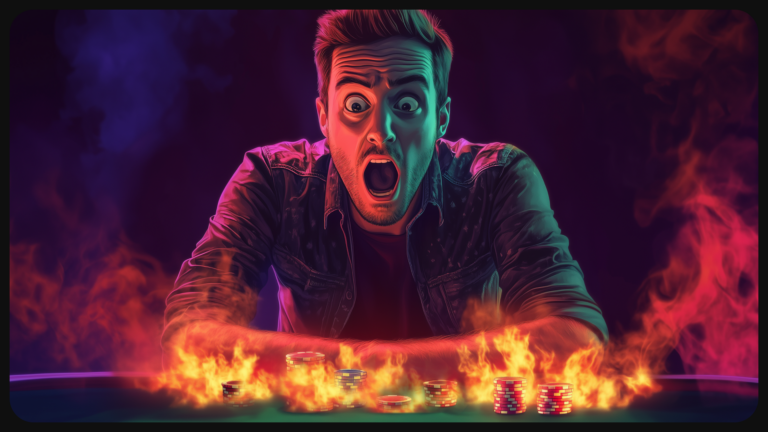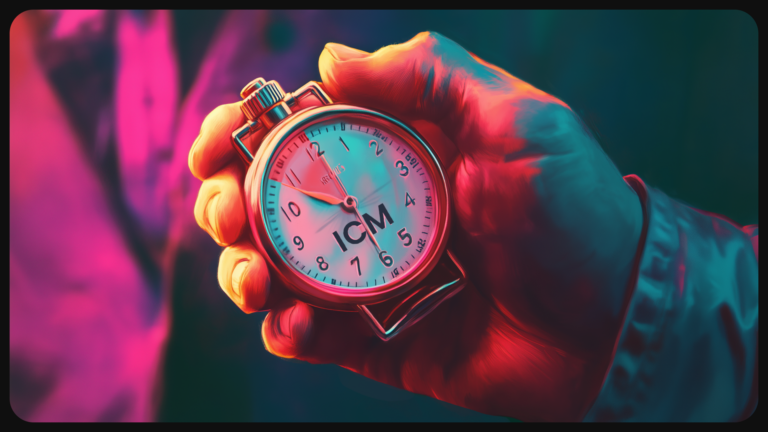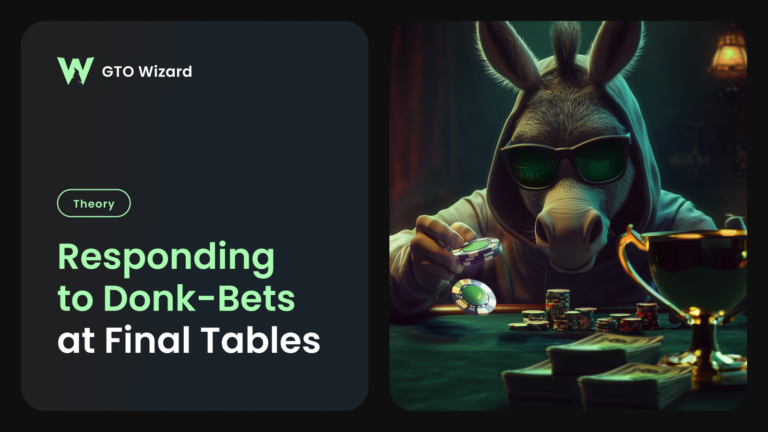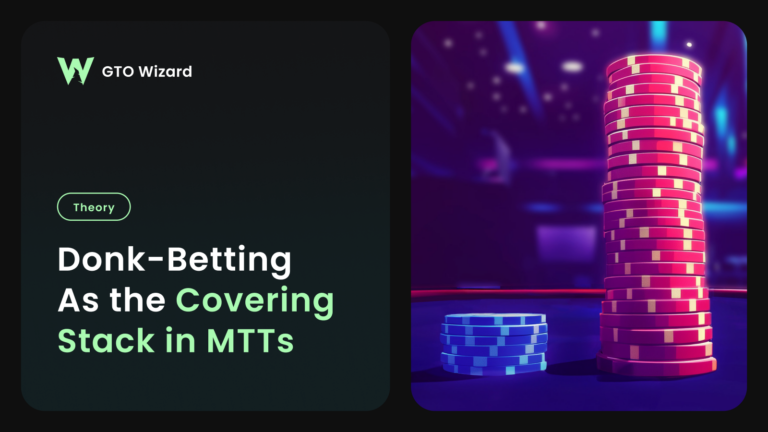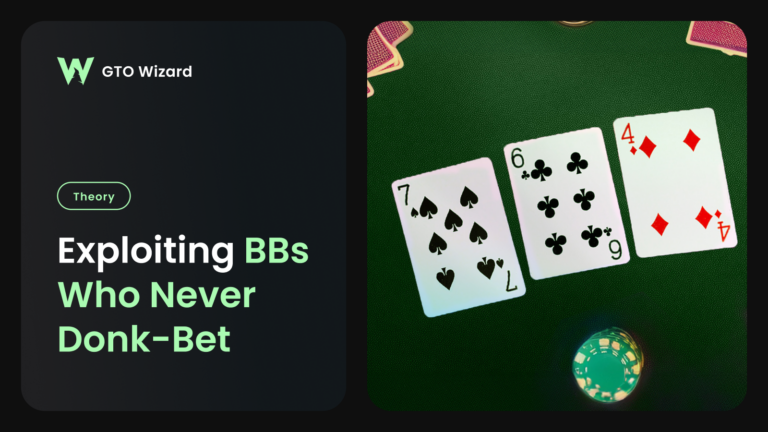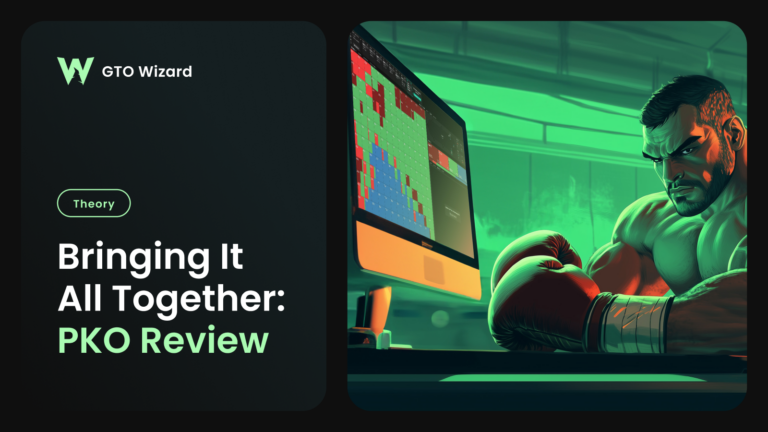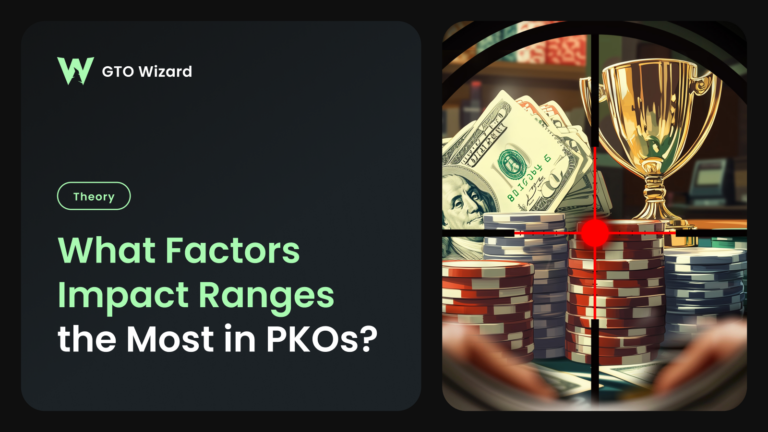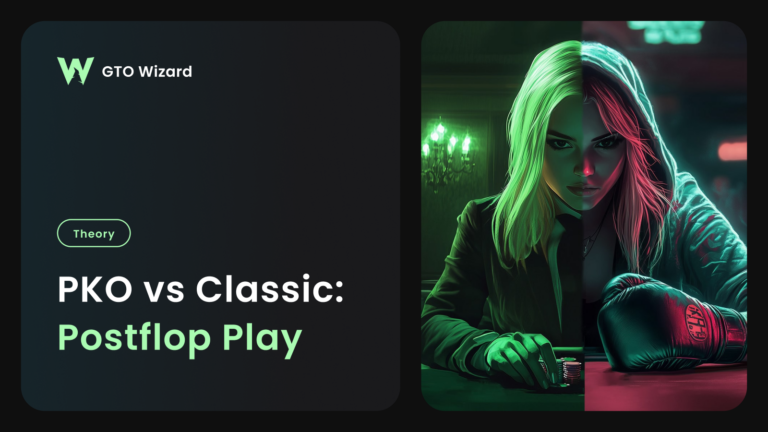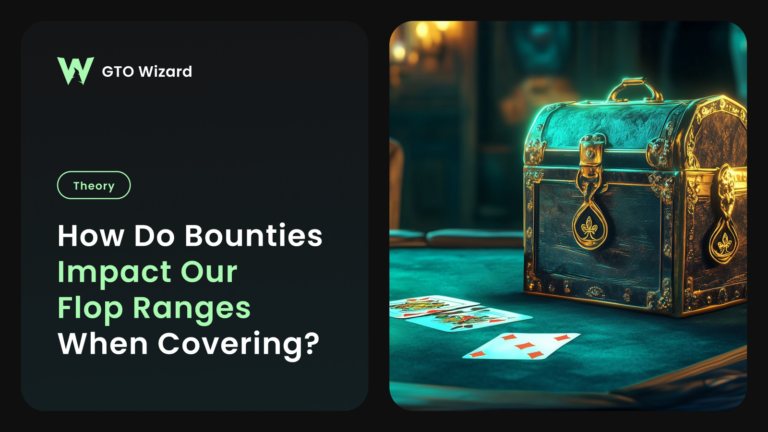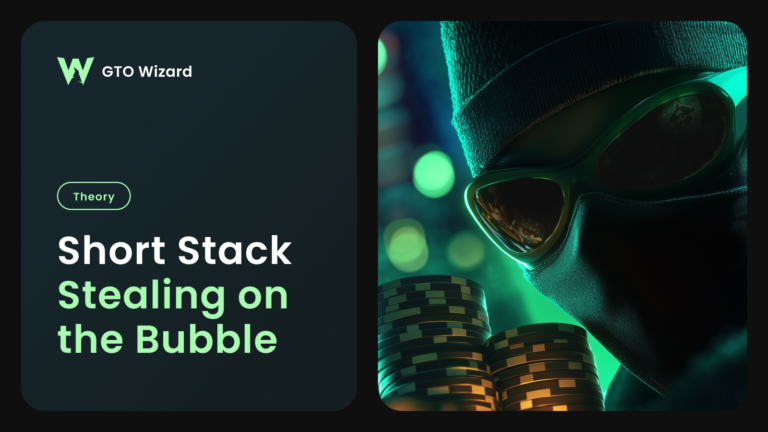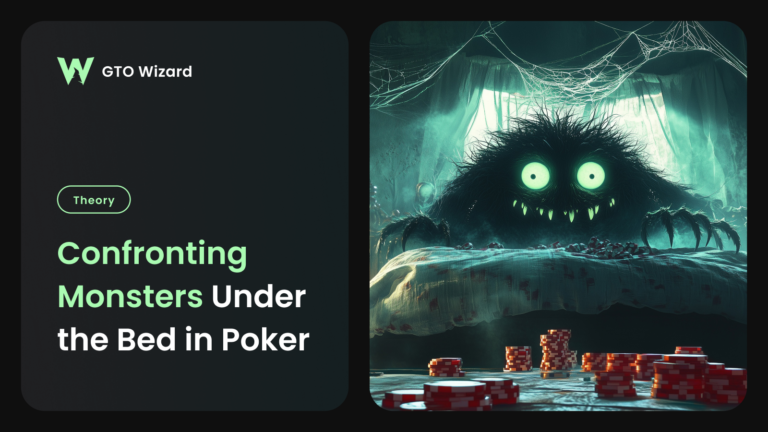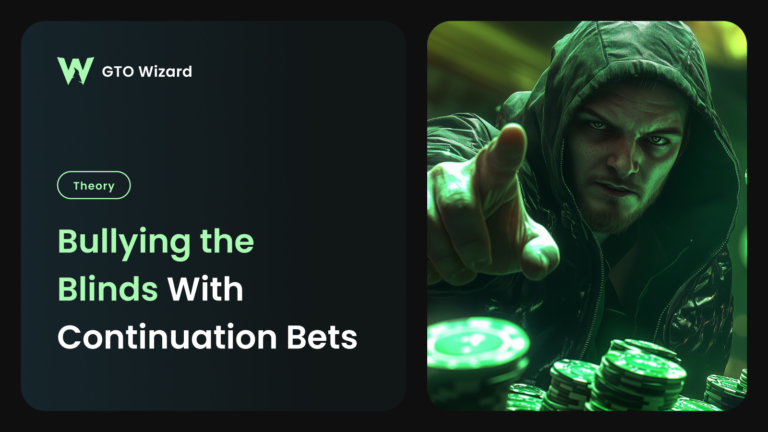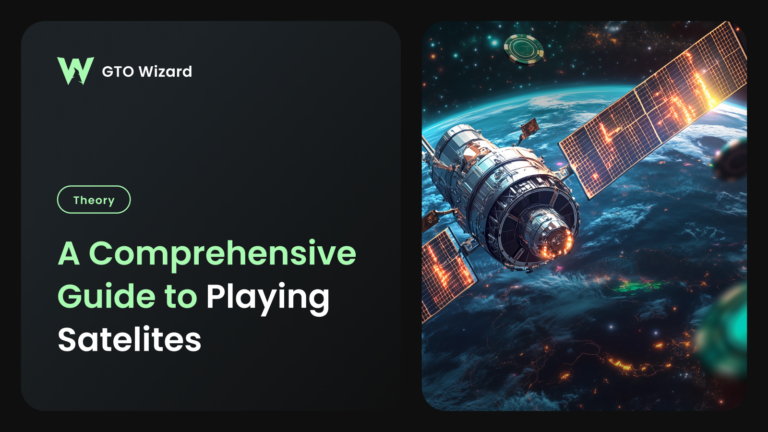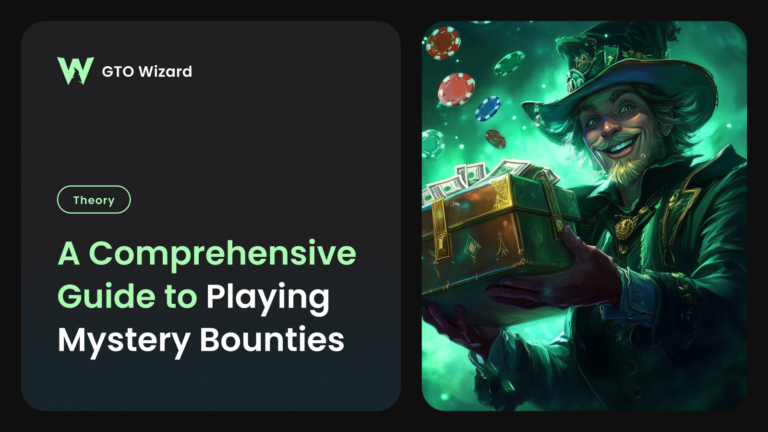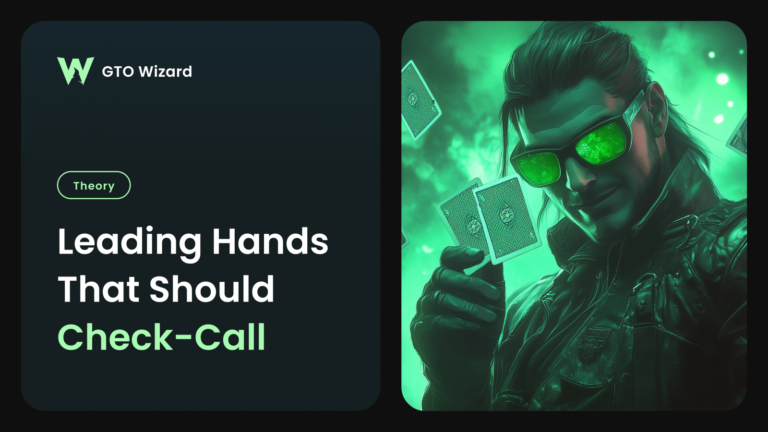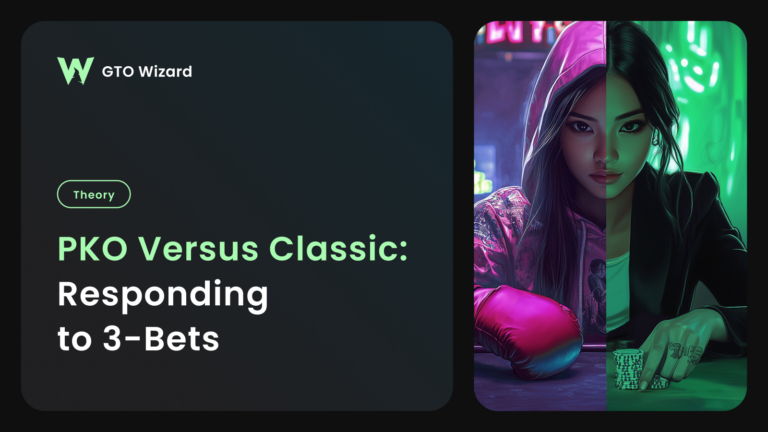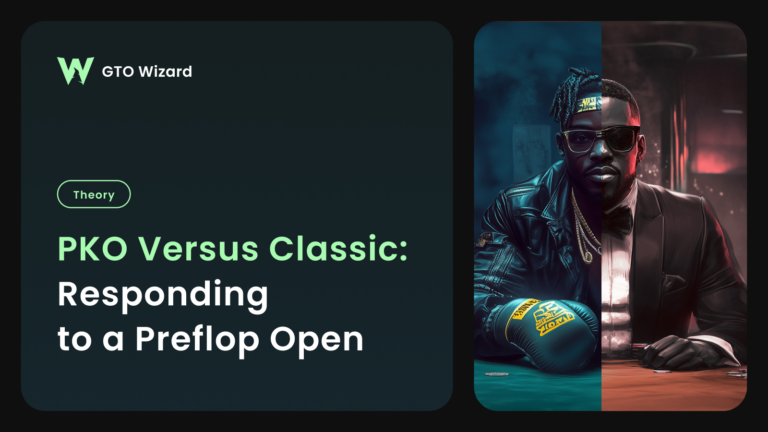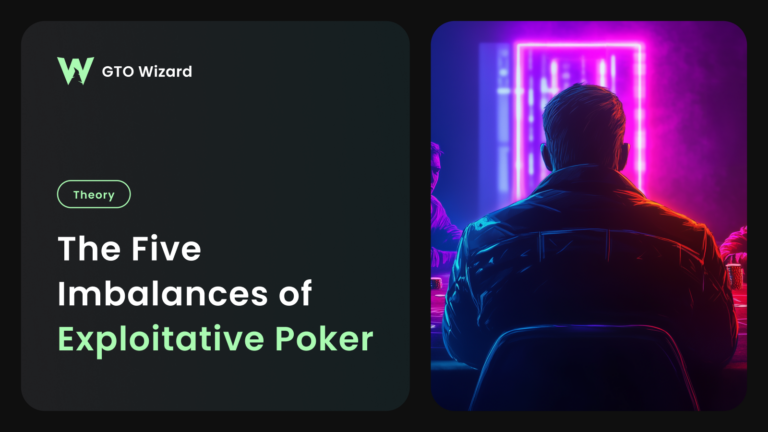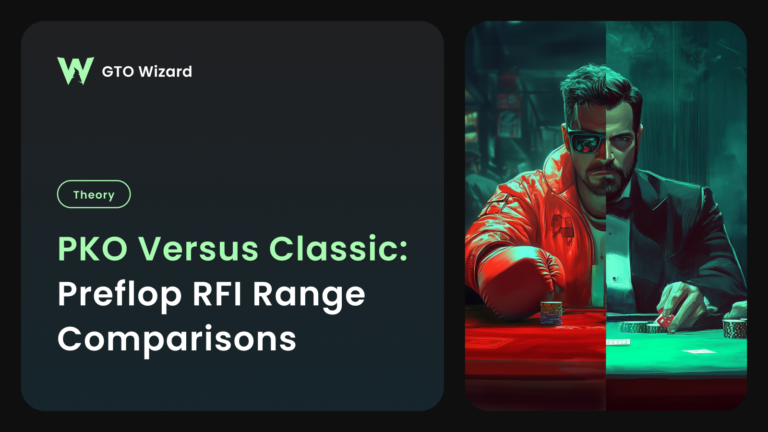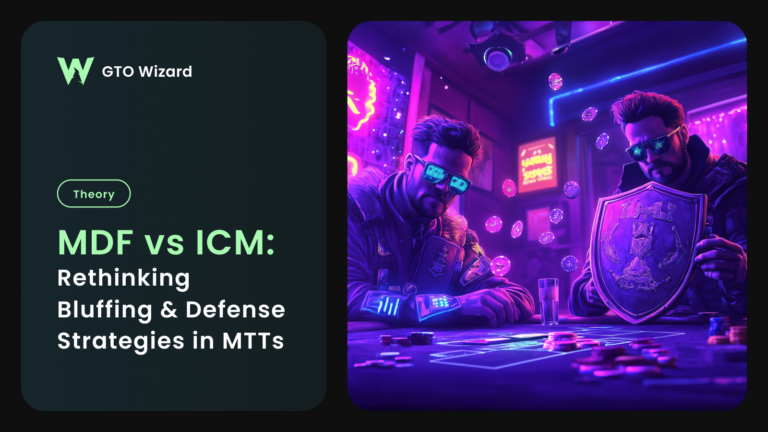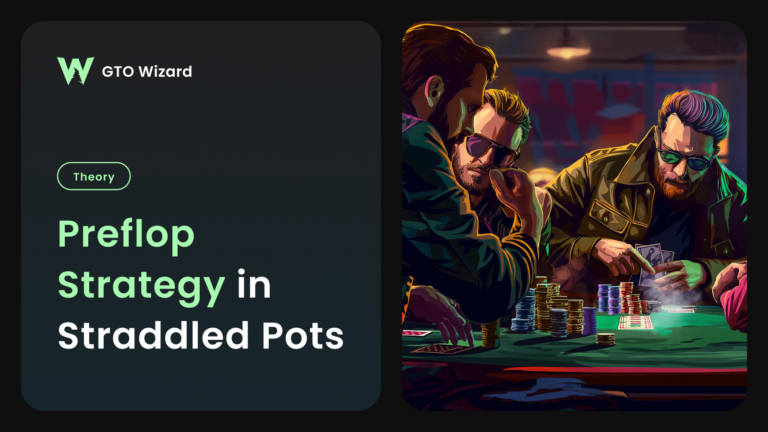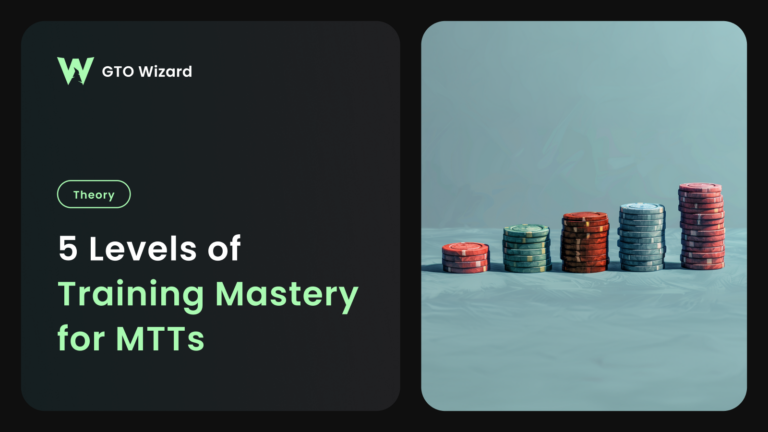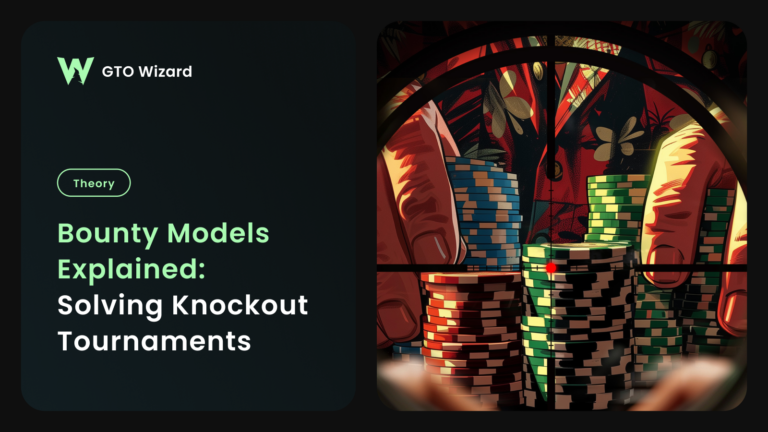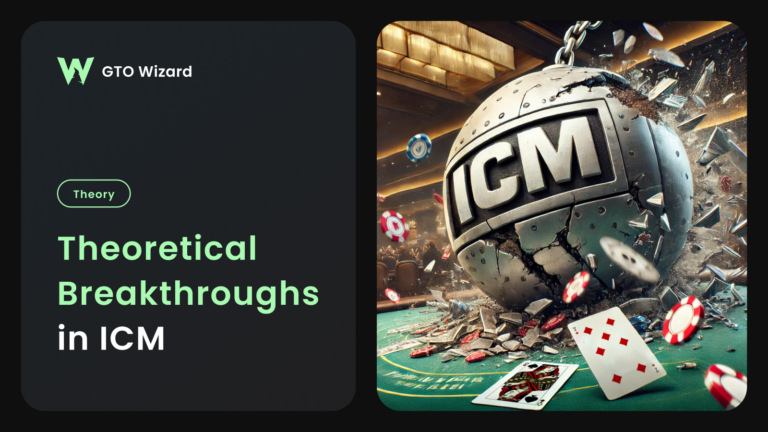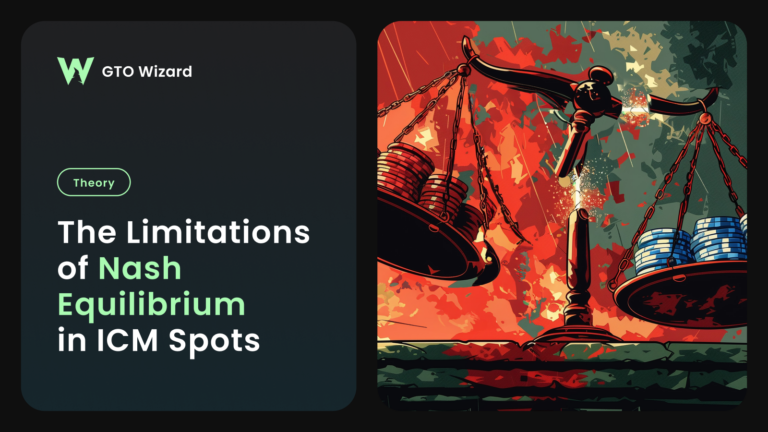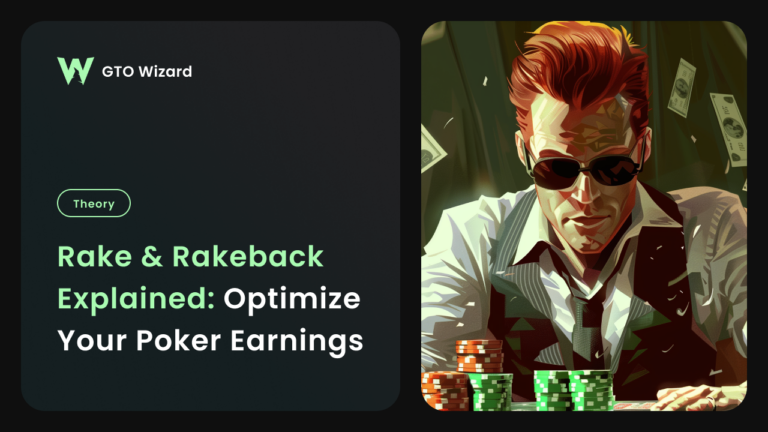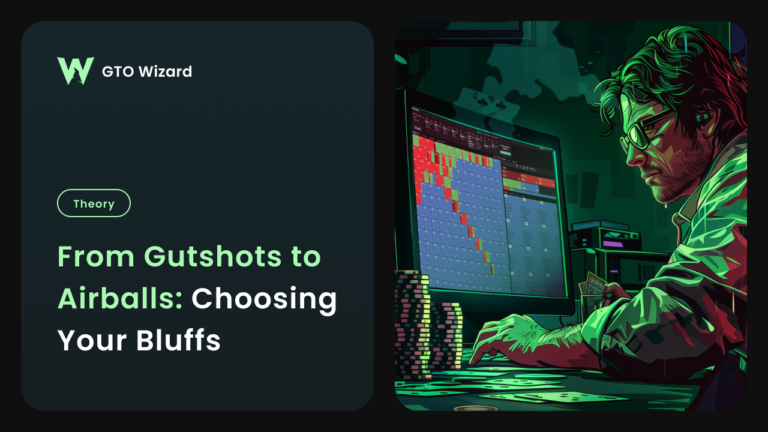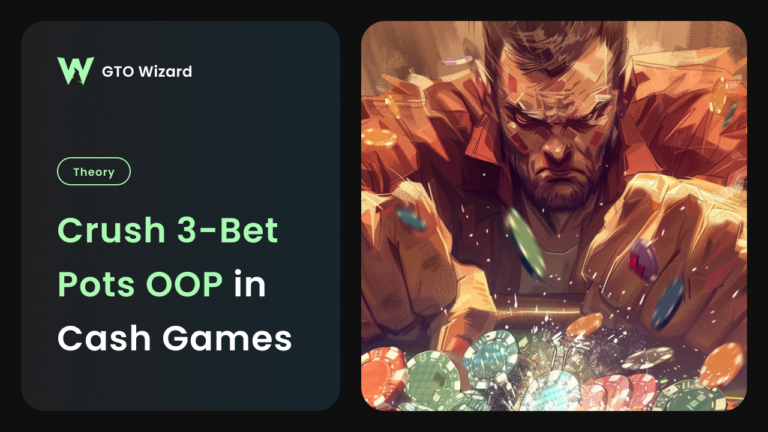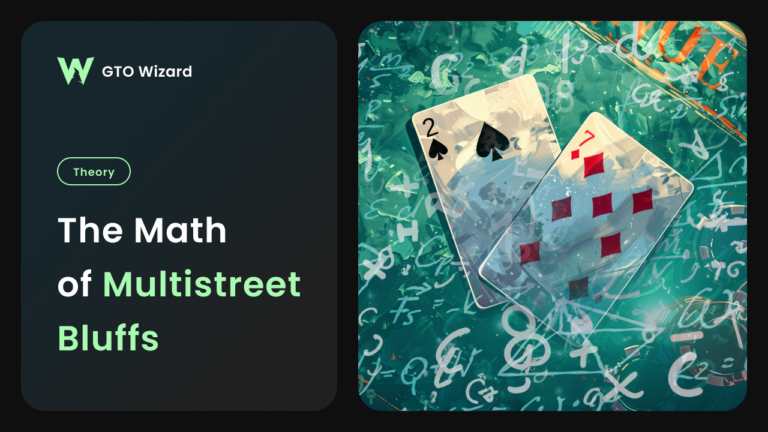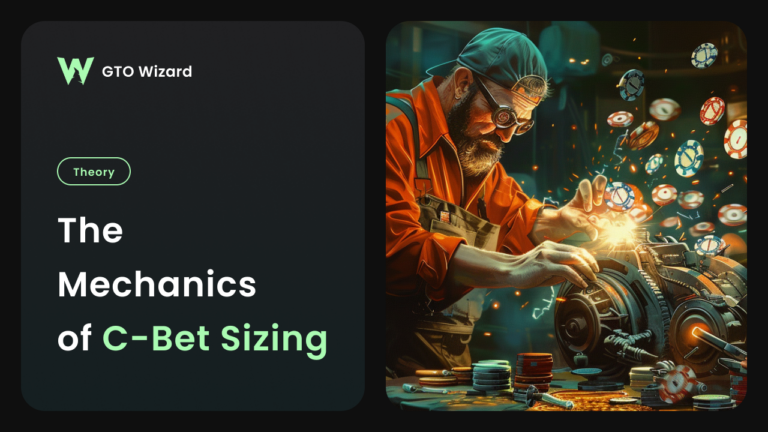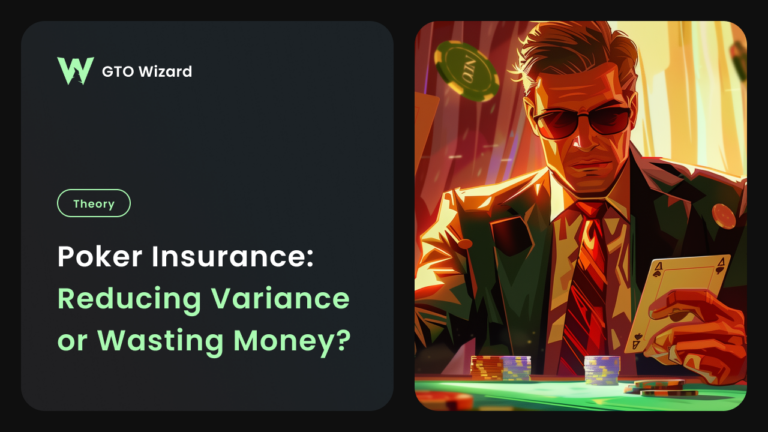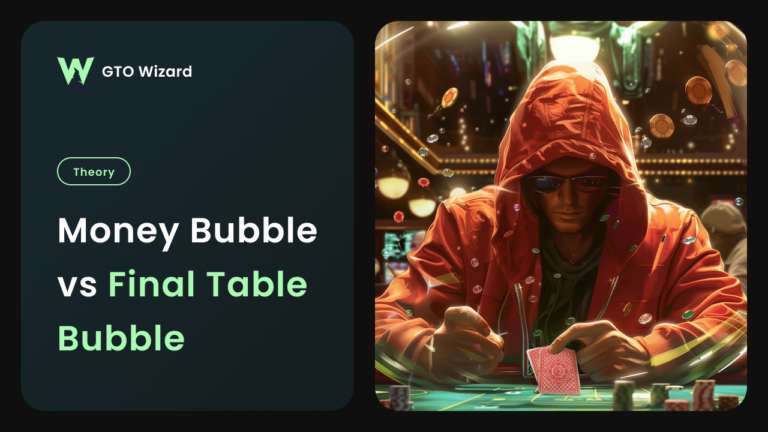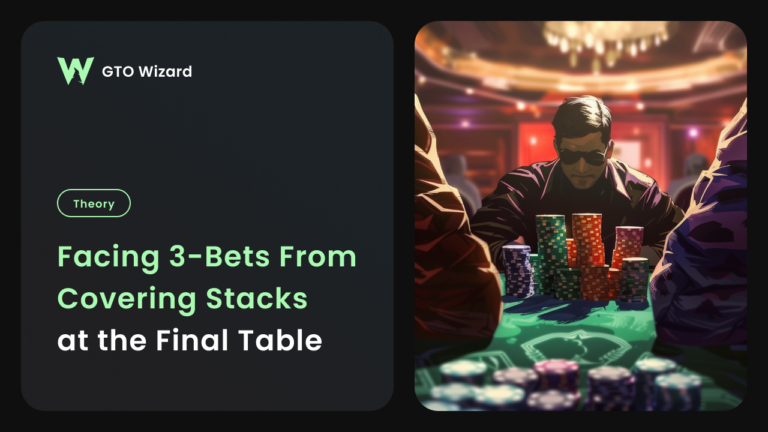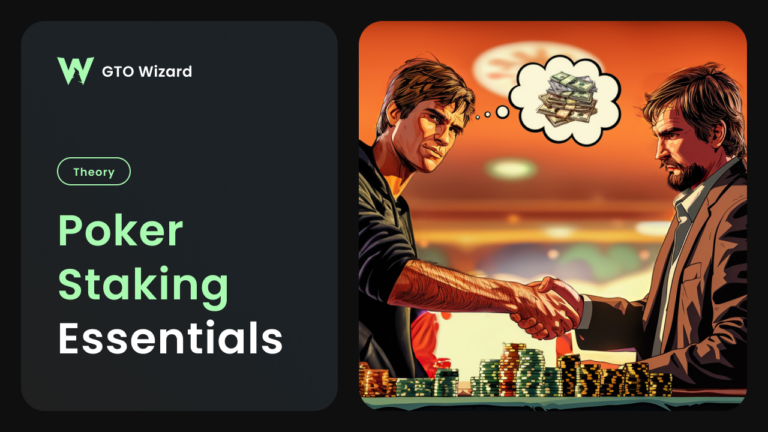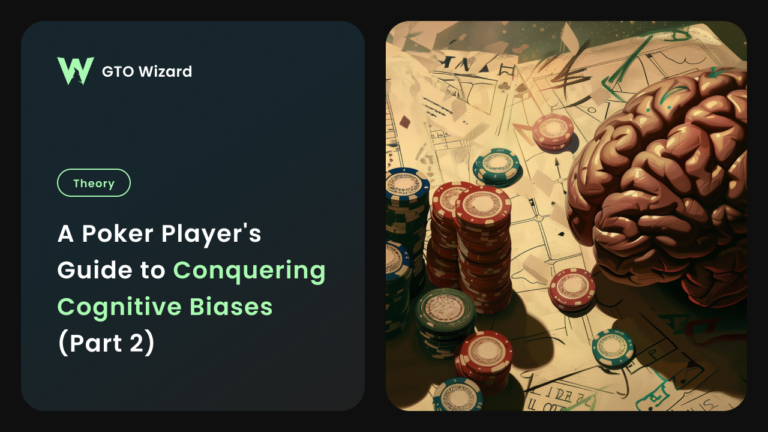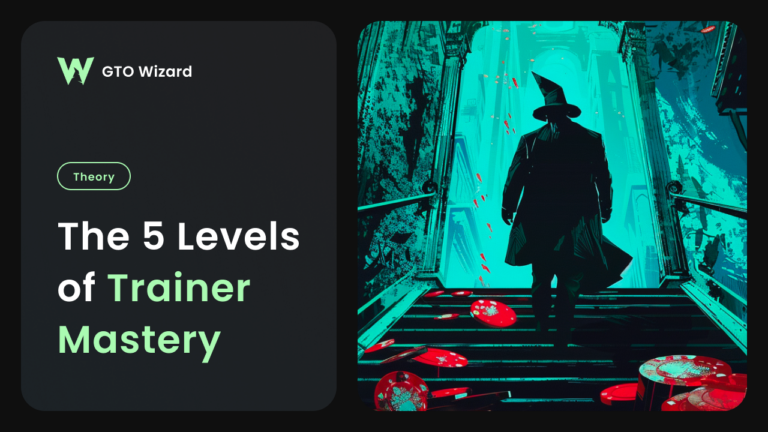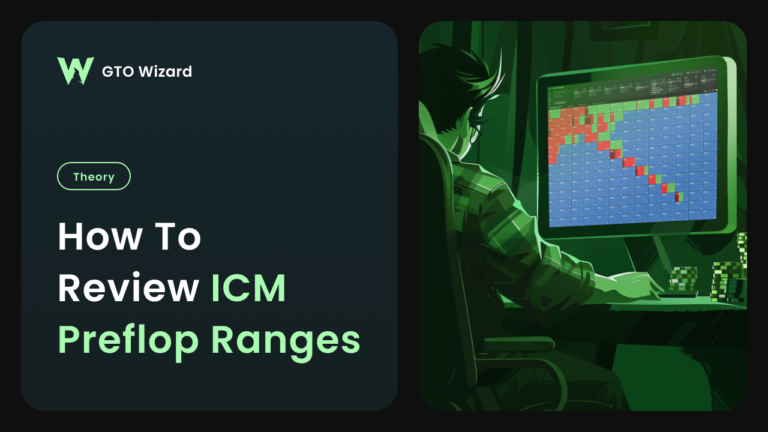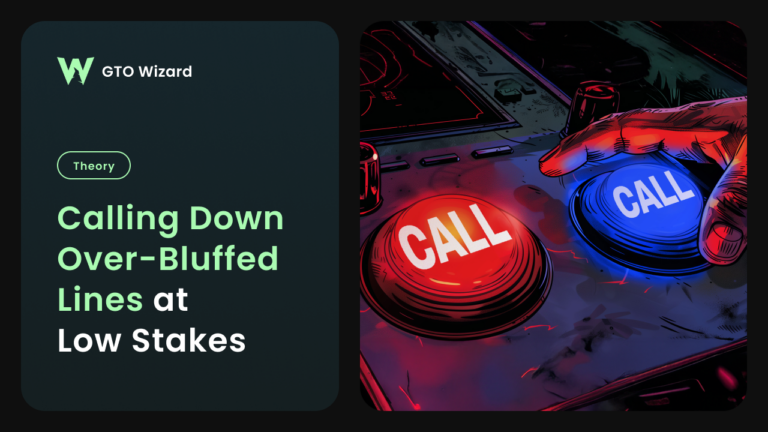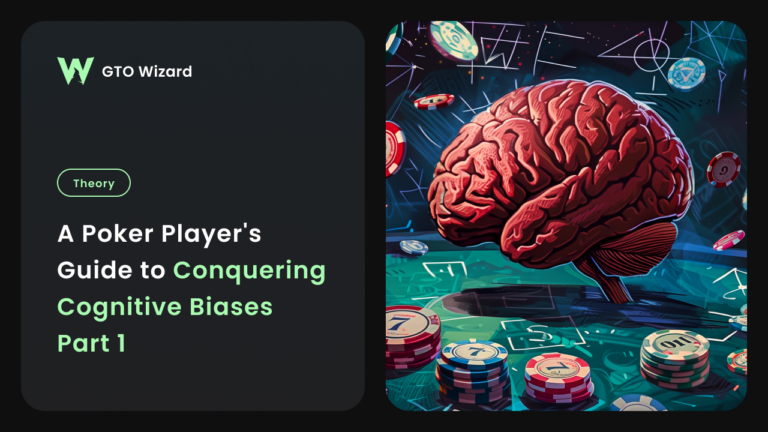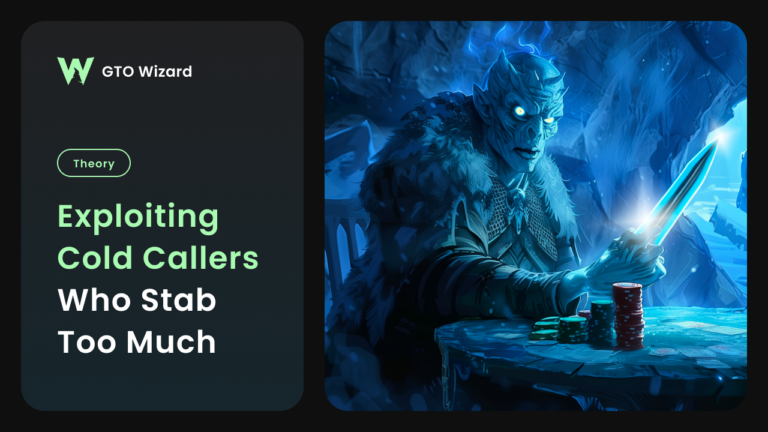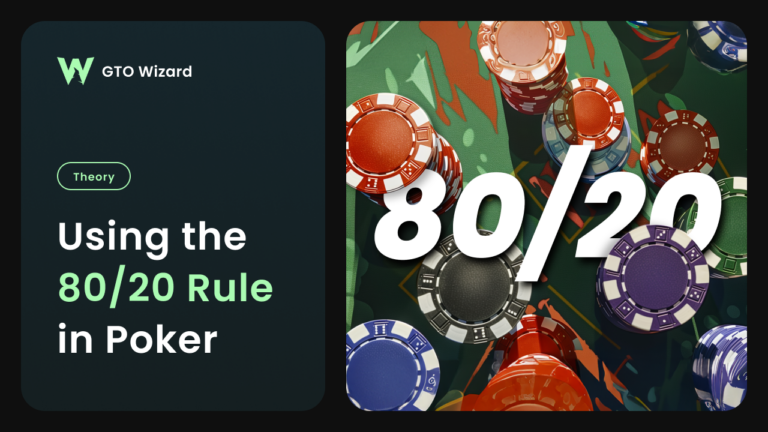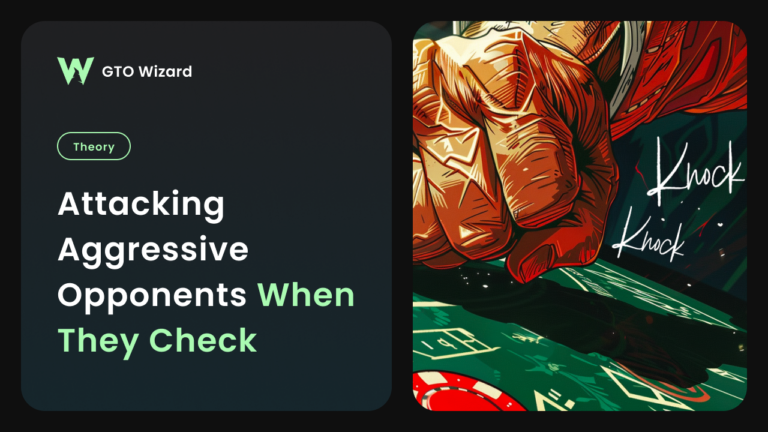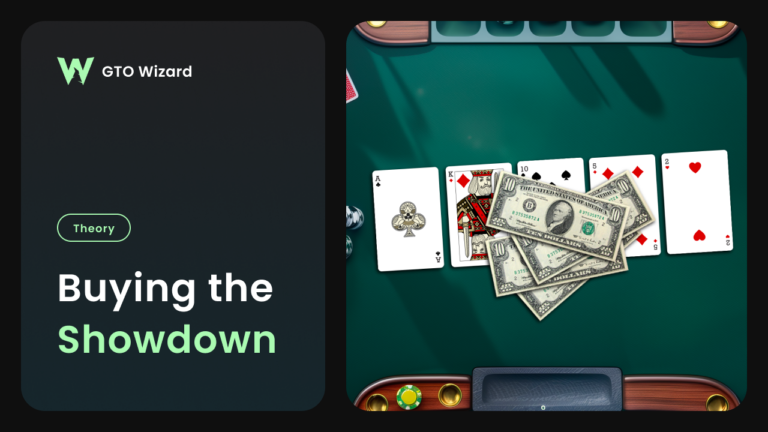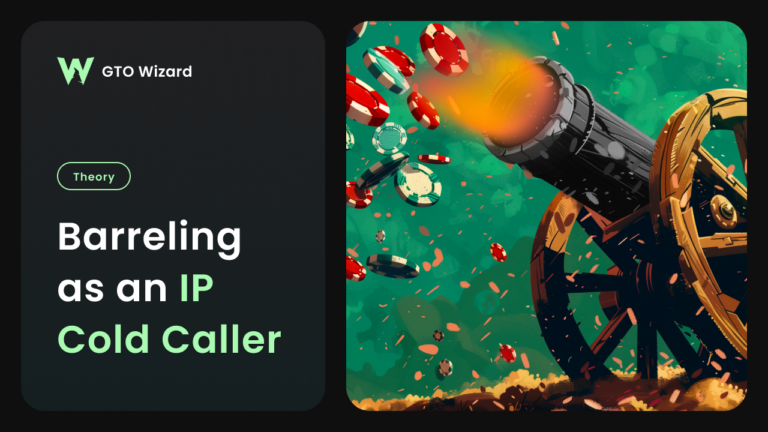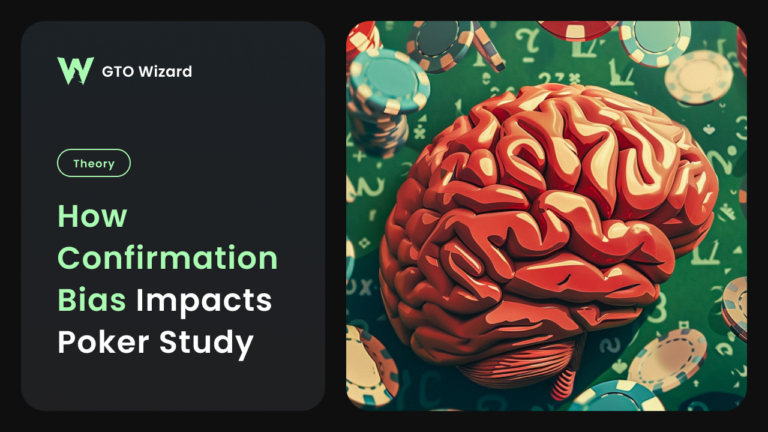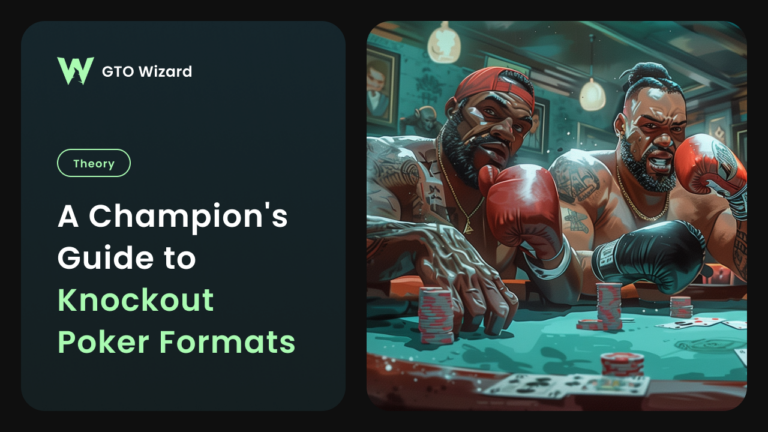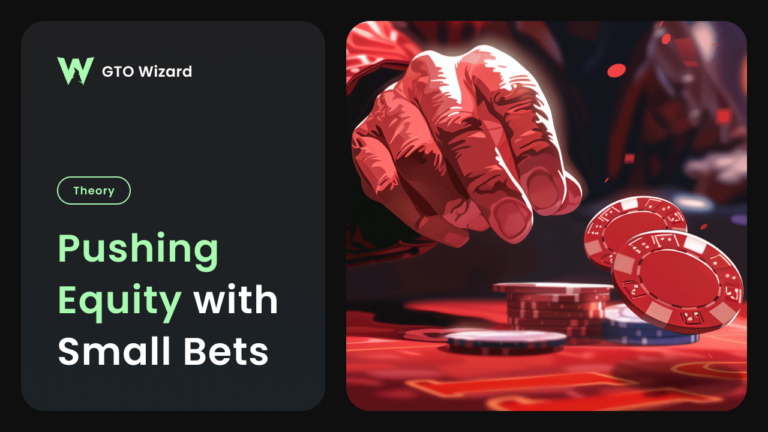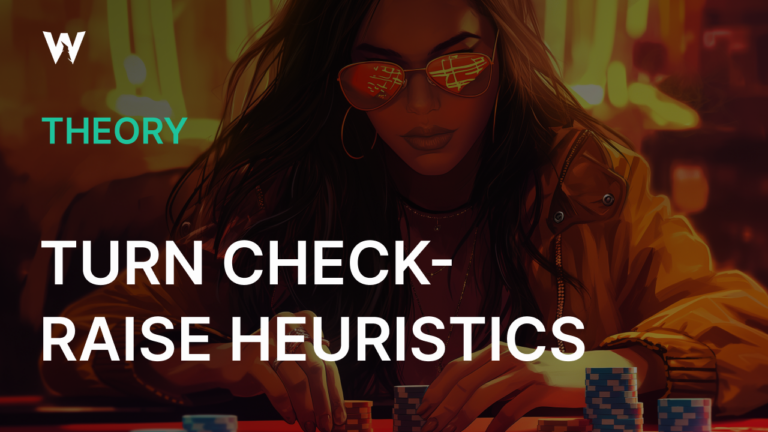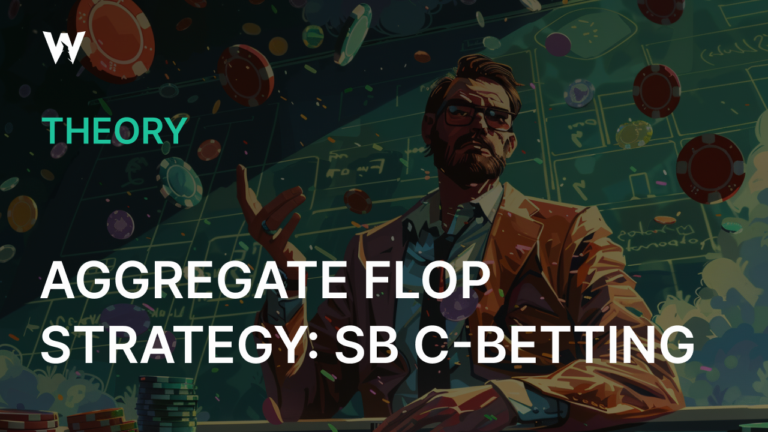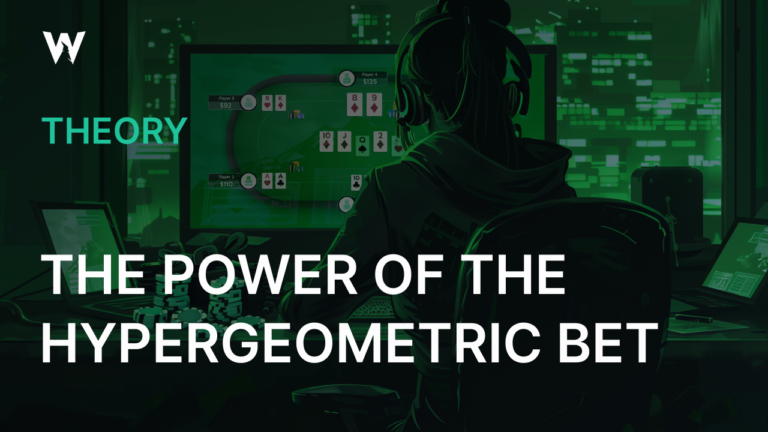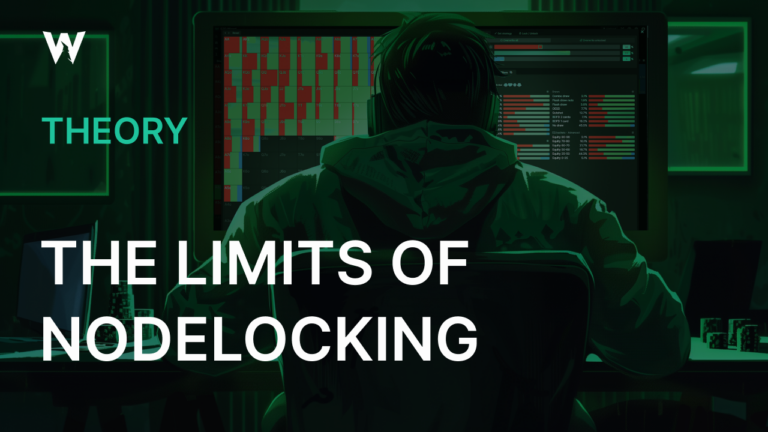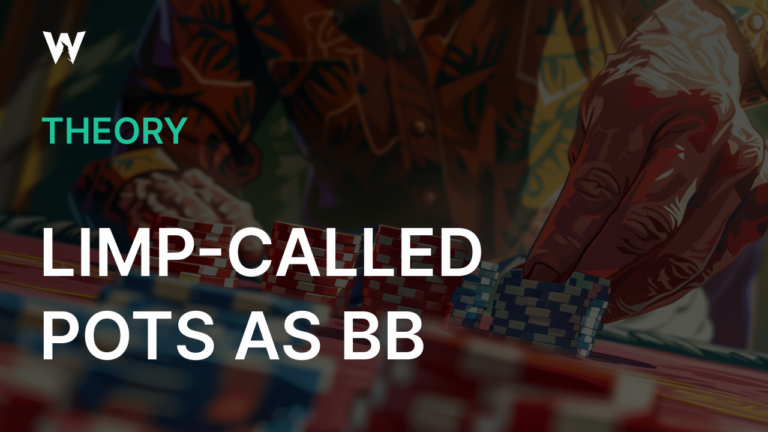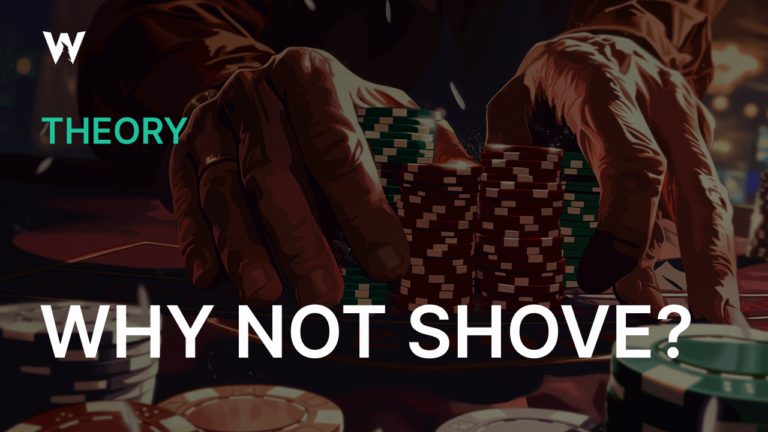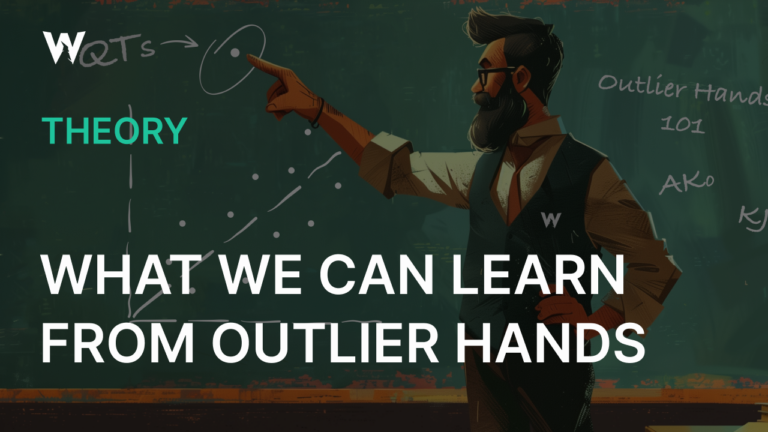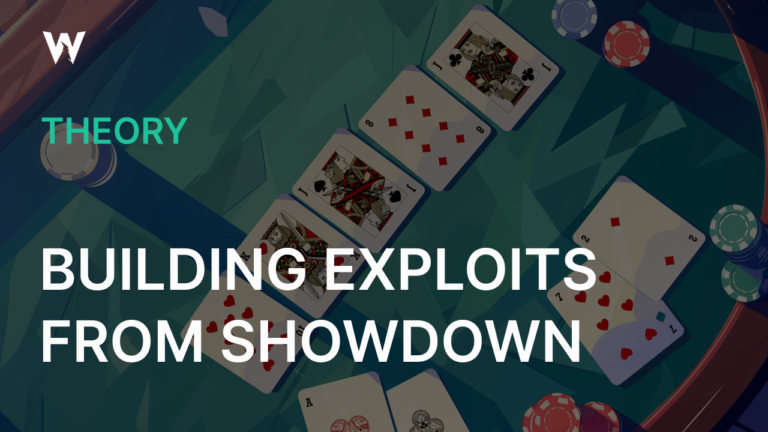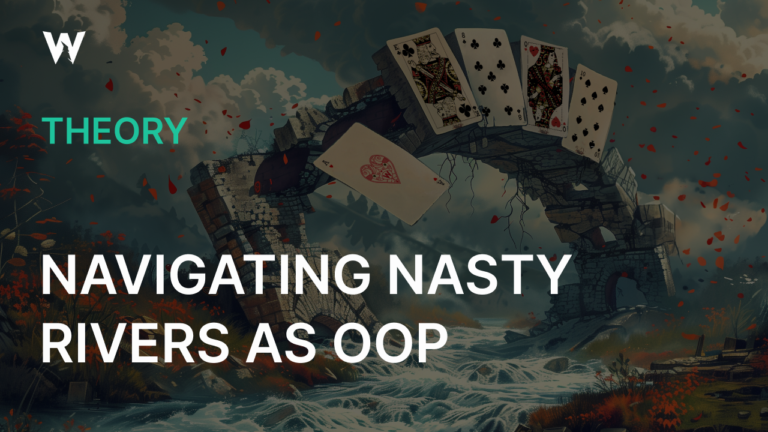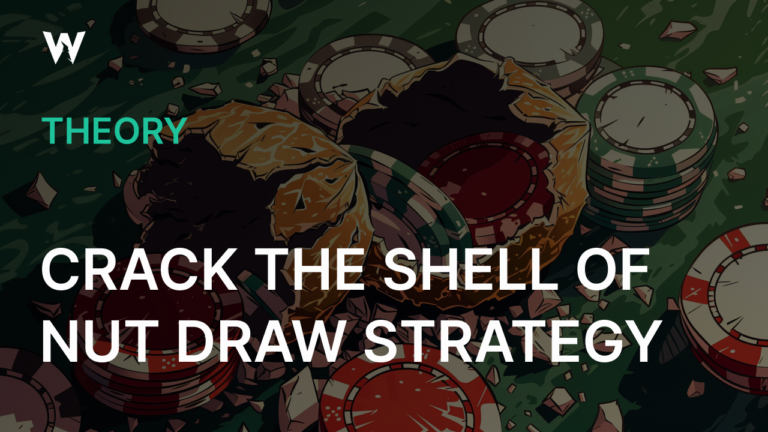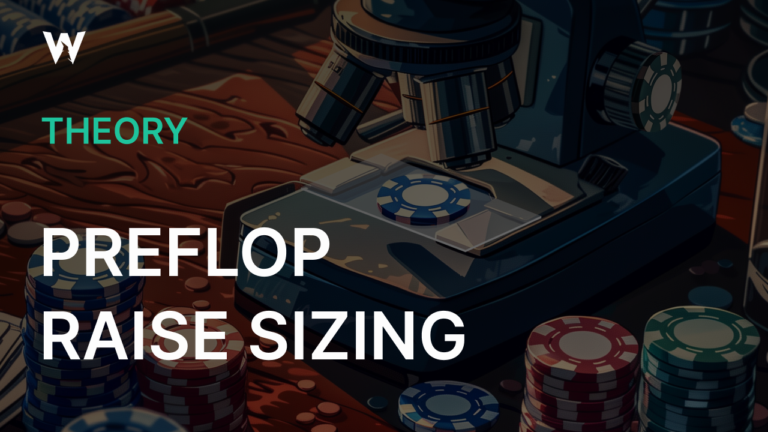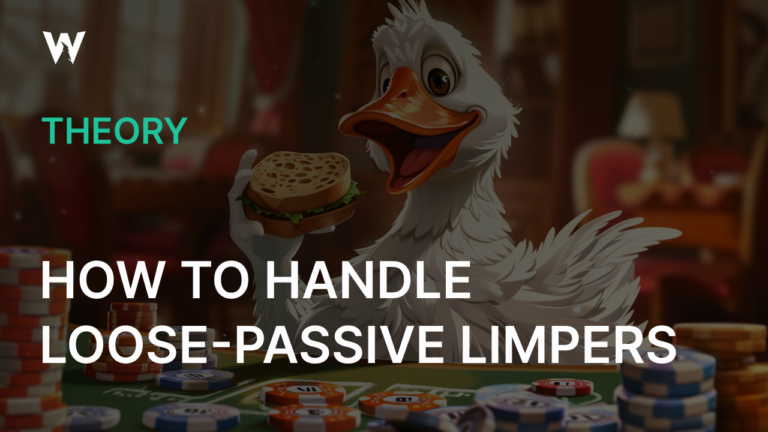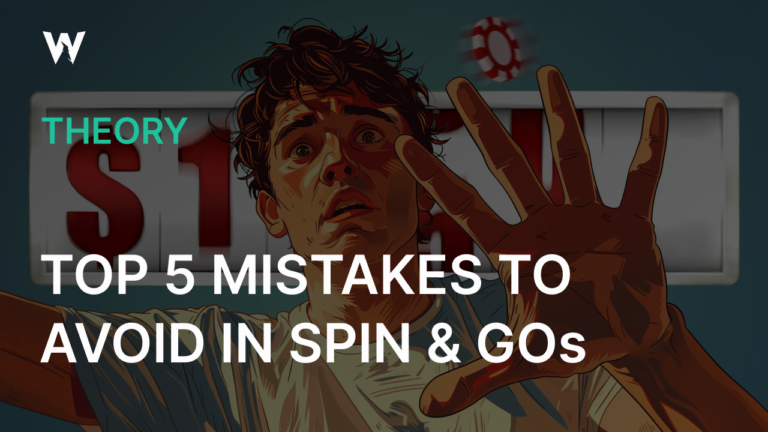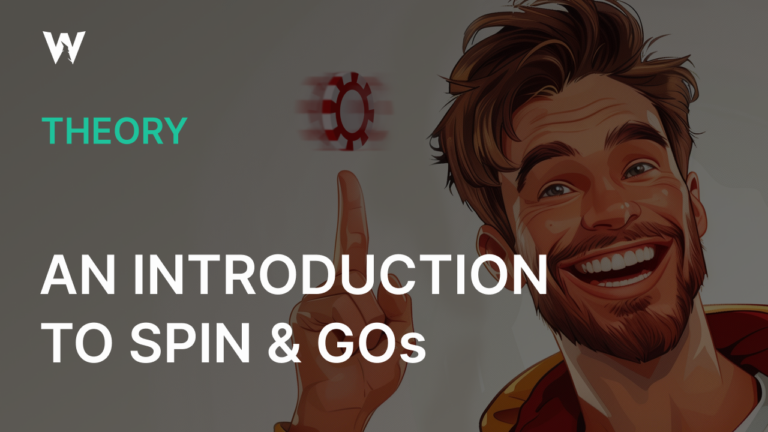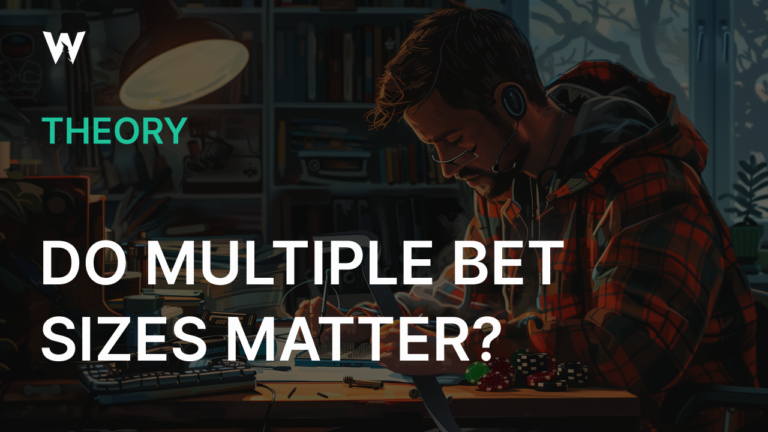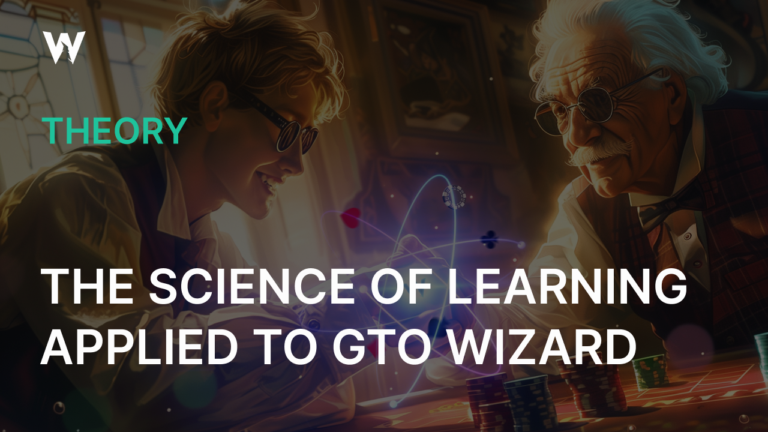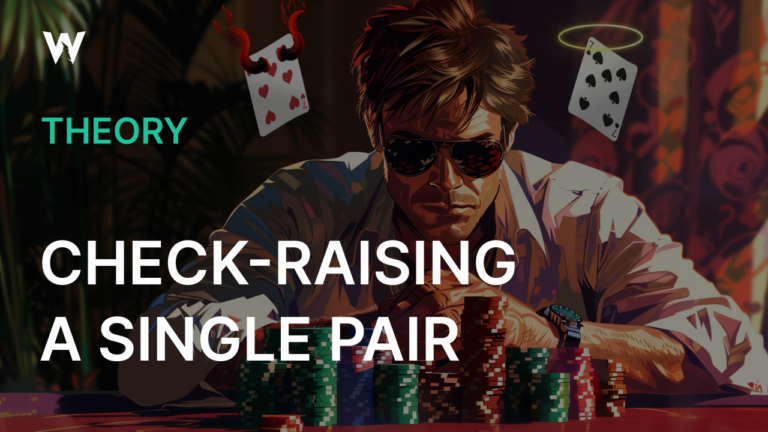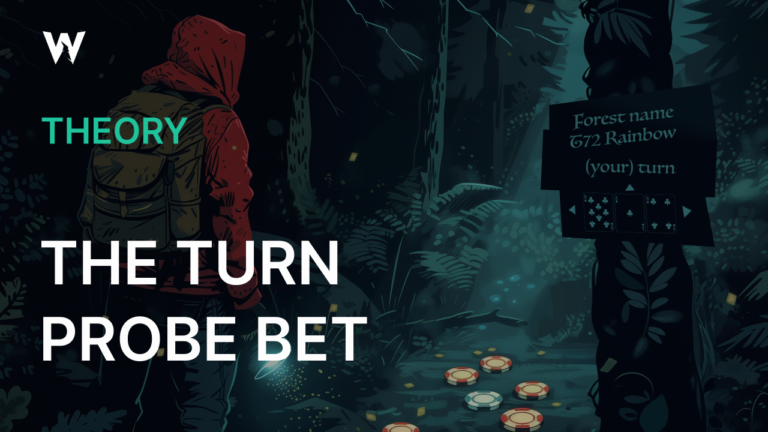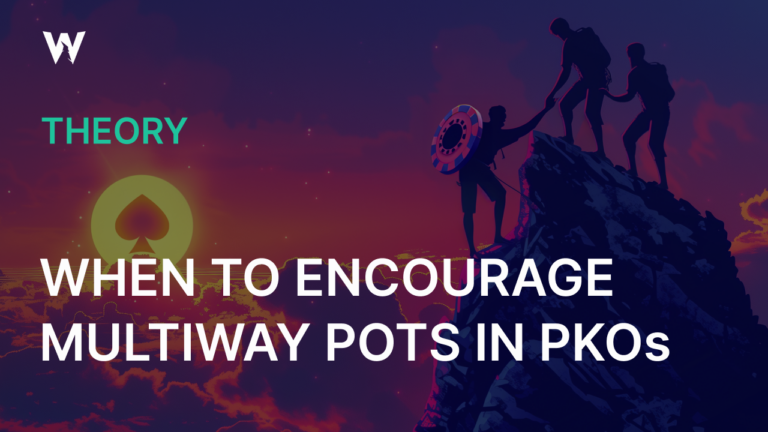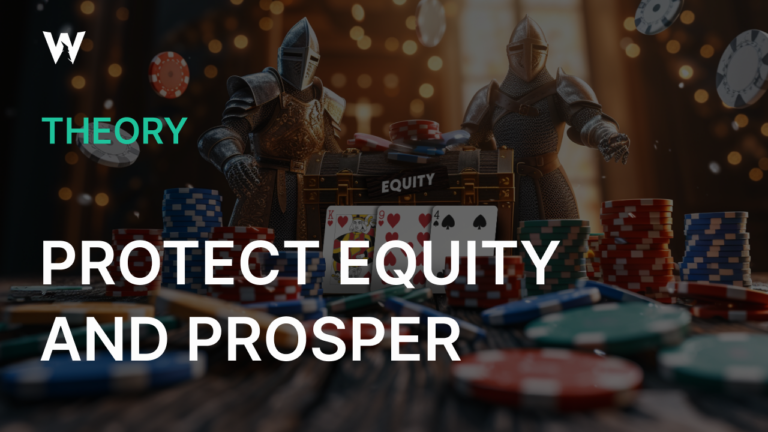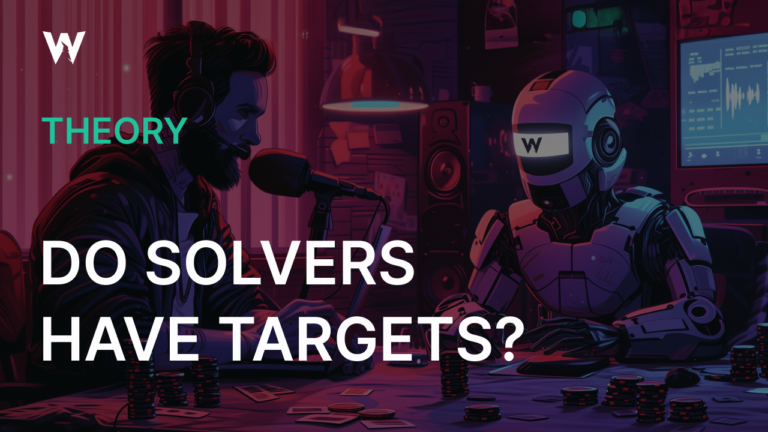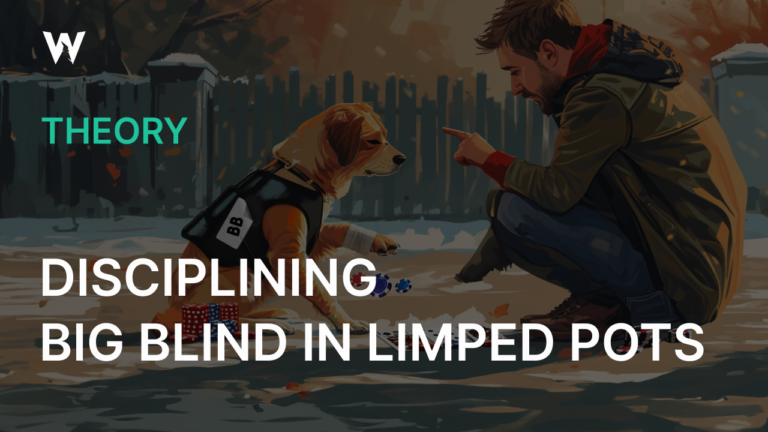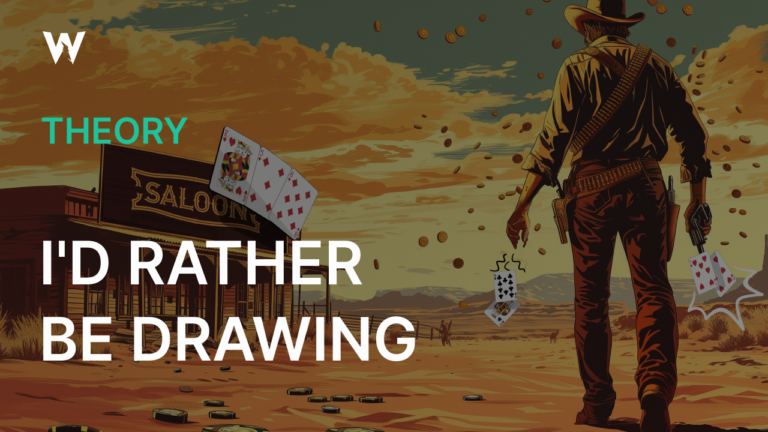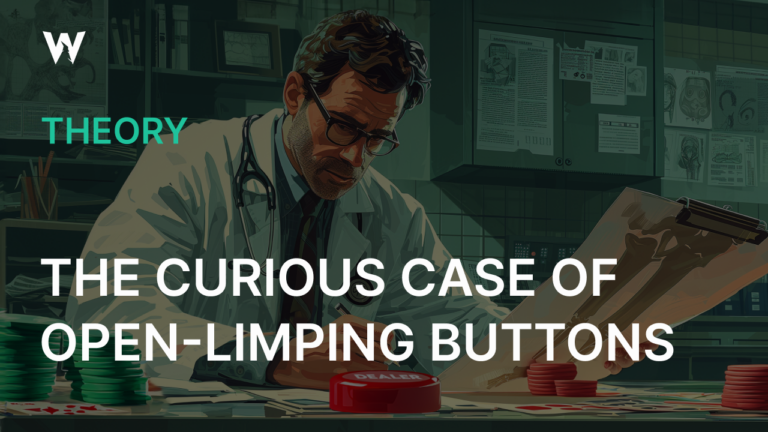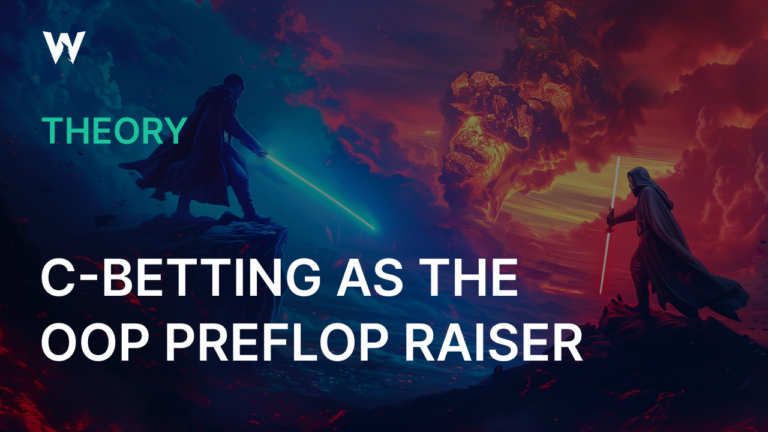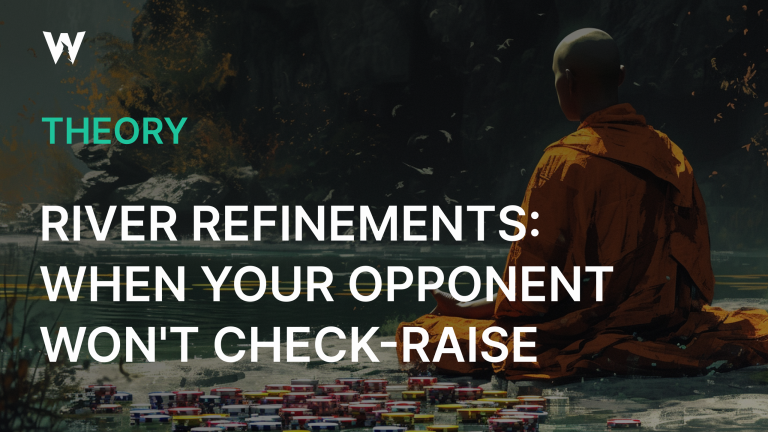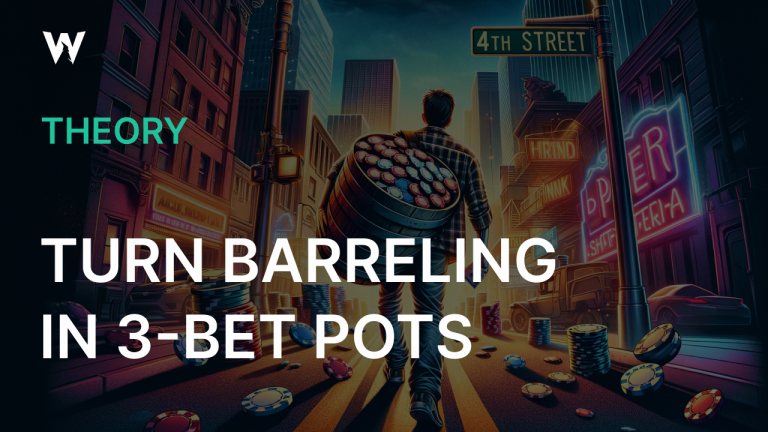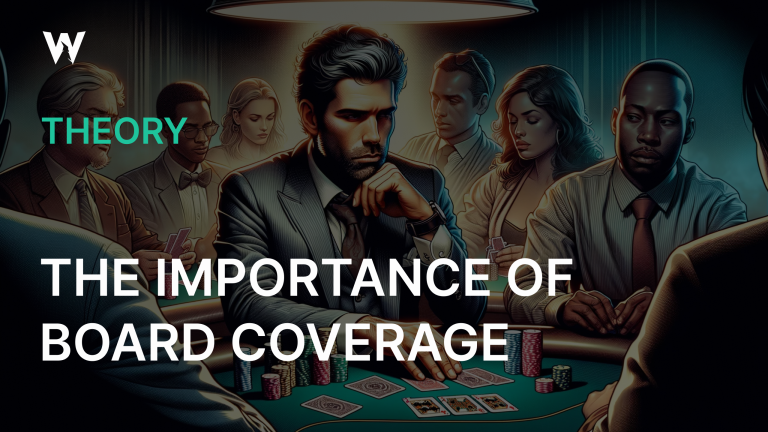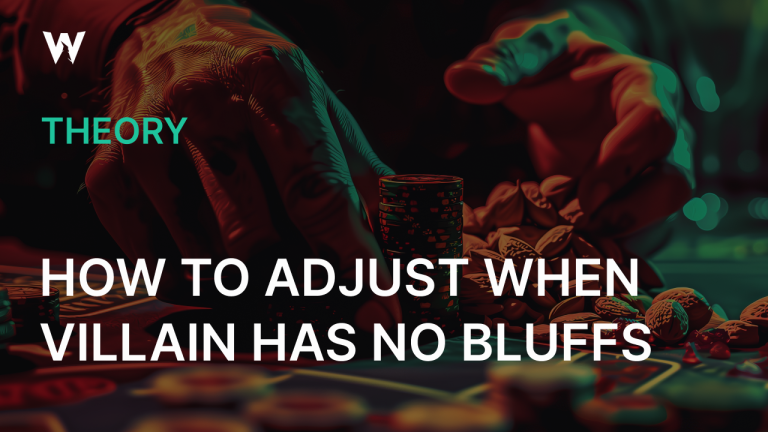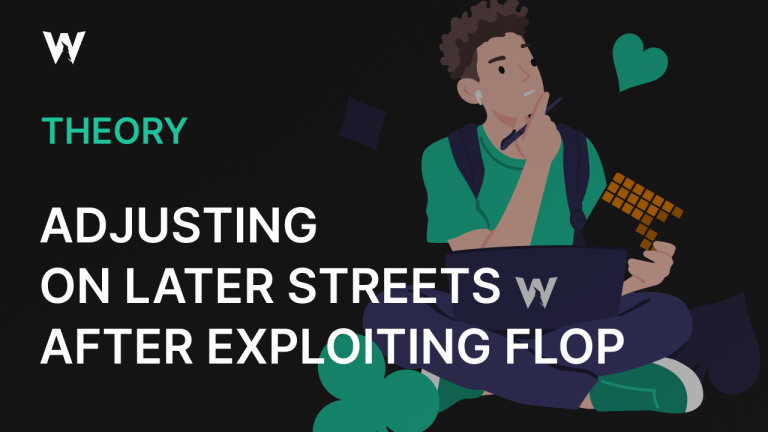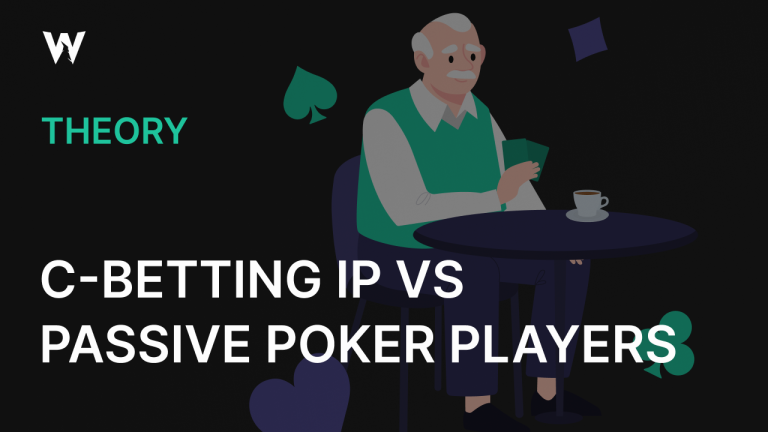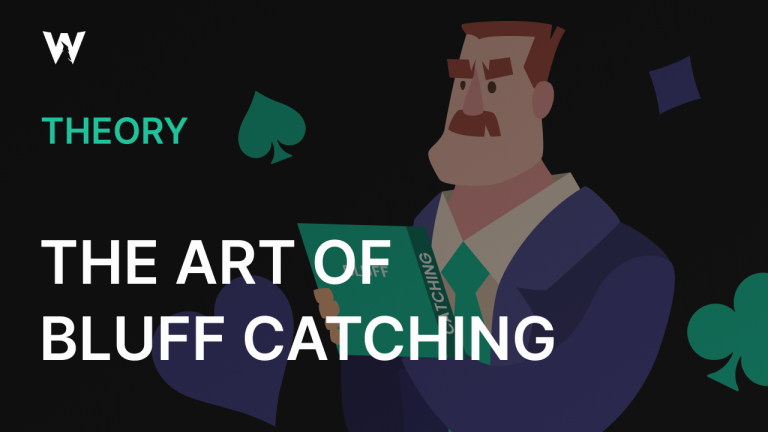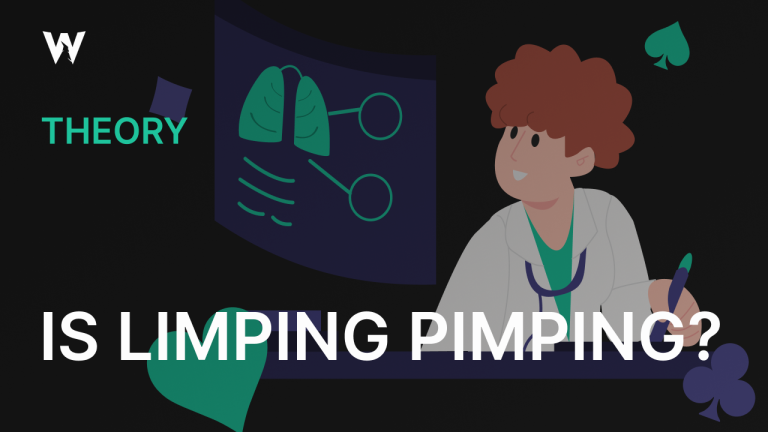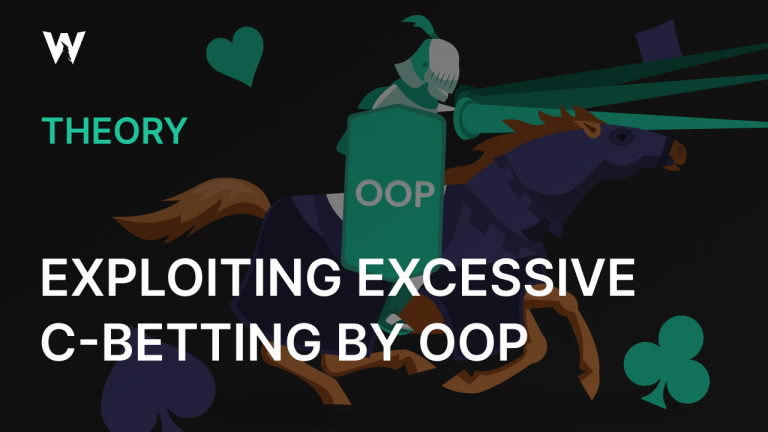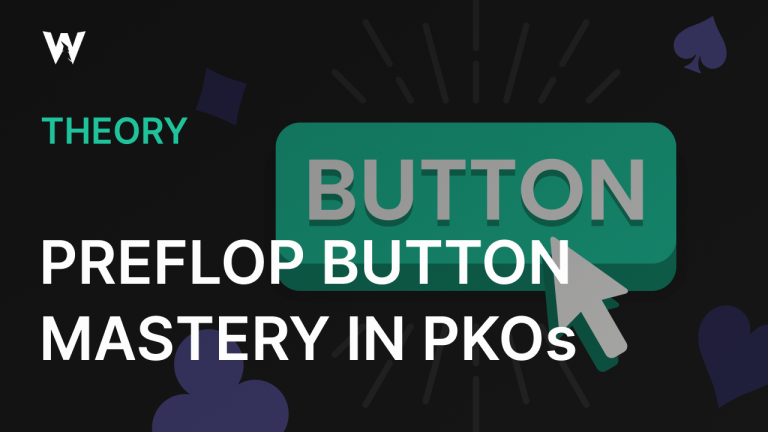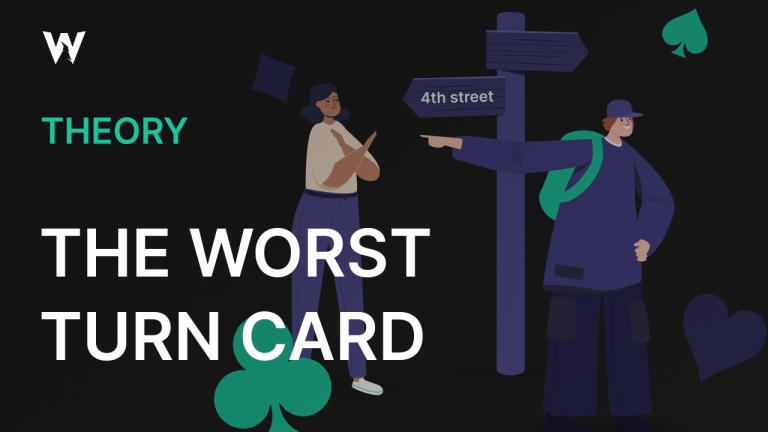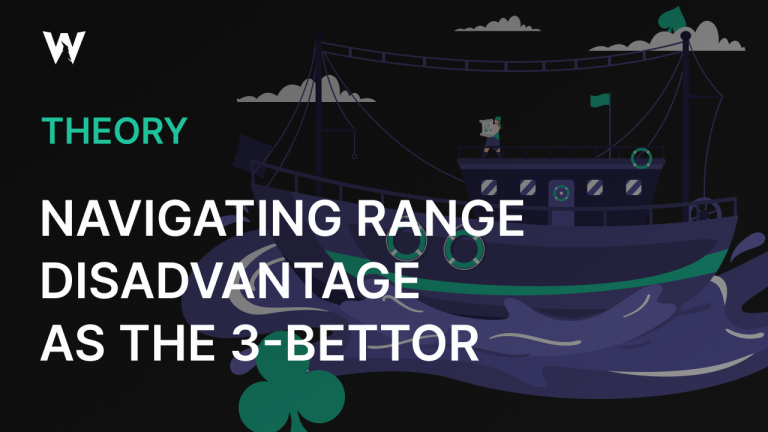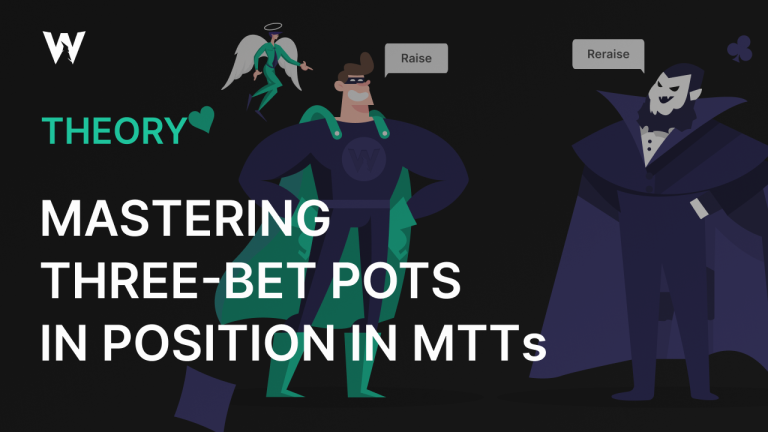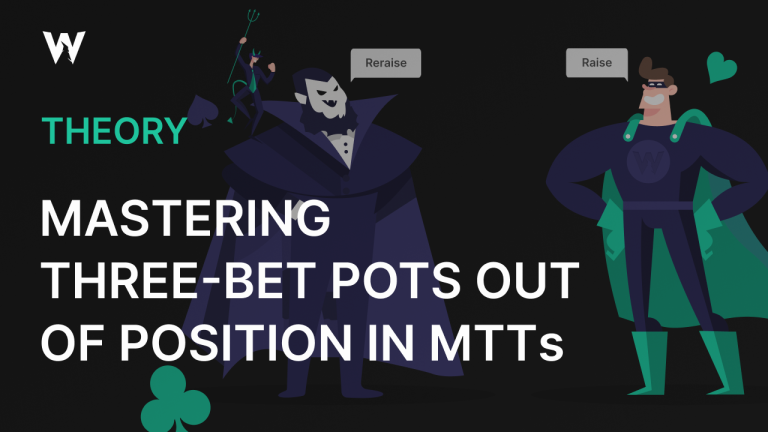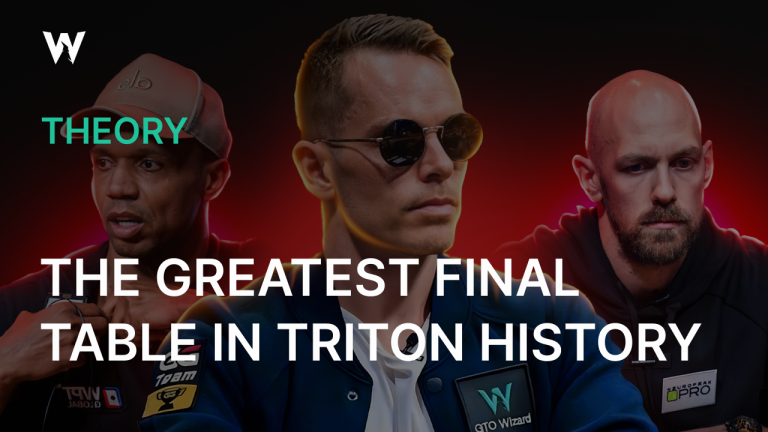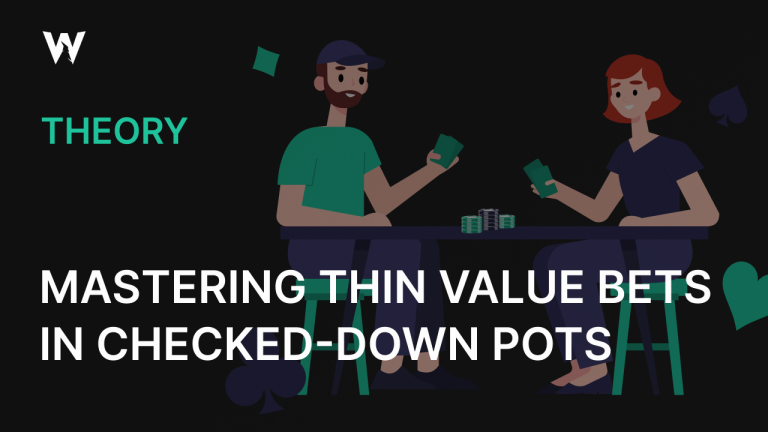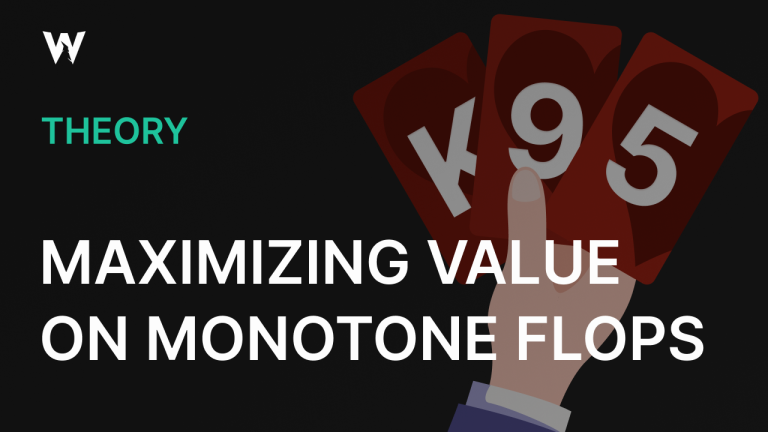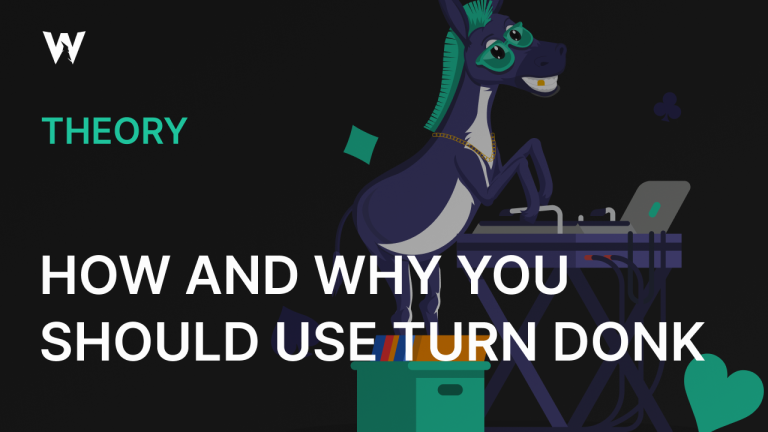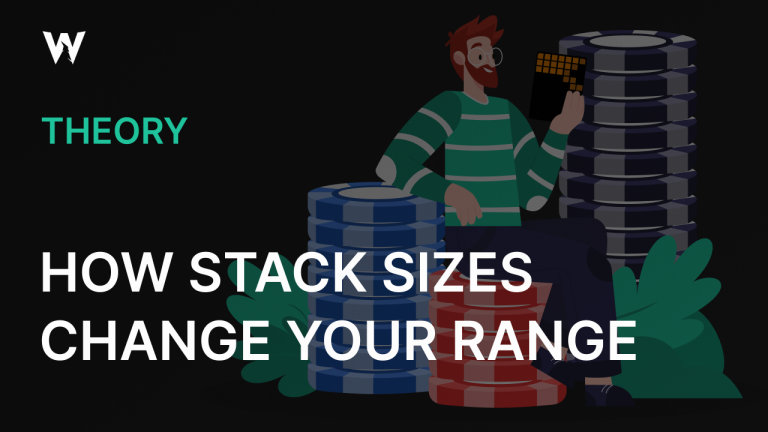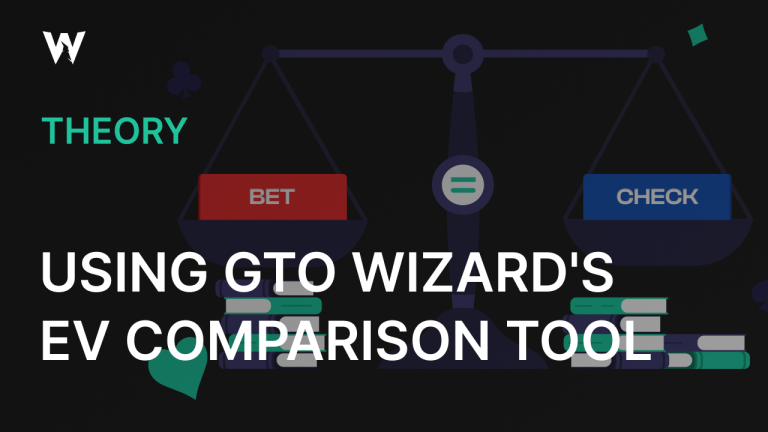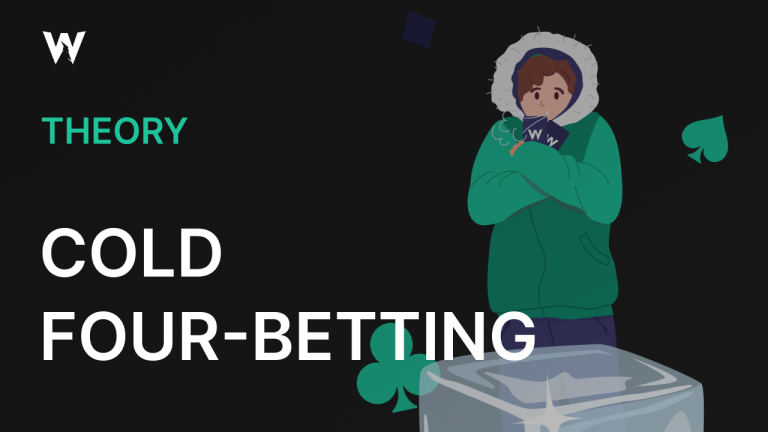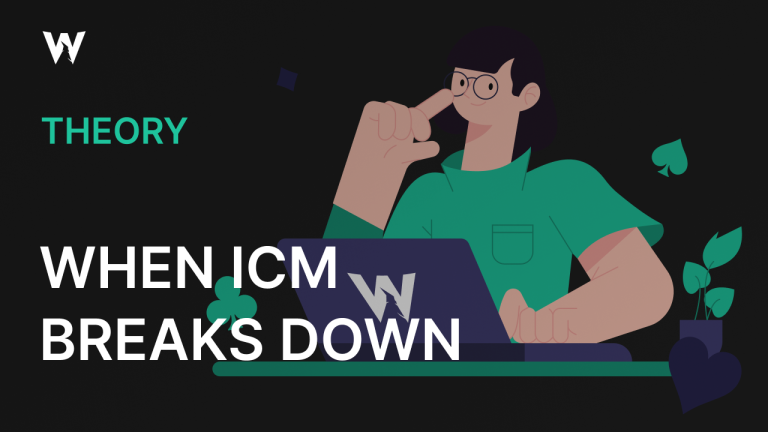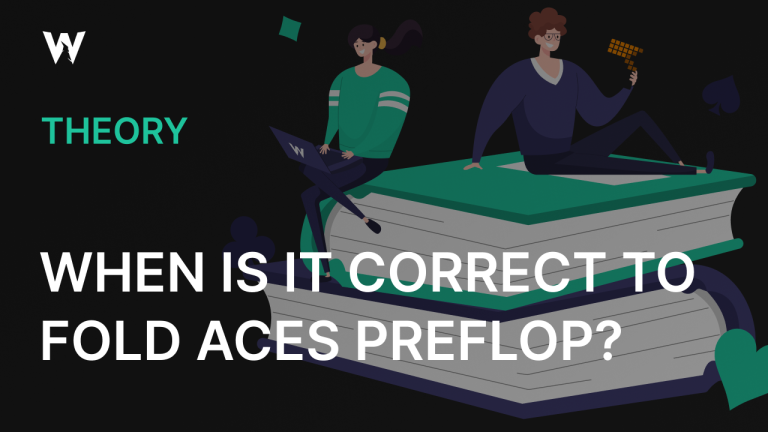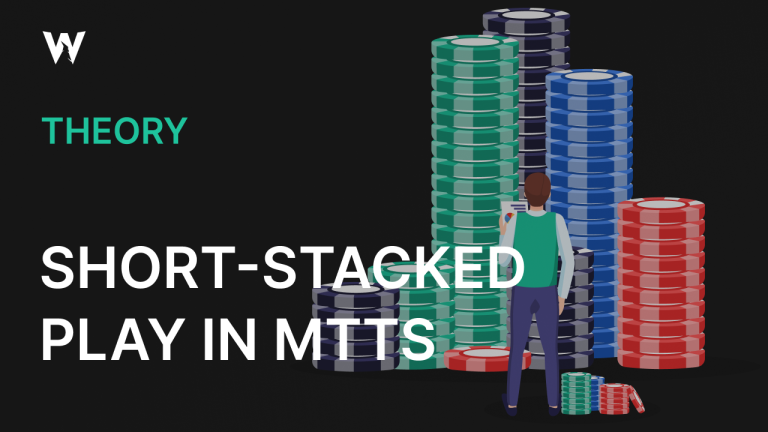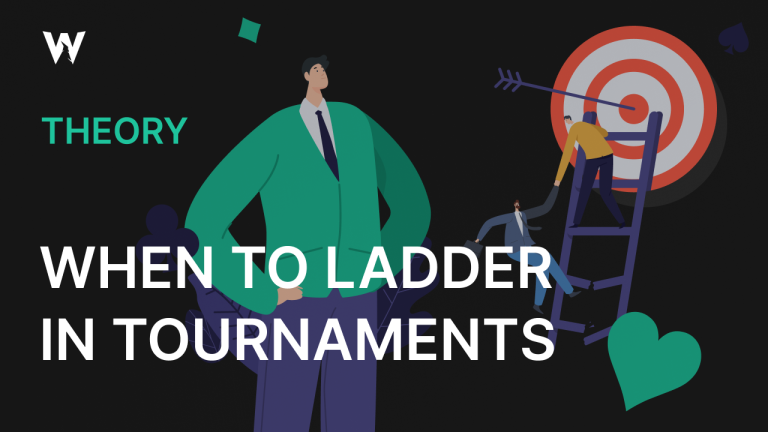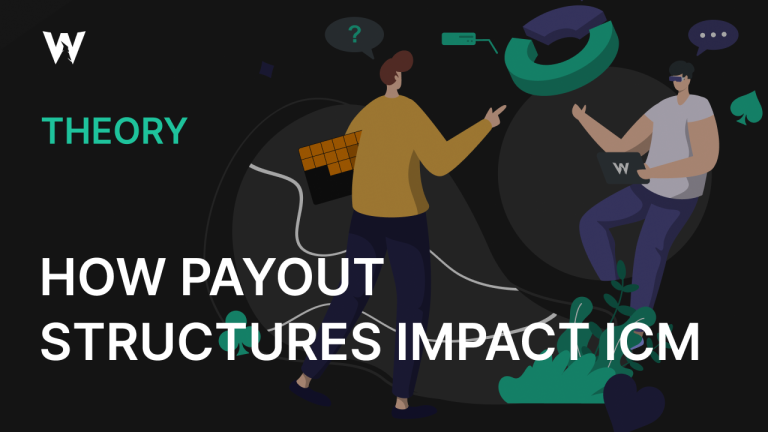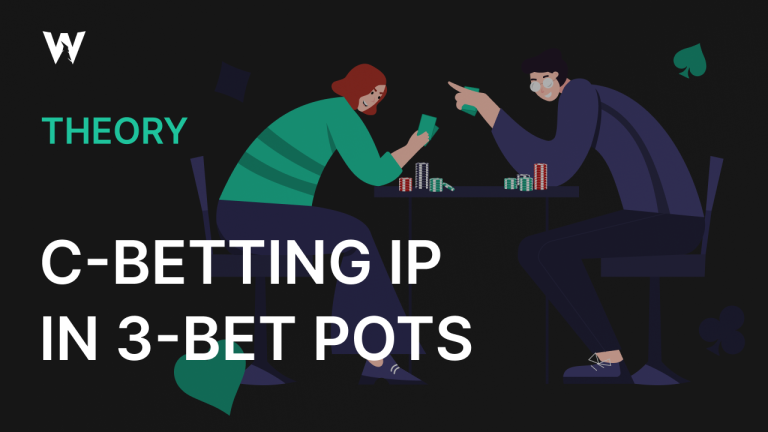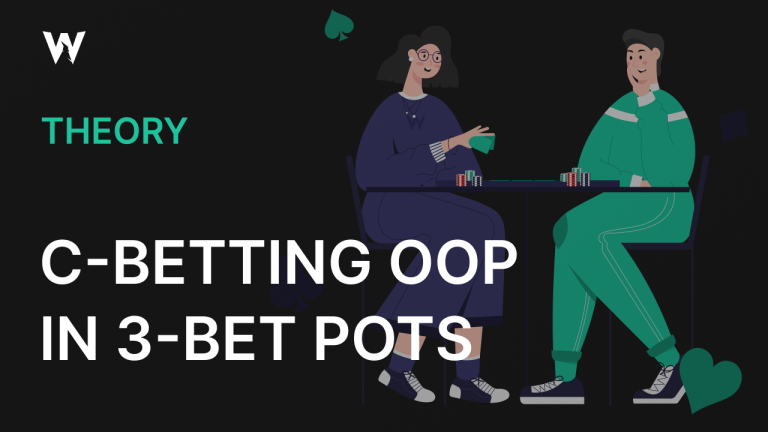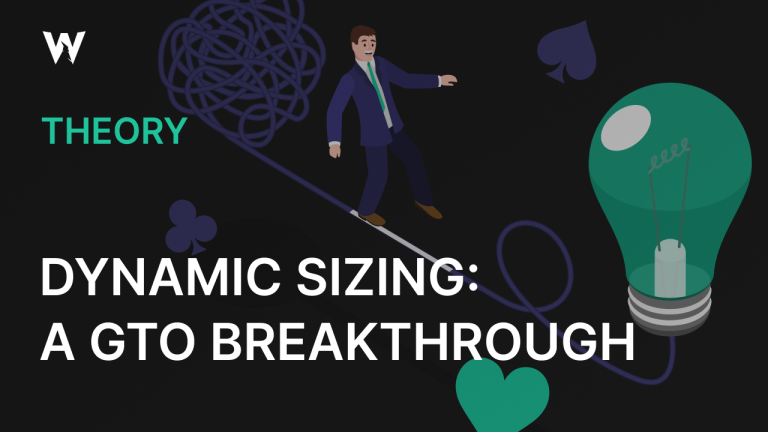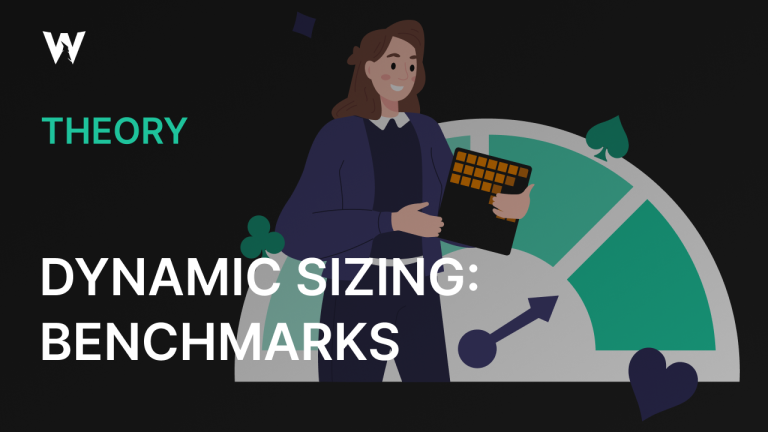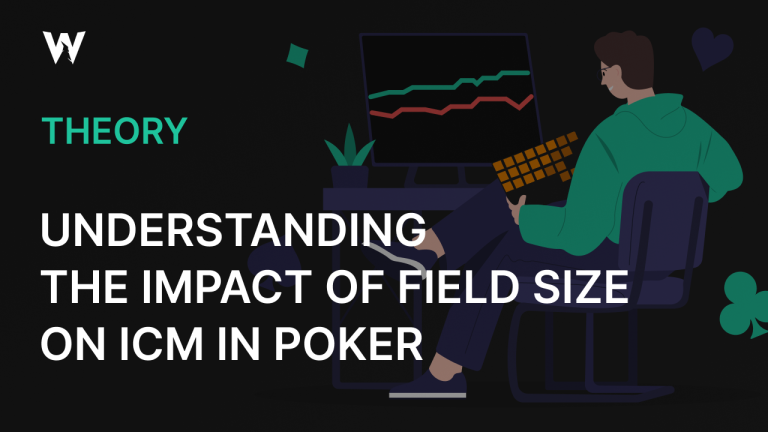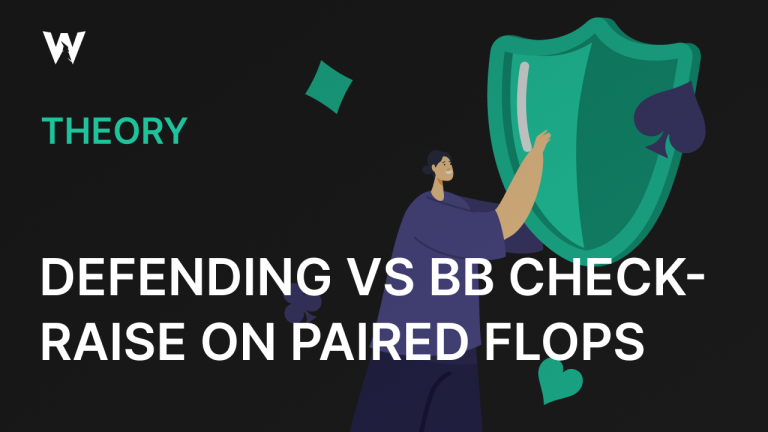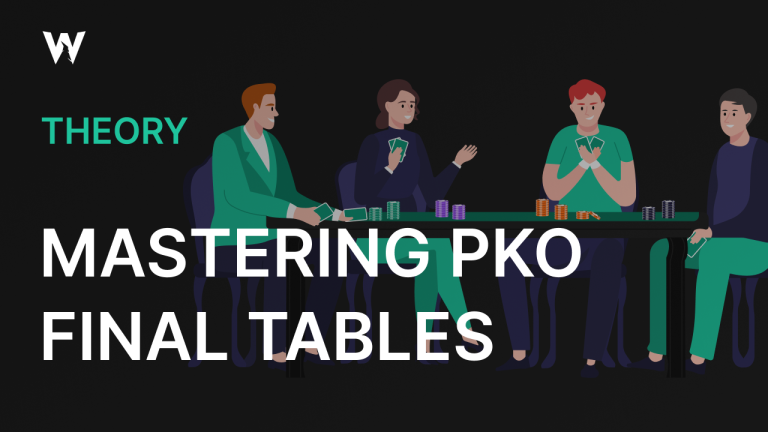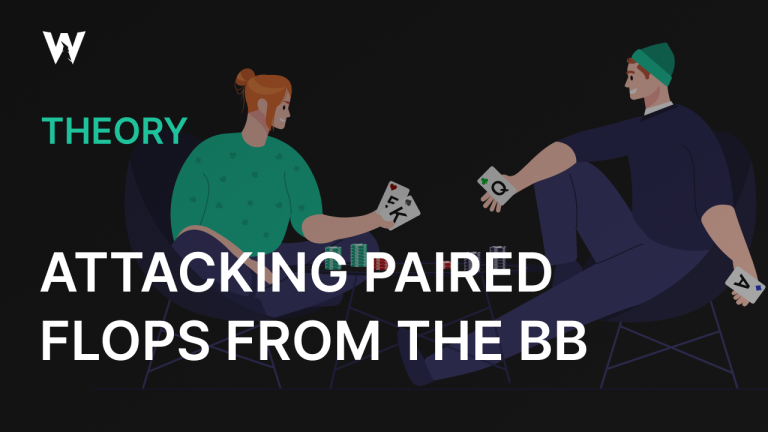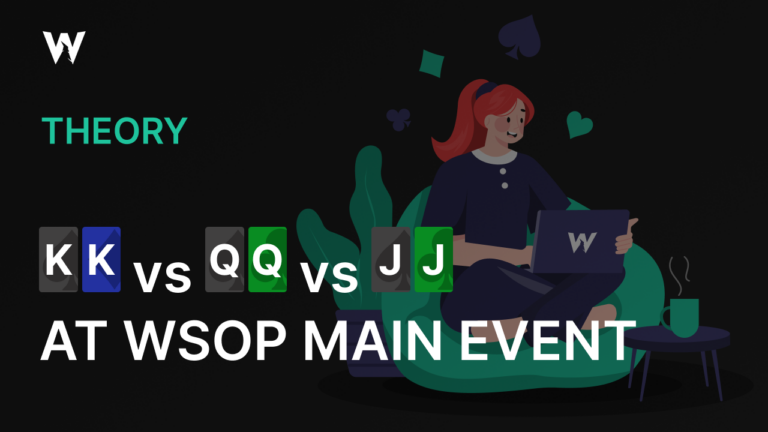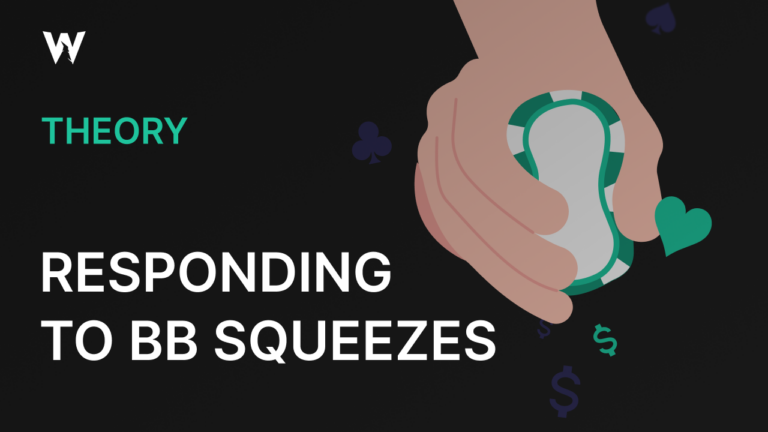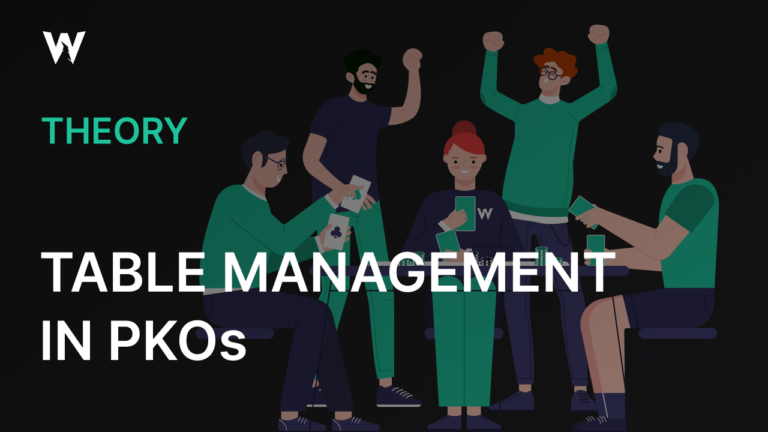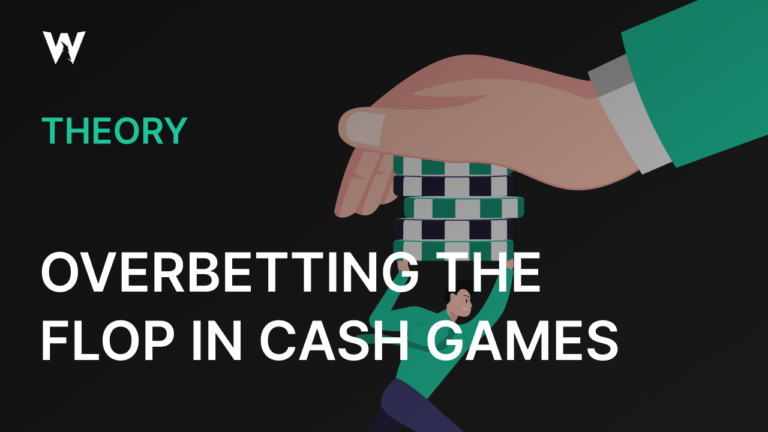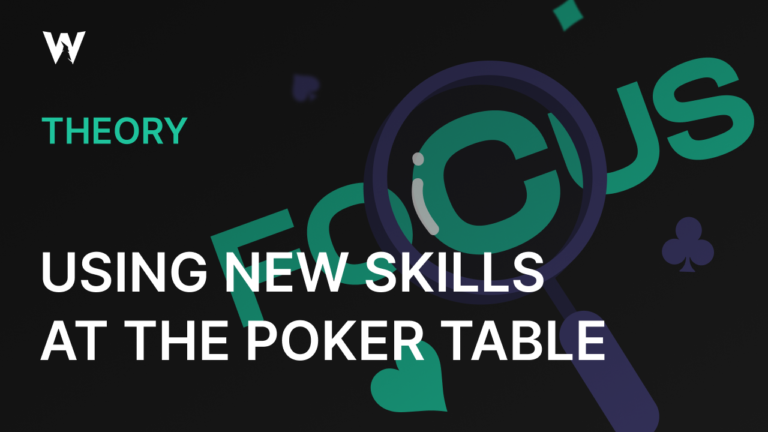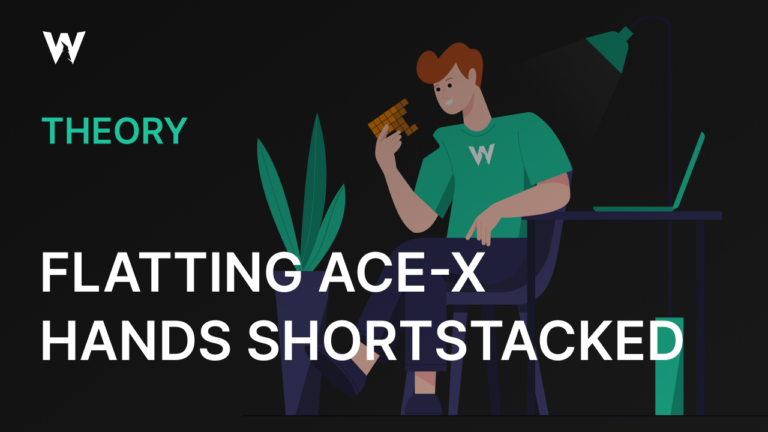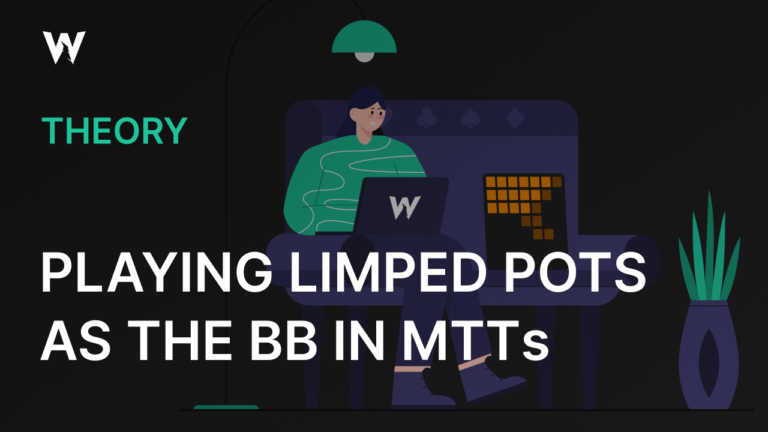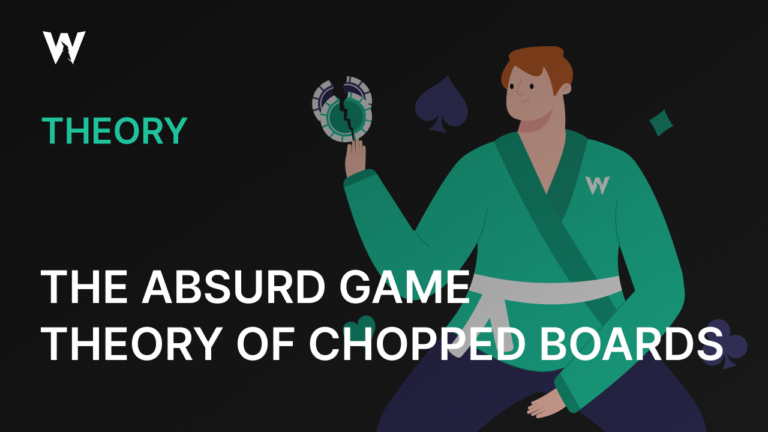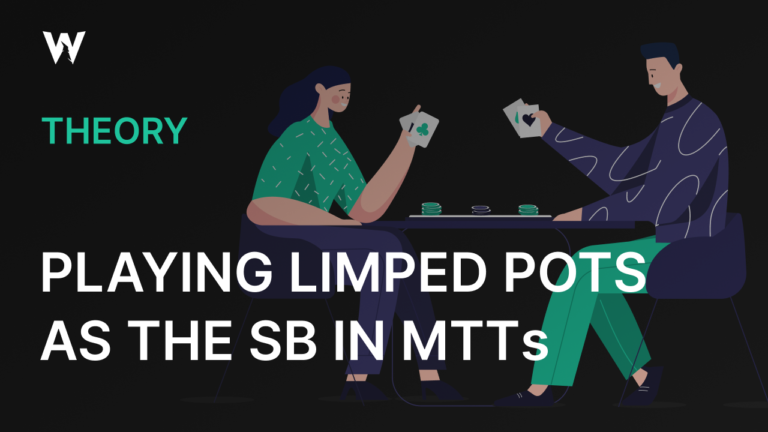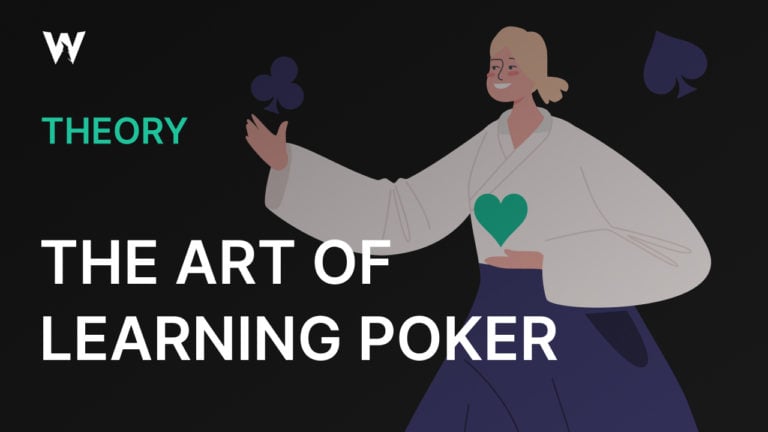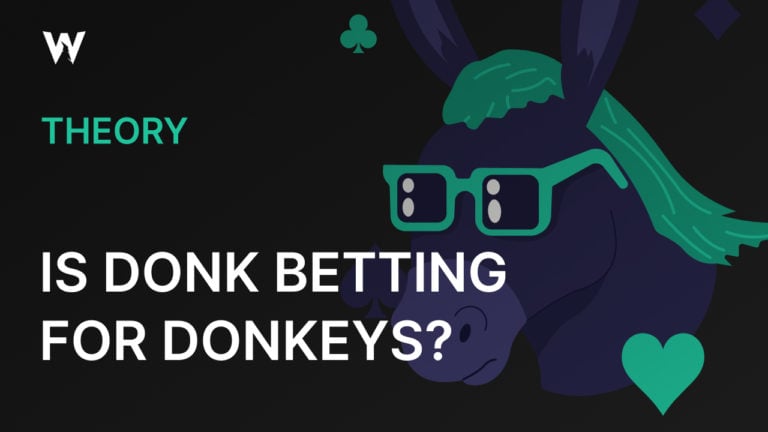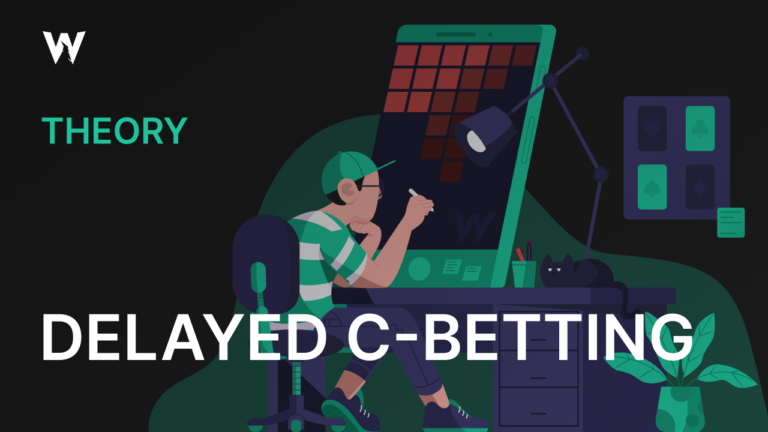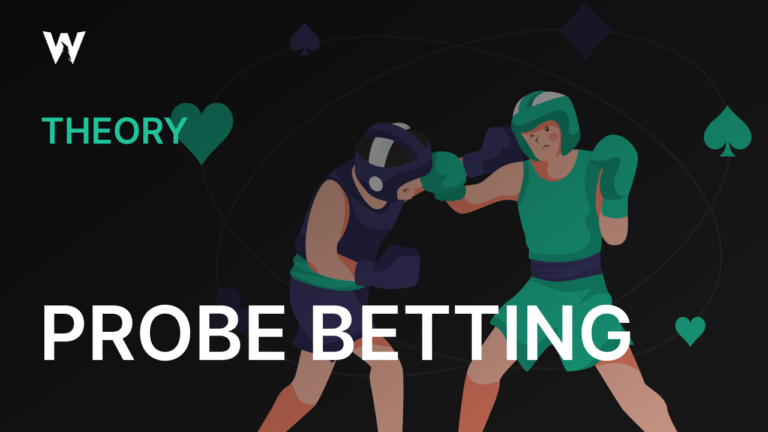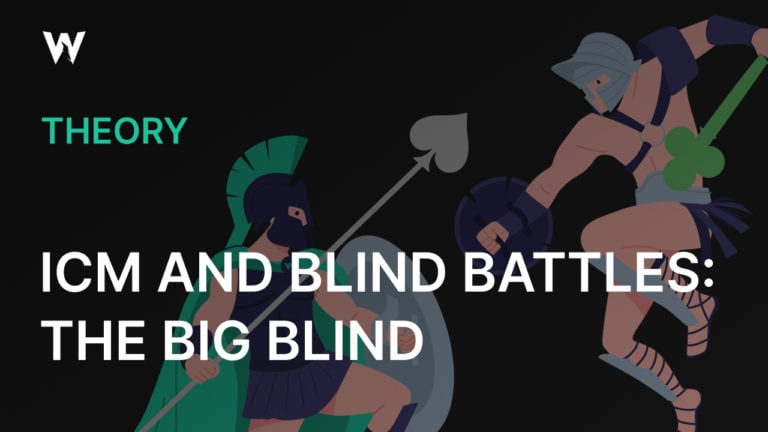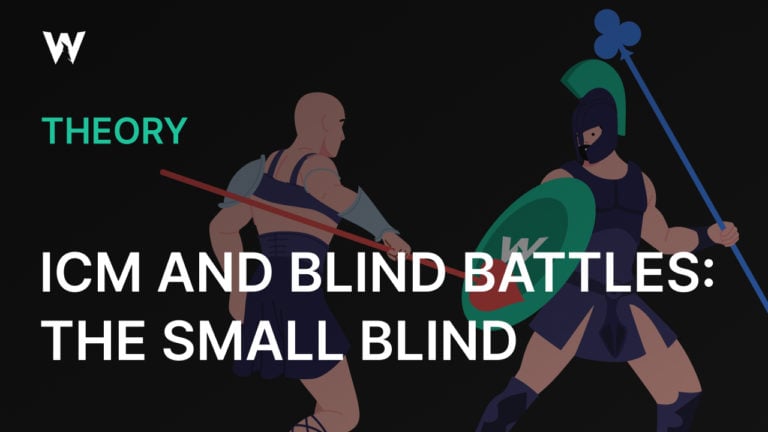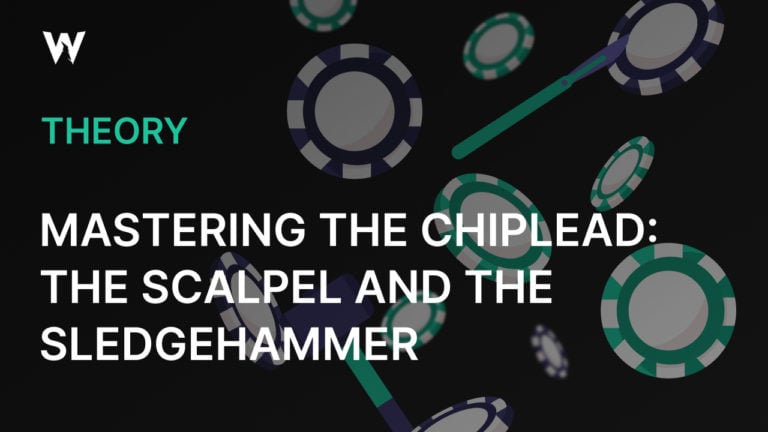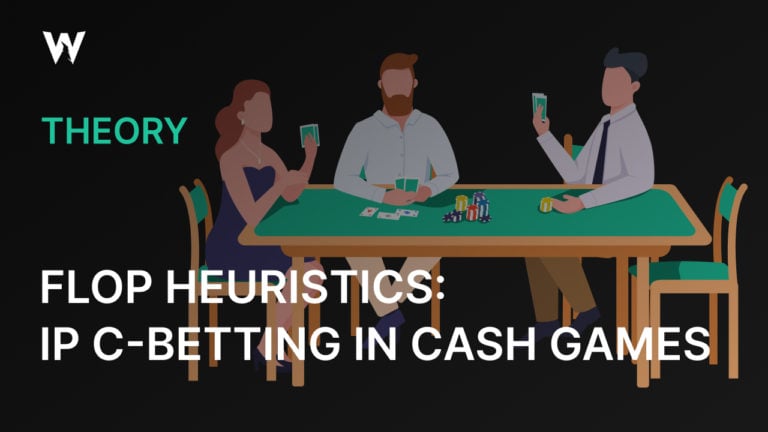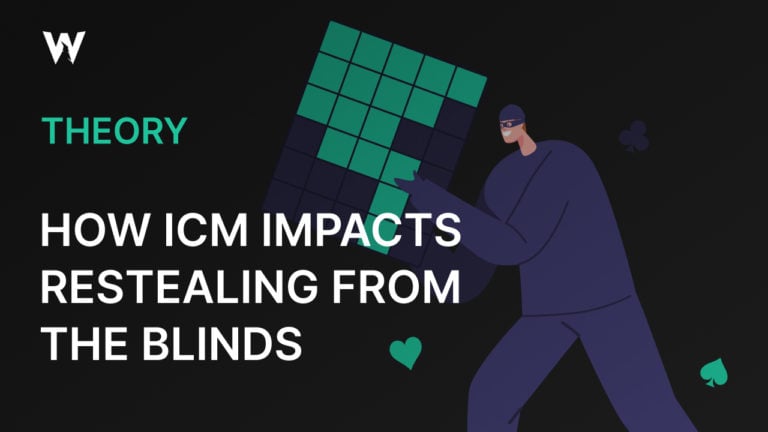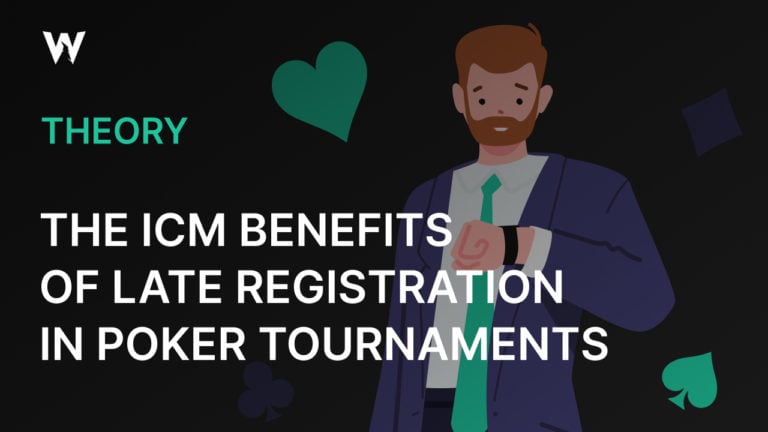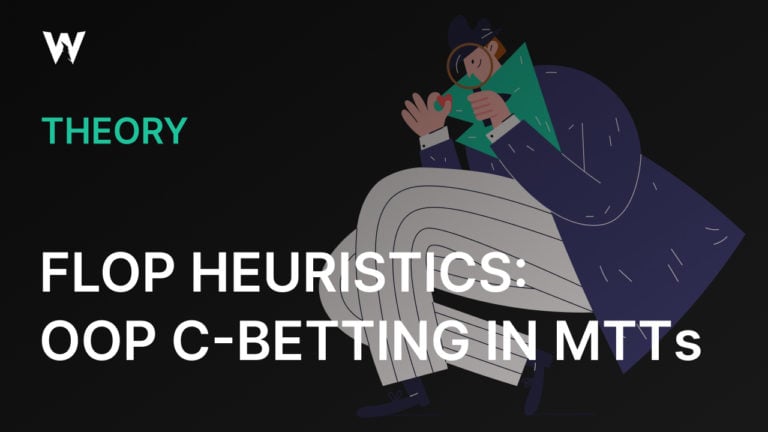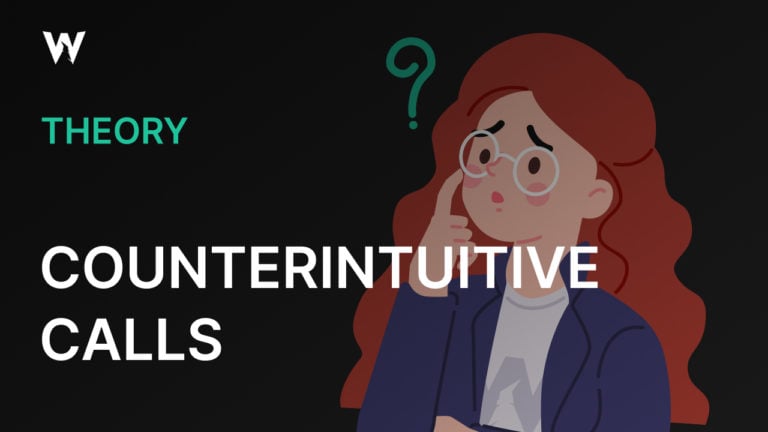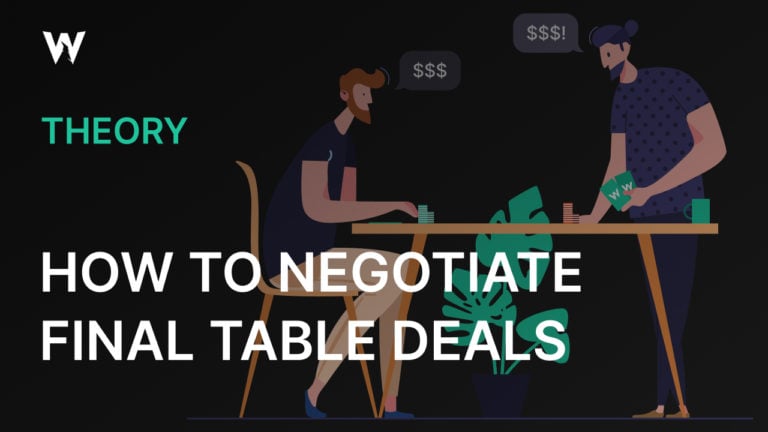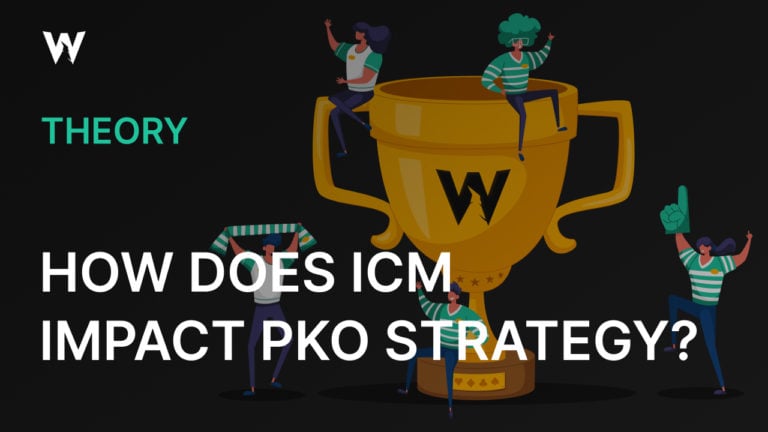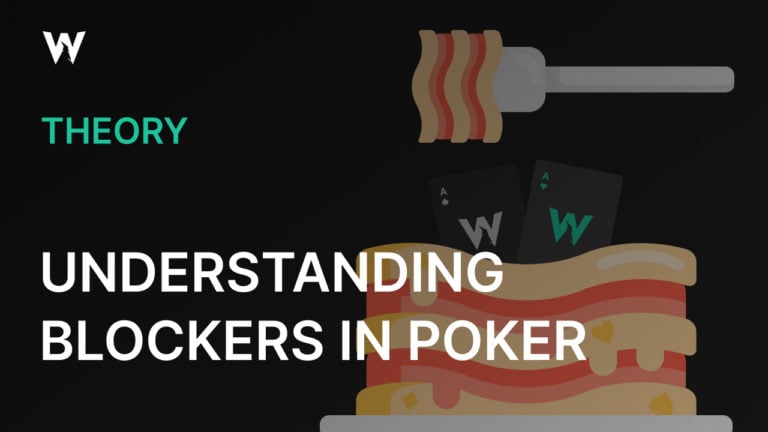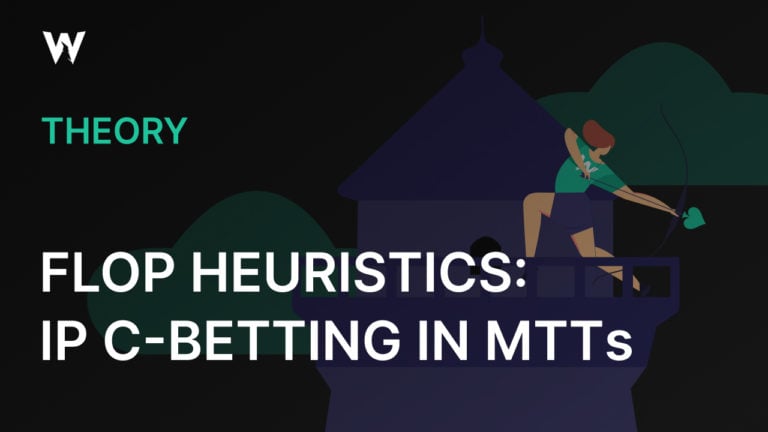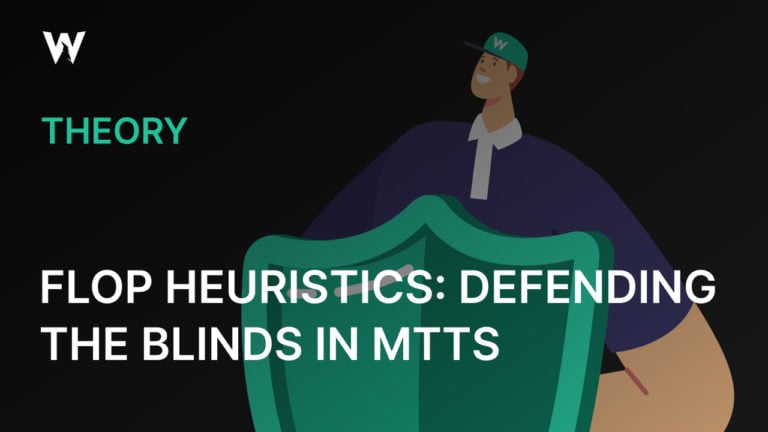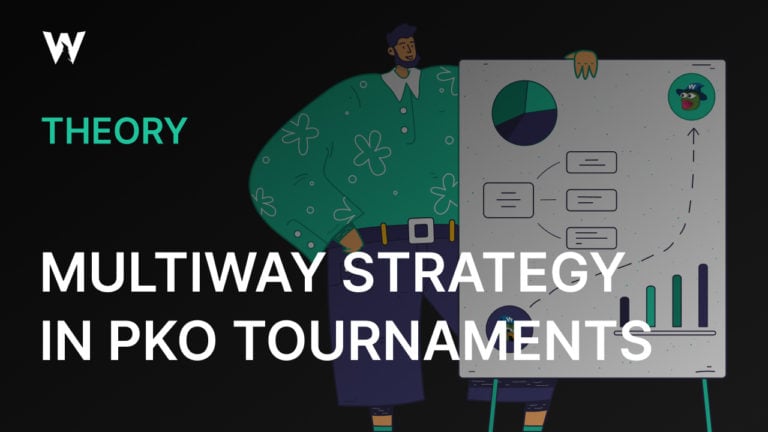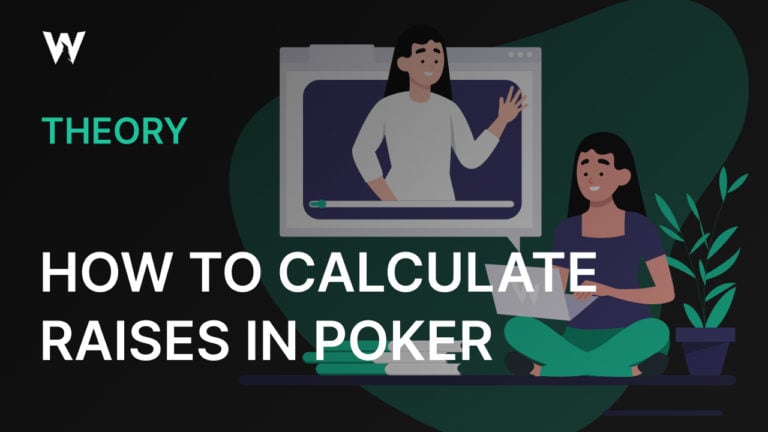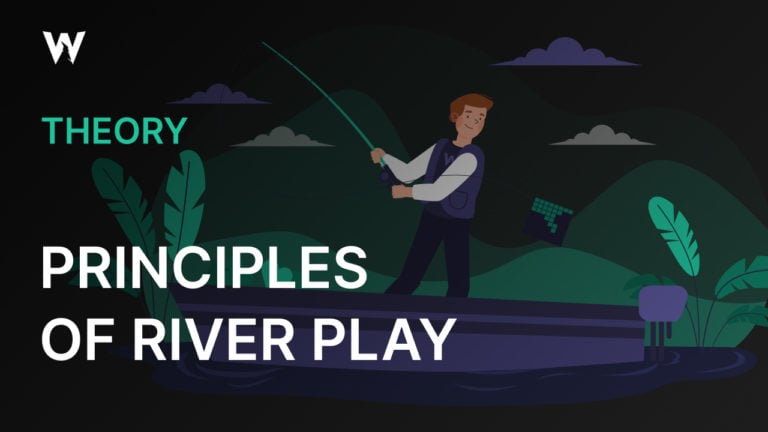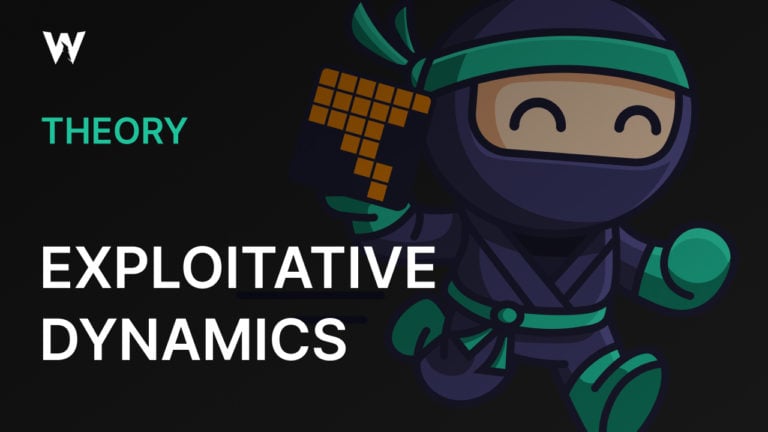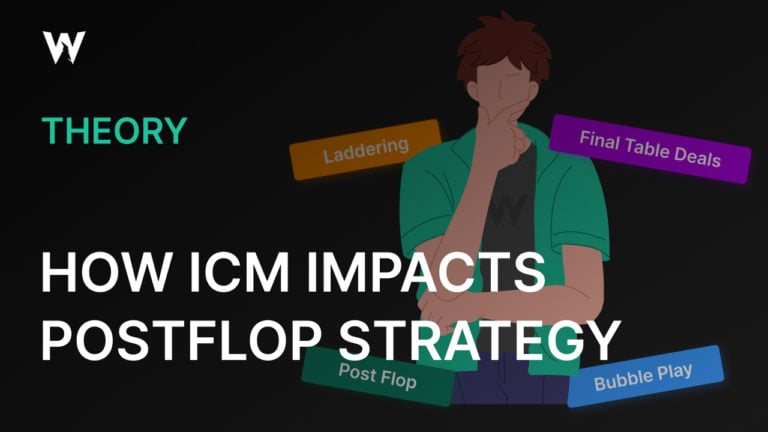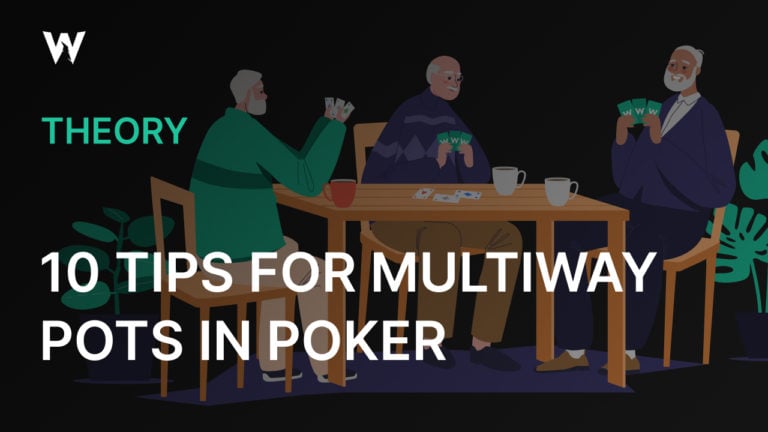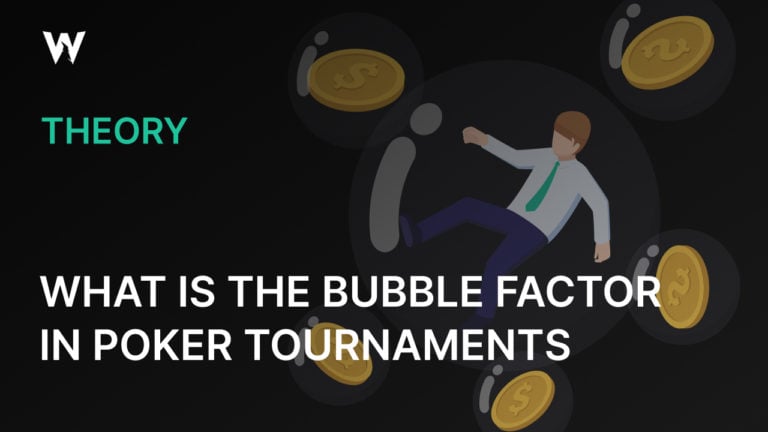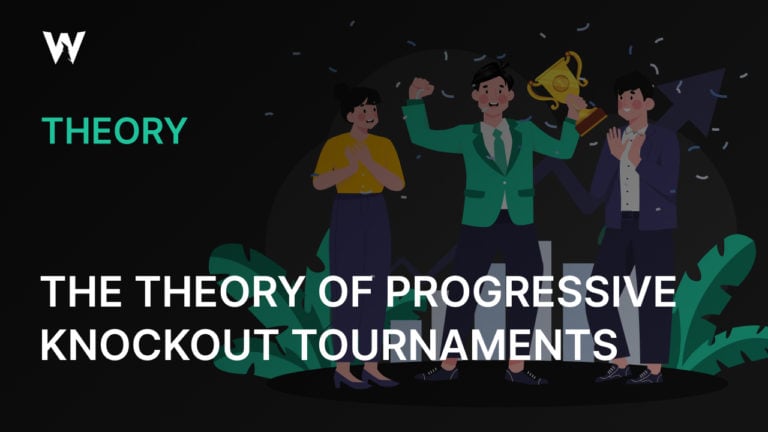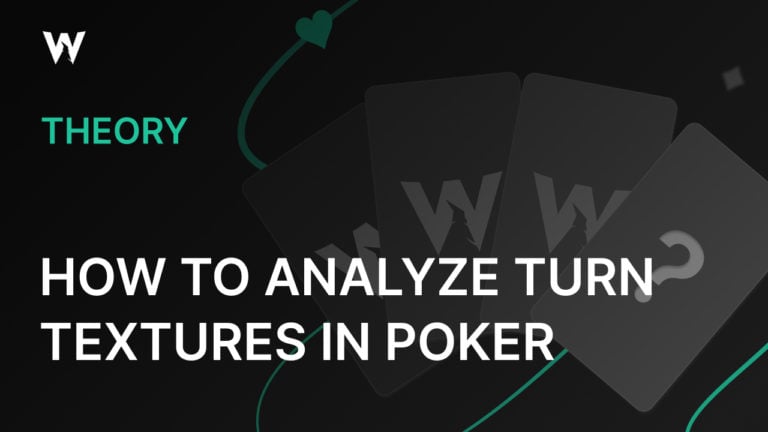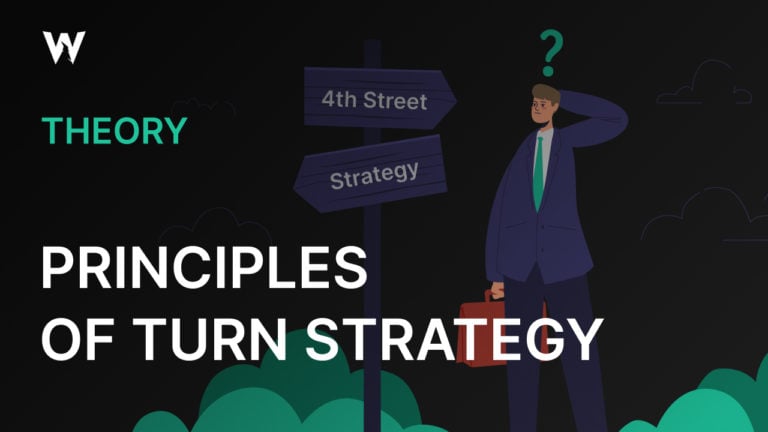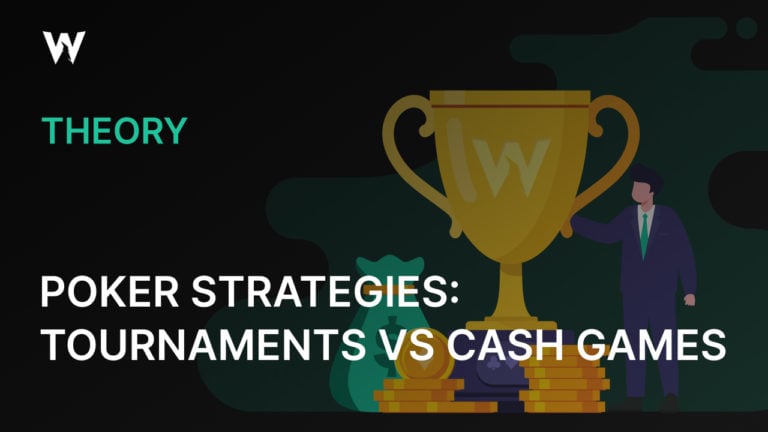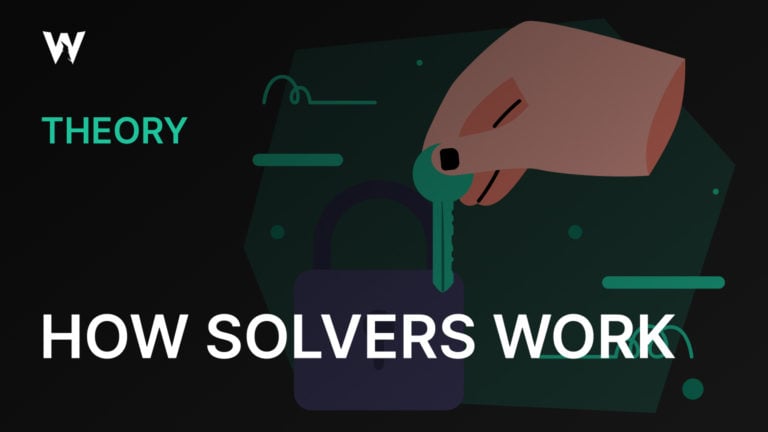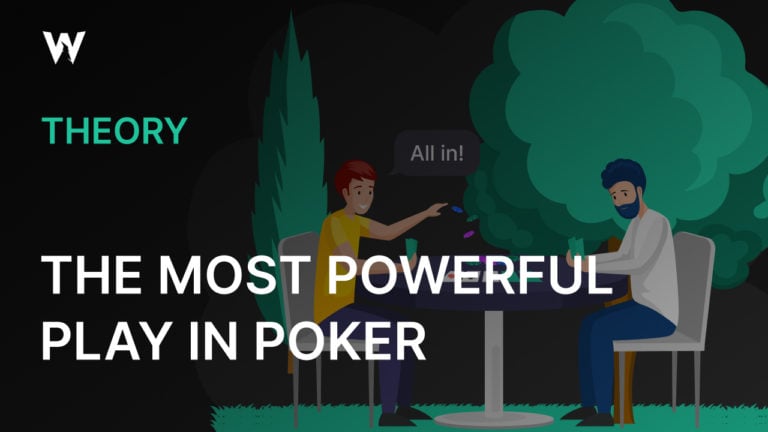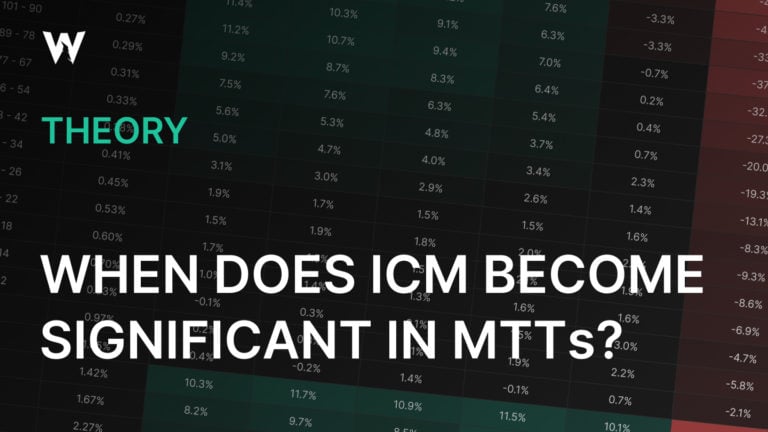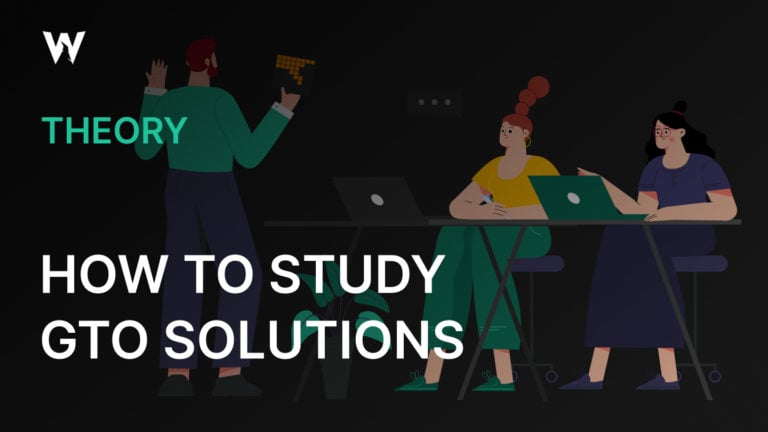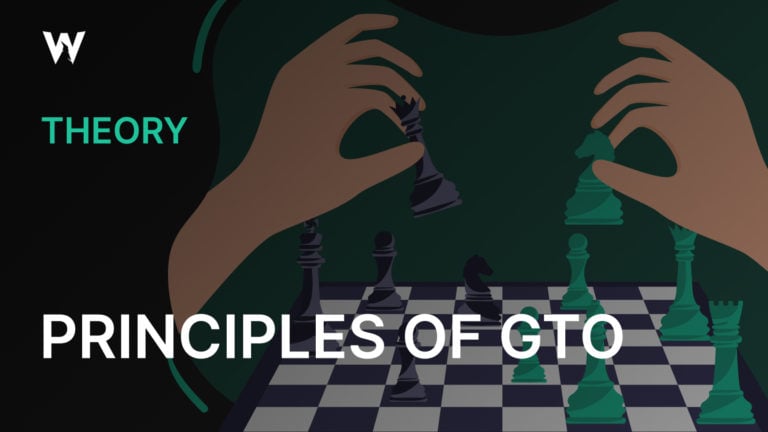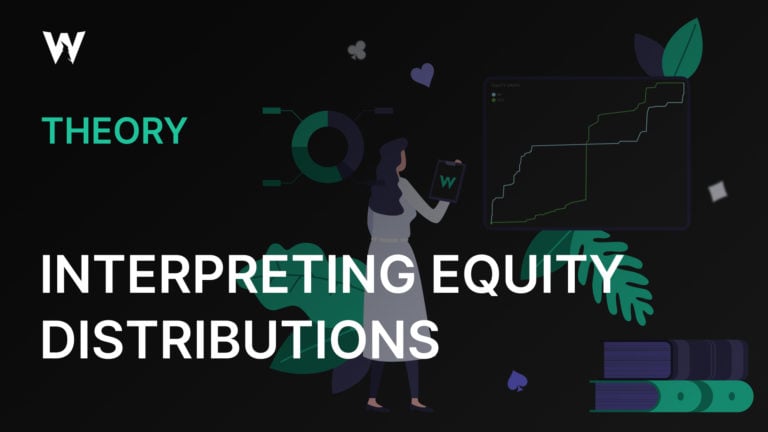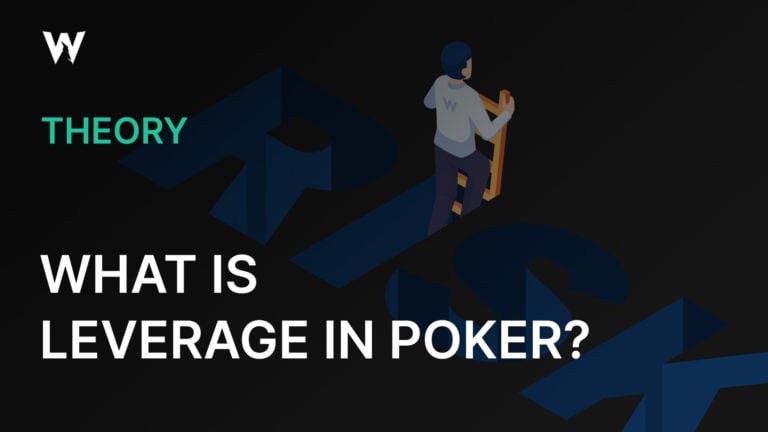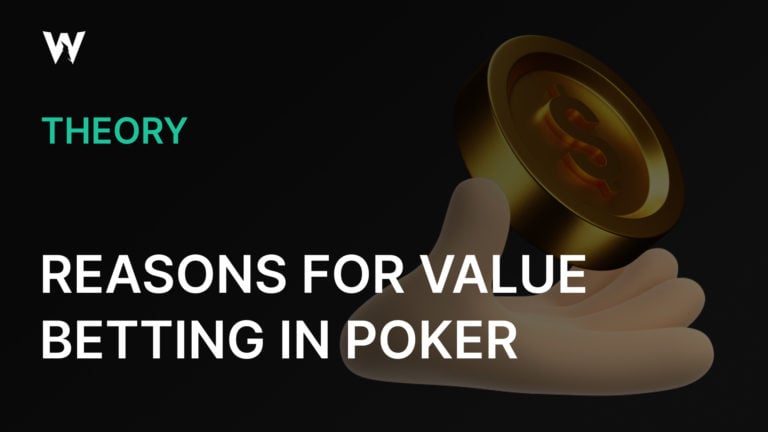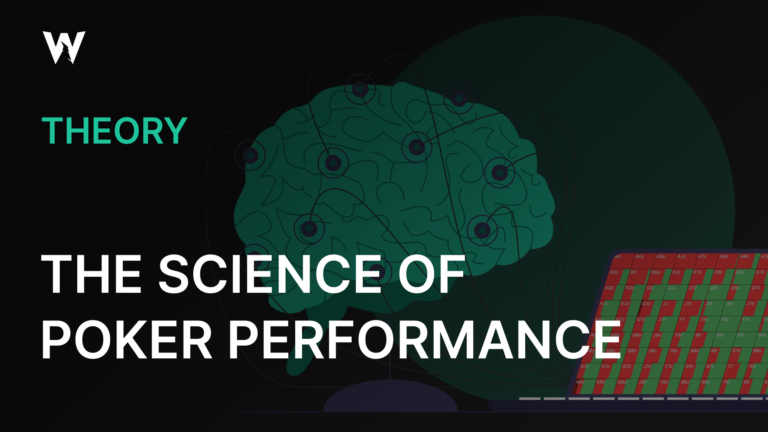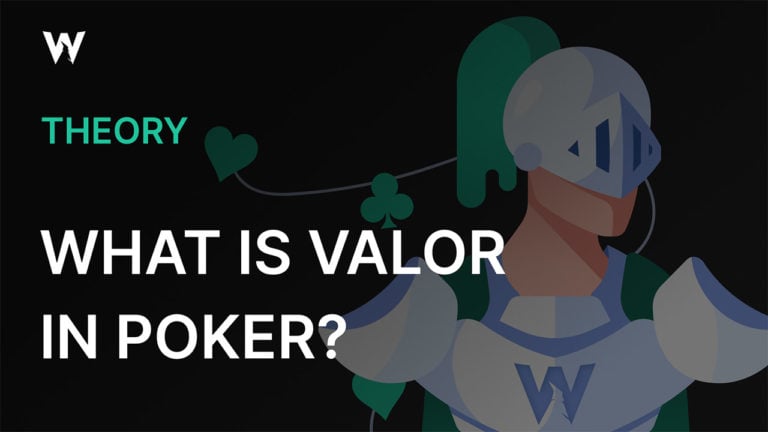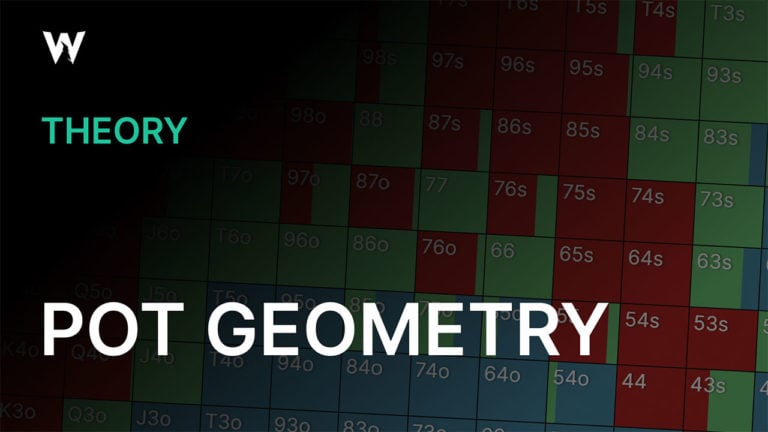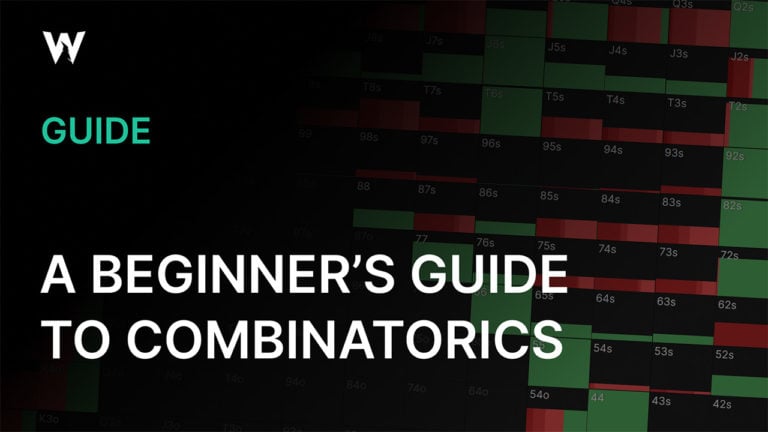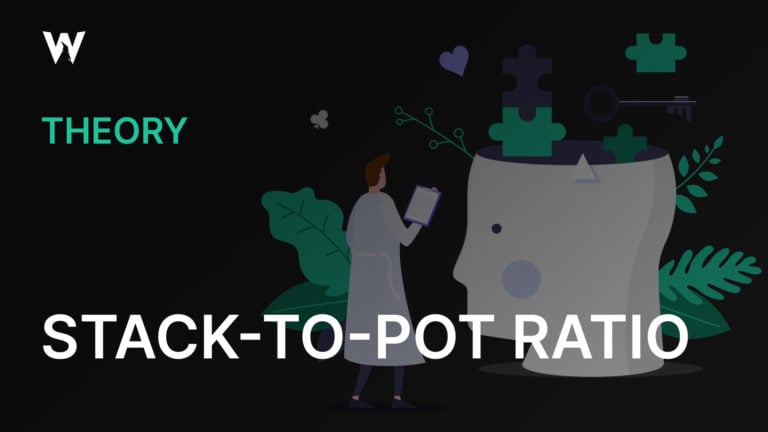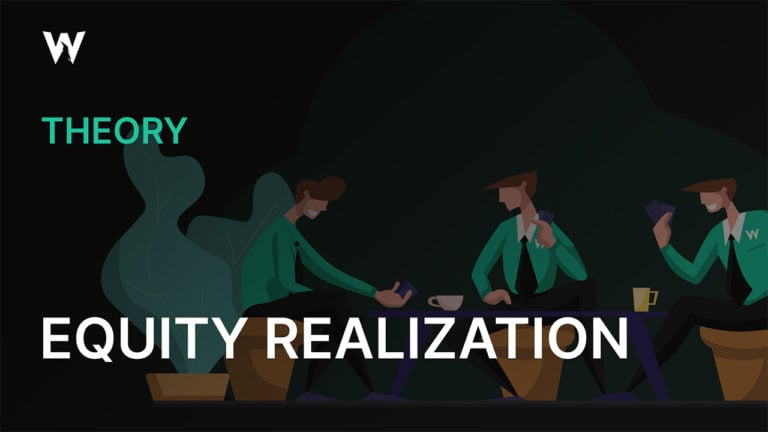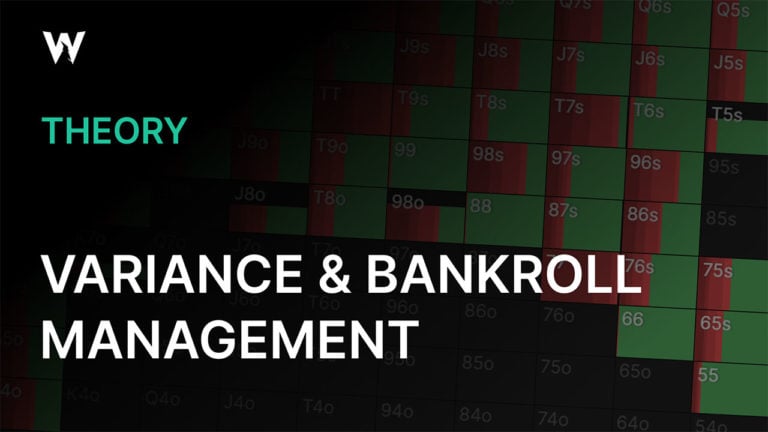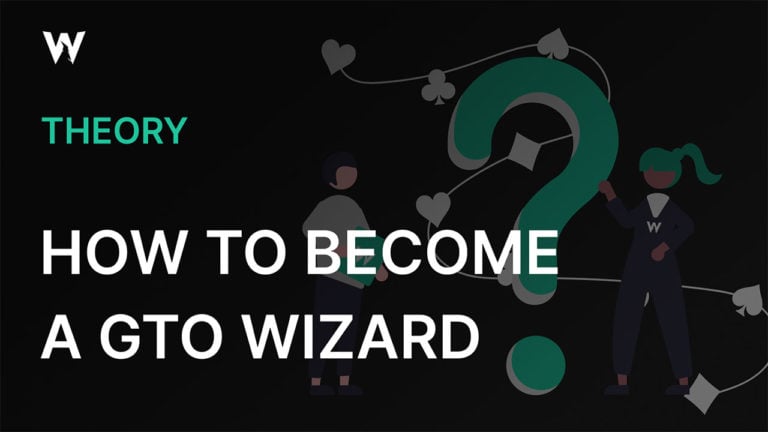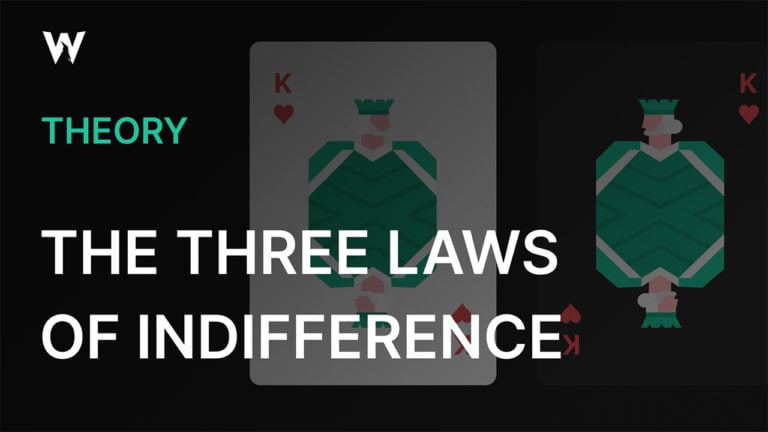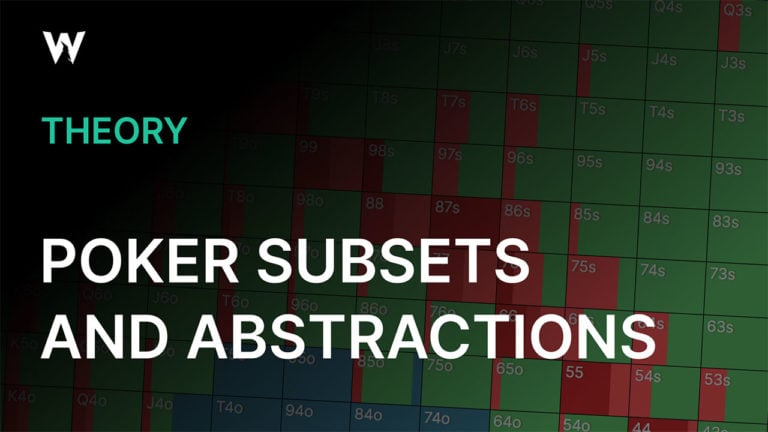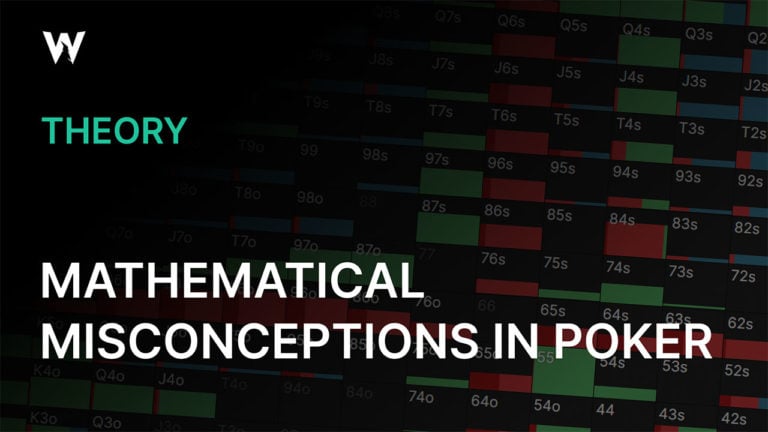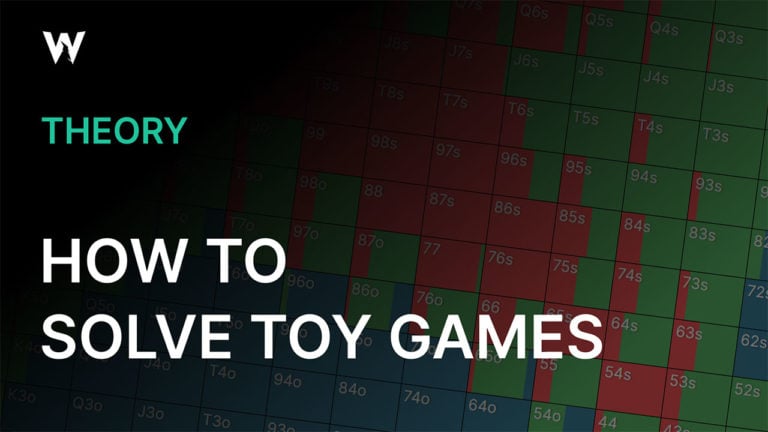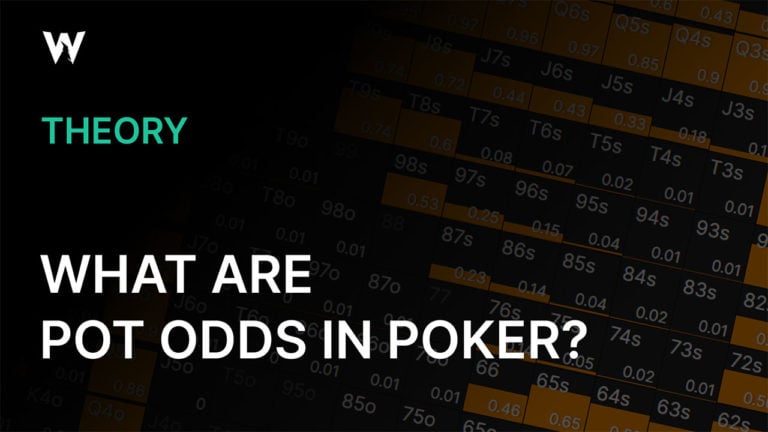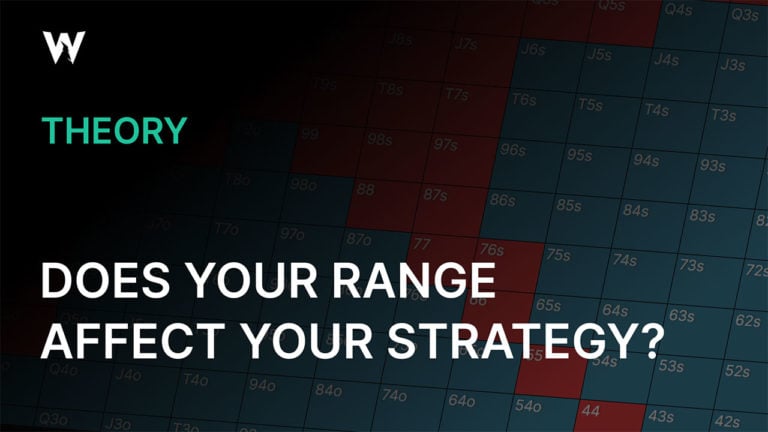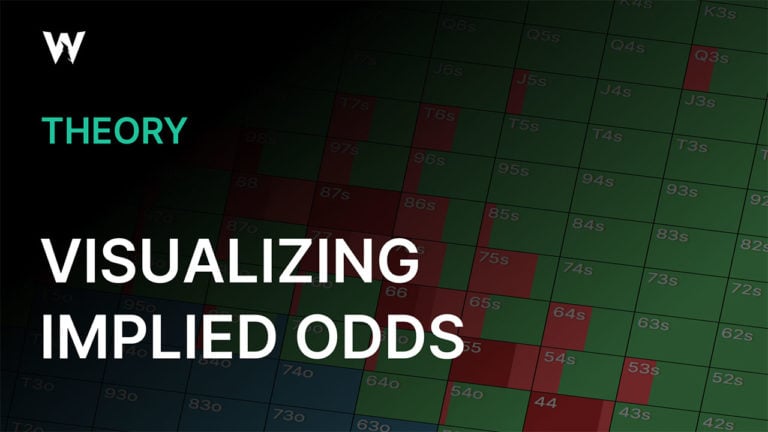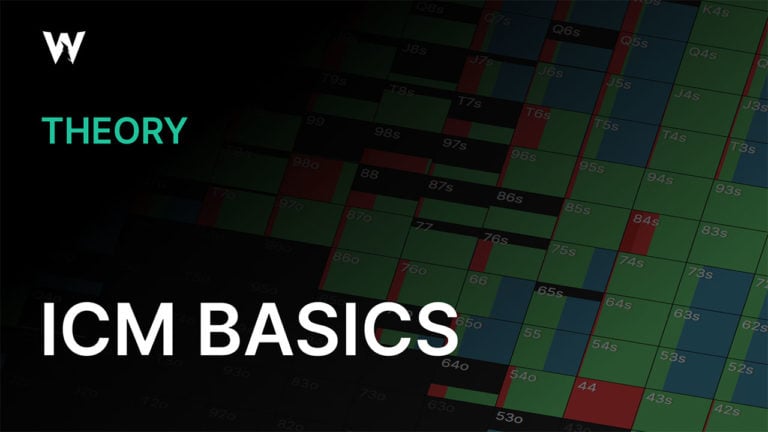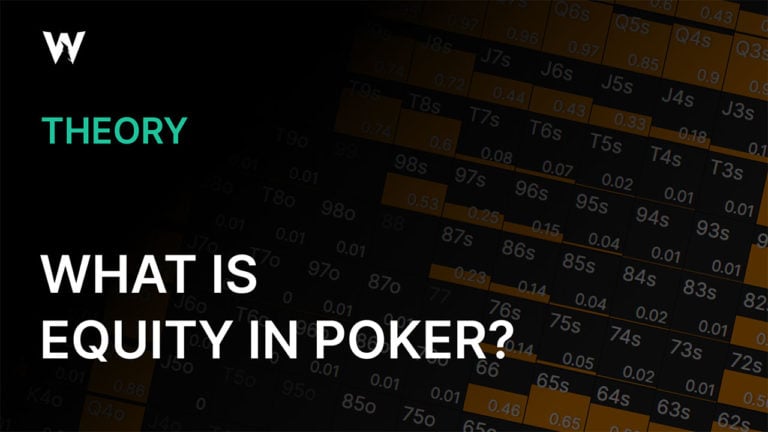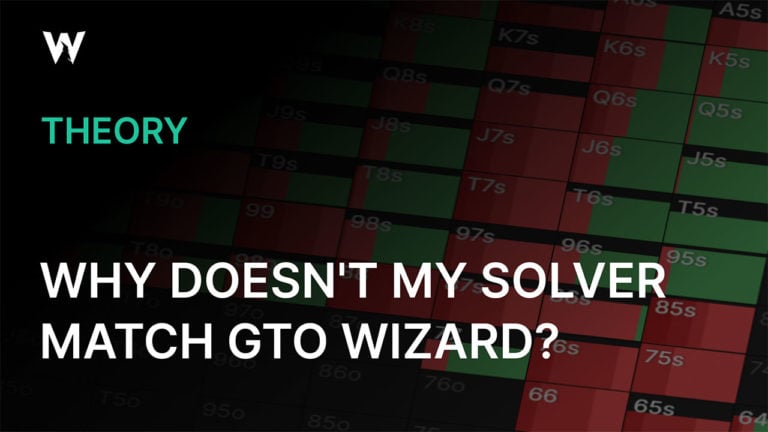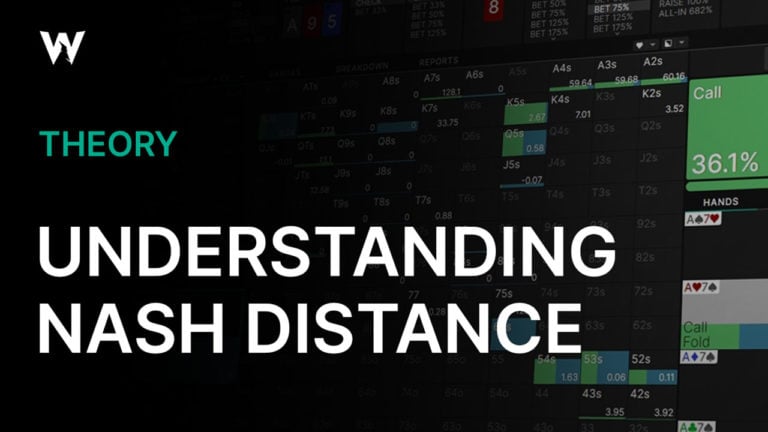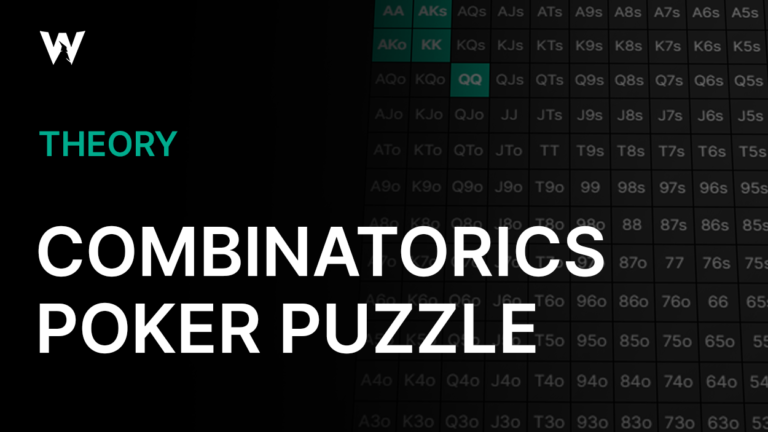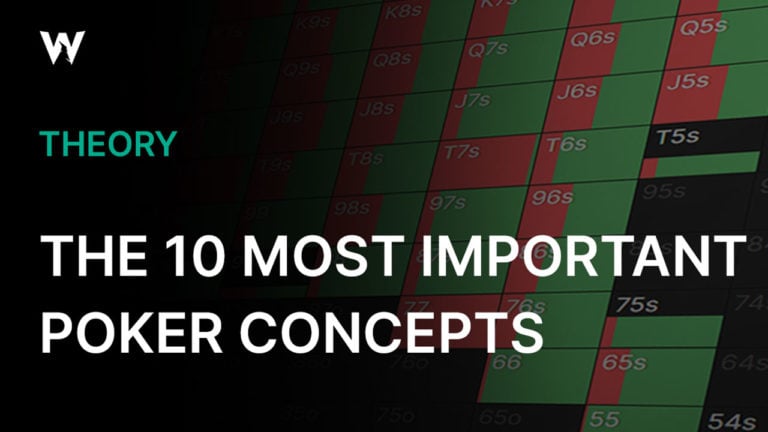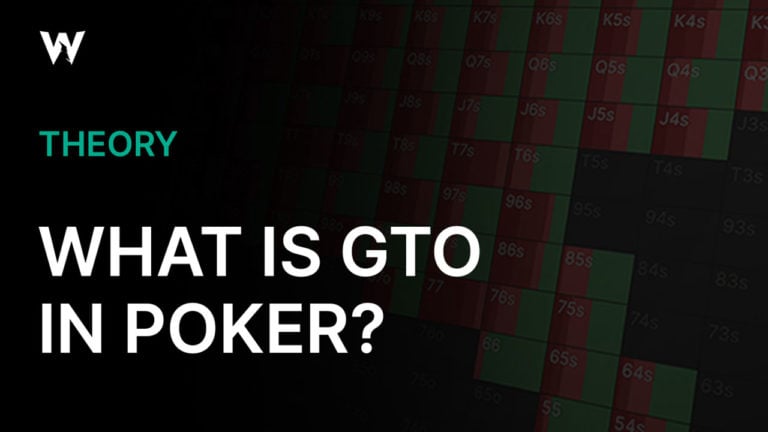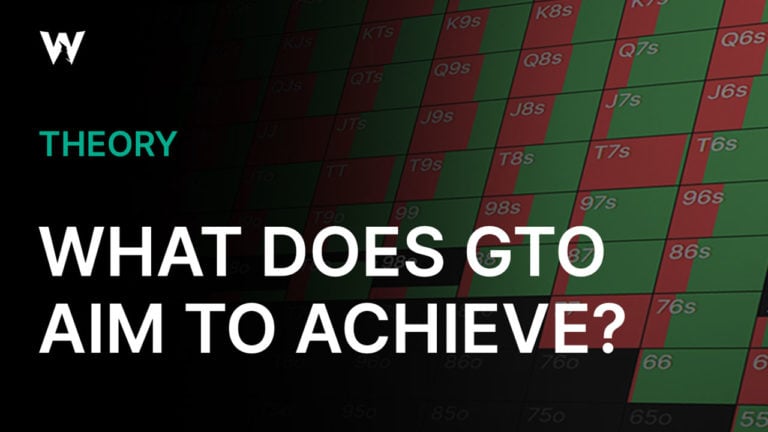The 5 Levels of Trainer Mastery for MTTs
Studying poker can be a challenge to both new and seasoned players. Tournament poker, in particular, presents additional challenges to learning due to the extra moving parts that need to be accounted for and managed appropriately. From fluctuating stack depths to the varying stages of a tournament—giving rise to a spectrum of ICM implications—to the presence of bounties. Luckily, with GTO Wizard we have the tools available to improve our performance in each of these areas. Whether you’re just learning preflop ranges or are looking for advanced solutions to custom spots, this article is here to inspire and guide you through your MTT learning journey.
Before shooting out of the starting blocks into the trainer, let’s first discuss some ways on how to improve quickly at something.
Additional Principles of Fast and Effective Learning
In our original 5 Levels of Trainer Mastery article, we looked at four principles of fast and effective learning:
- Training Difficulty Should Suit Current Abilities
- Focus on One Spot at a Time, but Aim to Cover All Spots
- Create a Routine
- Set Goals and Track Progress
Below are four additional principles to consider when learning tournament poker.
Approach Spots With an Inquisitive Mindset
The key to learning any new skill is to approach it with an open mind. When we apply this to learning tournament poker this means searching for the bigger picture as opposed to a particular outcome. Whether we are studying a specific solution, or completing a drill we should always be looking at how we can make changes to improve, as opposed to looking to justify our current approach to the game.
Recommended Resource:
Below are four additional principles to consider when learning tournament poker.
Approach Spots With an Inquisitive Mindset
The key to learning any new skill is to approach it with an open mind. When we apply this to learning tournament poker this means searching for the bigger picture as opposed to a particular outcome. Whether we are studying a specific solution, or completing a drill we should always be looking at how we can make changes to improve, as opposed to looking to justify our current approach to the game.
Recommended Resource:
Solve for Why
When we are looking to improve at poker, a great way to learn is by identifying when the solver decides to take a certain action(s) and figuring out why those situations are so suitable for that action(s). As noted in our previous article we want to recognize patterns, while considering them in context to avoid overgeneralizing. For instance, an optimal decision for 100bb early in a tournament can be disastrous with a shallow stack on a final table.
When asking why a particular decision is made, always frame that question in the broader context of a spot. Position, stack depth, tournament stage, and other variables will influence when and why we perform an action given the context.
Recommended Resource:
Solve for Why
When we are looking to improve at poker, a great way to learn is by identifying when the solver decides to take a certain action(s) and figuring out why those situations are so suitable for that action(s). As noted in our previous article we want to recognize patterns, while considering them in context to avoid overgeneralizing. For instance, an optimal decision for 100bb early in a tournament can be disastrous with a shallow stack on a final table.
When asking why a particular decision is made, always frame that question in the broader context of a spot. Position, stack depth, tournament stage, and other variables will influence when and why we perform an action given the context.
Recommended Resource:
Learn Through Real-World Examples
As humans, we are most likely to retain information if it has a connection with real-world experience, particularly when starting out in poker. Whenever possible, begin by asking a question you had in-game and look at it from all angles. Whether you’re still not sure what hands to call an open with or you’re looking at when to hero-call at a final table, starting with practical examples will help you identify where you need to improve.
The “Hand History Analyzer” can help simplify this process. Start with uploading your hand histories. Once they’re imported and analyzed, you will be able to study each hand in depth, and even practice them using the trainer feature. For more information on using the hand analyzer function see the Analyze Mode guide.
Of course, we still need to solve for why, so always consider the big picture questions you need to ask. “Should I open Q7o here?” and “What is my opening range from the BTN at this stack depth?” are two very different kinds of questions.
Learn Through Real-World Examples
As humans, we are most likely to retain information if it has a connection with real-world experience, particularly when starting out in poker. Whenever possible, begin by asking a question you had in-game and look at it from all angles. Whether you’re still not sure what hands to call an open with or you’re looking at when to hero-call at a final table, starting with practical examples will help you identify where you need to improve.
The “Hand History Analyzer” can help simplify this process. Start with uploading your hand histories. Once they’re imported and analyzed, you will be able to study each hand in depth, and even practice them using the trainer feature. For more information on using the hand analyzer function see the Analyze Mode guide.
Of course, we still need to solve for why, so always consider the big picture questions you need to ask. “Should I open Q7o here?” and “What is my opening range from the BTN at this stack depth?” are two very different kinds of questions.
Practice Closed Book Study
In our article on The Science of Learning Applied to GTO Wizard, we saw that attempting to recall facts and concepts from previous study strengthens our long-term memory of them. We can apply this practice in GTO Wizard in a number of ways, including:
- Before looking at a specific nodeNode
Any specific decision point in a game – commonly used in reference to solvers and game trees. in a solution, try to predefine what actions specific hand combinations will prefer before clicking through the solution. - If you want to do the above exercise for an entire range, consider using the “Range Builder” that automatically grades your predictions by comparing it to the solution.
- When practicing full hand drills, set the “Pause Game After” setting to ‘Off’ and write down your thoughts on each street prior to completing each hand, then compare your results at the end of the hand.
Are there ways that you have applied closed book study outside of poker in your life? If you have some examples of how you have benefited from this approach please share them in the comments below.
Practice Closed Book Study
In our article on The Science of Learning Applied to GTO Wizard, we saw that attempting to recall facts and concepts from previous study strengthens our long-term memory of them. We can apply this practice in GTO Wizard in a number of ways, including:
- Before looking at a specific nodeNode
Any specific decision point in a game – commonly used in reference to solvers and game trees. in a solution, try to predefine what actions specific hand combinations will prefer before clicking through the solution. - If you want to do the above exercise for an entire range, consider using the “Range Builder” that automatically grades your predictions by comparing it to the solution.
- When practicing full hand drills, set the “Pause Game After” setting to ‘Off’ and write down your thoughts on each street prior to completing each hand, then compare your results at the end of the hand.
Are there ways that you have applied closed book study outside of poker in your life? If you have some examples of how you have benefited from this approach please share them in the comments below.
The Five Levels of Trainer Mastery for Tournaments
Level 1: The Apprentice
If you are just starting out with GTO Wizard or tournament poker in general, the fundamental area to focus on is our preflop play in Chip EV. Specifically, we want to focus on when to open, 3-bet, or fold at various stack depths.
When going through these drills make sure to pay attention to the sizes that are being used when betting. In game, you will see a wide range of sizes from opponents, so it’s important to learn the optimal bet sizes to use.
All drills use High RNG, which can be a learning curve for newer players. However, learning to use RNG while training as early as possible will help you avoid many future setbacks and pitfalls. If you feel strongly about practicing without RNG, you can always turn it off in the settings of the drills (“Modes” tab > “RNG mode”).
Recommended resources:
Looking for something that’s more comprehensive, especially when it comes to theory? Check out our MTT Fundamentals Study Plan for a full guide on learning tournament poker!
Level 1 Drills:
1
1
1
1
1.5
1.5
1.5
1.5
1.5
1.5
🟩
🟩
🟩
🟩
🟩
🟩
🟩
🟩
🟩
🟩
100bb effective RFI (Preflop Only)
40bb effective RFI (Preflop Only)
20bb effective RFI (Preflop Only)
SB RFI (Preflop Only)
BB Defense (Preflop Only)
BTN Calling Range versus EP Opens (Preflop Only)
EP Facing 3-bets (Preflop Only)
BTN Facing SB 3-bet (Preflop Only)
SB Facing CO or BTN Open (Preflop Only)
Multiway Pots (Preflop only)
Level 1 Drills:
1 🟩 100bb effective RFI (Preflop Only)
1 🟩 40bb effective RFI (Preflop Only)
1 🟩 20bb effective RFI (Preflop Only)
1 🟩 SB RFI (Preflop Only)
1.5 🟩 BB Defense (Preflop Only)
1.5 🟩 BTN Calling Range versus EP Opens (Preflop Only)
1.5 🟩 EP Facing 3-bets (Preflop Only)
1.5 🟩 BTN Facing SB 3-bet (Preflop Only)
1.5 🟩 SB Facing CO or BTN Open (Preflop Only)
1.5 🟩 Multiway Pots (Preflop only)
Level 2: The Novice
Once you are comfortable with preflop play in Chip EV we will want to begin looking at postflop play. While there are a nearly infinite number of postflop spots to practice, the drills below are designed to test you on the most common postflop situations based on preflop play, board textures and stack depth.
Level 2 Drills:
2
2
2
2
2
2.5
2.5
2.5
2.5
2.5
🟨
🟨
🟨
🟨
🟨
🟨
🟨
🟨
🟨
🟨
BB Defense (Full Hand)
Playing Postflop IP (Postflop Only)
Playing Postflop OOP (Postflop Only)
Playing 3-bet Pots IP (Postflop Only)
Playing 3-bet Pots OOP (Postflop Only)
Playing Dry Boards (Full Hand)
Playing Wet Boards (Full Hand)
General Full Hands (Deep-Stack)
General Full Hands (Mid-Stack)
General Full Hands (Short-Stack)
Level 2 Drills:
2 🟨 BB Defense (Full Hand)
2 🟨 Playing Postflop IP (Postflop Only)
2 🟨 Playing Postflop OOP (Postflop Only)
2 🟨 Playing 3-bet Pots IP (Postflop Only)
2 🟨 Playing 3-bet Pots OOP (Postflop Only)
2.5 🟨 Playing Dry Boards (Full Hand)
2.5 🟨 Playing Wet Boards (Full Hand)
2.5 🟨 General Full Hands (Deep-Stack)
2.5 🟨 General Full Hands (Mid-Stack)
2.5 🟨 General Full Hands (Short-Stack)
Level 3: The Scholar
Now that we have tackled Chip EV play it’s time to look at how tournaments play when ICM becomes non-trivial. If you are new to the concept of ICM take a look at the recommended resources below for an explanation of what it is and how it impacts tournament play.
The drills below are designed to give you a wide range of preflop challenges based on stack sizes and tournament stages leading to the final table.
Recommended resources:
Level 3 Drills:
3
3
3
3
3.5
3.5
3.5
3.5
3.5
3.5
🟧
🟧
🟧
🟧
🟧
🟧
🟧
🟧
🟧
🟧
37% Field Left All Stack Sizes (Preflop Only)
Near Bubble as Mid-Stack (Preflop Only)
Near Bubble Big-Stack (Preflop Only)
Near Bubble as Short-Stack (Preflop Only)
Final 3 Tables 30–40bb Average Stacks (Preflop Only)
Final 3 Tables 20–25bb Average Stacks (Preflop Only)
Final 2 Tables 30–40bb Average Stacks (Preflop Only)
Final 2 Tables 20–25bb Average Stacks (Preflop Only)
Final 2 Tables as Short-Stack (Preflop Only)
Final 2 Tables as Big-Stack (Preflop Only)
Level 3 Drills:
3 🟧 37% Field Left All Stack Sizes (Preflop Only)
3 🟧 Near Bubble as Mid-Stack (Preflop Only)
3 🟧 Near Bubble Big-Stack (Preflop Only)
3 🟧 Near Bubble as Short-Stack (Preflop Only)
3.5🟧 Final 3 Tables 30–40bb Average Stacks (Preflop Only)
3.5 🟧 Final 3 Tables 20–25bb Average Stacks (Preflop Only)
3.5 🟧 Final 2 Tables 30–40bb Average Stacks (Preflop Only)
3.5 🟧 Final 2 Tables 20–25bb Average Stacks (Preflop Only)
3.5 🟧 Final 2 Tables as Short-Stack (Preflop Only)
3.5 🟧 Final 2 Tables as Big-Stack (Preflop Only)
Level 4: The Mage
If you’ve made it this far, you should be seeing positive results from your learning efforts, which will translate to more final tables where the real money is made. At this point, we want to focus on how to adjust when we reach the final table based on risk premiumsRisk premiums
Risk Premium measures the extra risk you take stacking off in an MTT. It’s a measure of survival pressure and a valuable tool for understanding ICM spots. Risk premium is defined as the extra equity you’d need to call someone’s shove, compared to a (chip EV) pot odds calculation. RP = Required Equity (ICM) – Required Equity (cEV) when stacks are fully invested. Each player has a unique risk premium against every other player in a tournament. and players left.
Note that heads-up tournament strategy is very unique and requires significant practice to master. It becomes even more difficult because even the best players are only making heads-up in MTTs on a semi-regular basis, meaning there are less opportunities to gain real-world experience, which we mentioned earlier can be a way into the fast track for learning. Although the heads-up drills below will get you started on understanding the nuances of this stage of a tournament, I’d encourage you to do additional research into heads-up strategy at this point in your journey.
Level 4 Drills:
4
4
4
4
4
4
4.5
4.5
4.5
🟥
🟥
🟥
🟥
🟥
🟥
🟥
🟥
🟥
Final Table 8-Handed (Preflop Only)
Final Table 7-Handed (Preflop Only)
Final Table 6-Handed (Preflop Only)
Final Table 5-Handed (Preflop Only)
Final Table 4-Handed (Preflop Only)
Final Table 3-Handed (Preflop Only)
Heads Up 40–60bb Effective (Full Hands)
Heads Up 25–30bb Effective (Full Hands)
Heads Up 15–20bb Effective (Full Hands)
Level 4 Drills:
4 🟥 Final Table 8-Handed (Preflop Only)
4 🟥 Final Table 7-Handed (Preflop Only)
4 🟥 Final Table 6-Handed (Preflop Only)
4 🟥 Final Table 5-Handed (Preflop Only)
4 🟥 Final Table 4-Handed (Preflop Only)
4 🟥 Final Table 3-Handed (Preflop Only)
4.5 🟥 Heads Up 40–60bb Effective (Full Hands)
4.5 🟥 Heads Up 25–30bb Effective (Full Hands)
4.5 🟥 Heads Up 15–20bb Effective (Full Hands)
Level 5: The Wizard
Once you have reached mage-level mastery, we can open the portal to two understudied domains of the game. Here, we can further build out our skill lead over the average player:
Progressive Knockout (PKOProgressive Knockout Tournament (PKO)
In poker, a PKO (Progressive Knockout) tournament is a tournament format where a portion of the buy-in goes toward a bounty on each player’s head. In PKO tournaments, when a player eliminates another player, they typically receive a cash prize for half of the eliminated player’s bounty. The remaining half of the bounty is added to their own head for other players to try to claim. When two or more players win, in a split pot, the bounty is divided equally across all winners. Note, some sites such as Pokerstars run PKO tournaments where ⅔ or even the full prize pool are dedicated to bounty prizes.) Tournament Study – Once you are comfortable with the standard tournament spots from our previous levels, you can start to set your sights on tackling new tournament formats like the ones that involve bounties.
Custom Solution Study – GTO Wizard offers subscribers the opportunity to define custom solutions using artificial intelligence to find an optimal, exploitative strategy for non-GTO scenarios. As of July 29, 2024, the custom solver also accounts for ICM/PKO dynamics in postflop play (even during the earlier stages of a tournament). For more information on working with custom solutions check out our video Introducing GTO Wizard AI.
Recommended Resource:
Level 5 Drills:
5
5
5
5
5+
🟦
🟦
🟦
🟦
🟩🟨🟧🟥🟦
PKO ICM: 50% Left, 50bb effective as Big-Stack (Preflop Only)
PKO ICM: 50% Left, 50bb effective as Short-Stack (Preflop Only)
PKO ICM: Near Bubble, 25bb effective as Short-Stack (Preflop Only)
PKO ICM: Near Bubble, 25bb effective as Big-Stack (Preflop Only)
PKO ICM: Final Table General (Preflop Only)
Level 5 Drills:
5 🟦 PKO ICM: 50% Left, 50bb effective as Big-Stack (Preflop Only)
5 🟦 PKO ICM: 50% Left, 50bb effective as Short-Stack (Preflop Only)
5 🟦 PKO ICM: Near Bubble, 25bb effective as Short-Stack (Preflop Only)
5 🟦 PKO ICM: Near Bubble, 25bb effective as Big-Stack (Preflop Only)
5+ 🟩🟨🟧🟥🟦 PKO ICM: Final Table General (Preflop Only)
Level ∞: The GTO Wizard (Has No Limit to Learning)
Whether you’ve completed all the levels or only stayed for the study tips, learning is a continuous process. If you make a resolution to apply yourself daily and actually follow through on it, then improvement is inevitable! This not only goes for poker but extends to anything one can pursue in life.
Now is a great time to check the stats page to see what drills you did best on and what could use improvement. Use this performance guide if you’re new to this aspect of the app.
How you choose to continue your poker journey from here is entirely up to you! Remember to challenge yourself and practice a wide variety of spots. With each study session, you’re chipping away at the wall that is understanding poker. Hopefully, by now, the wall no longer looks so impenetrable.

Author
JonnyLaw
John Lawford AKA “JonnyLaw” is a mid stakes online MTT regular with a passion for the Progressive Knockout format.
Wizards, you don’t want to miss out on ‘Daily Dose of GTO,’ it’s the most valuable freeroll of the year!
We Are Hiring
We are looking for remarkable individuals to join us in our quest to build the next-generation poker training ecosystem. If you are passionate, dedicated, and driven to excel, we want to hear from you. Join us in redefining how poker is being studied.
